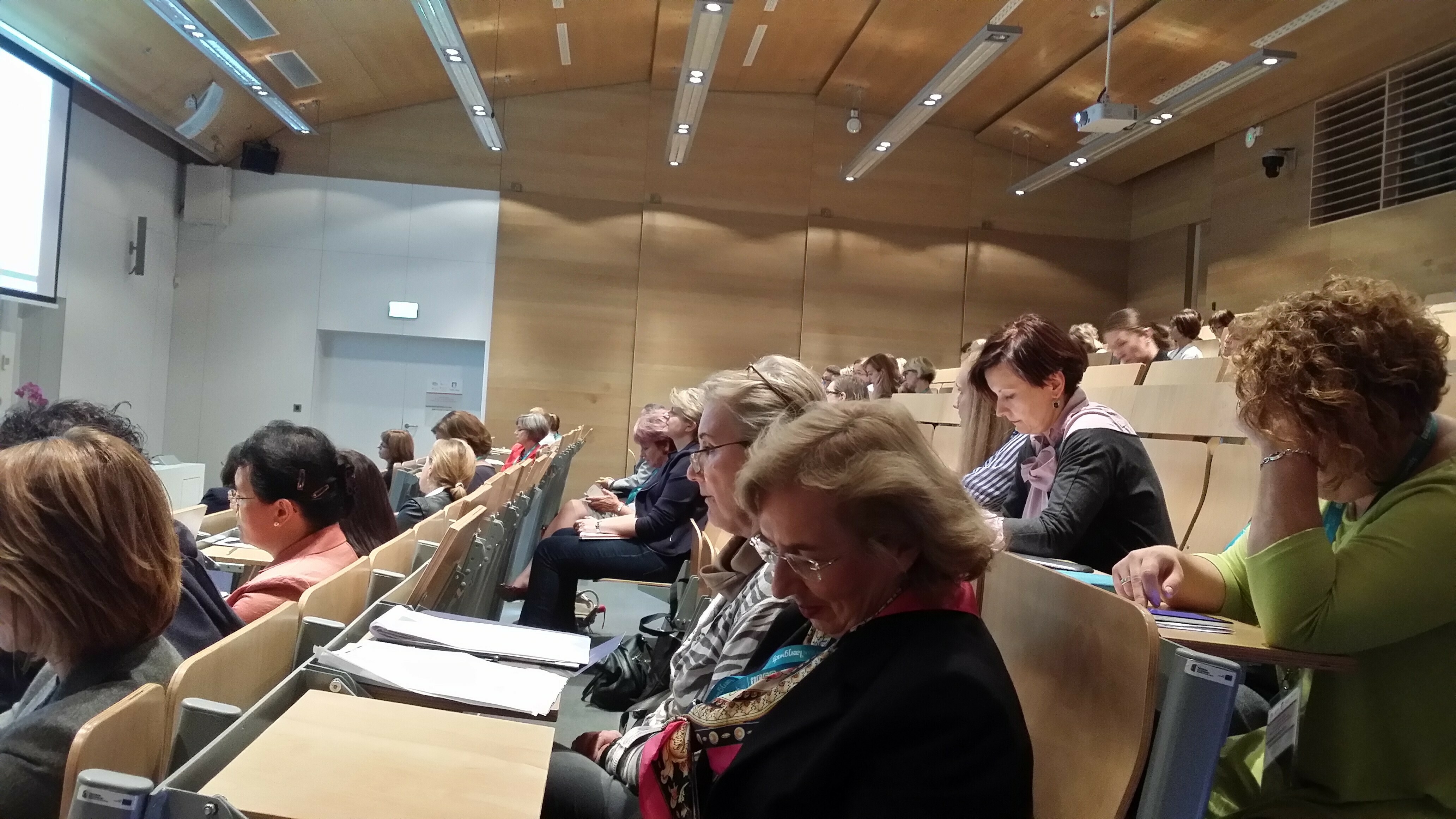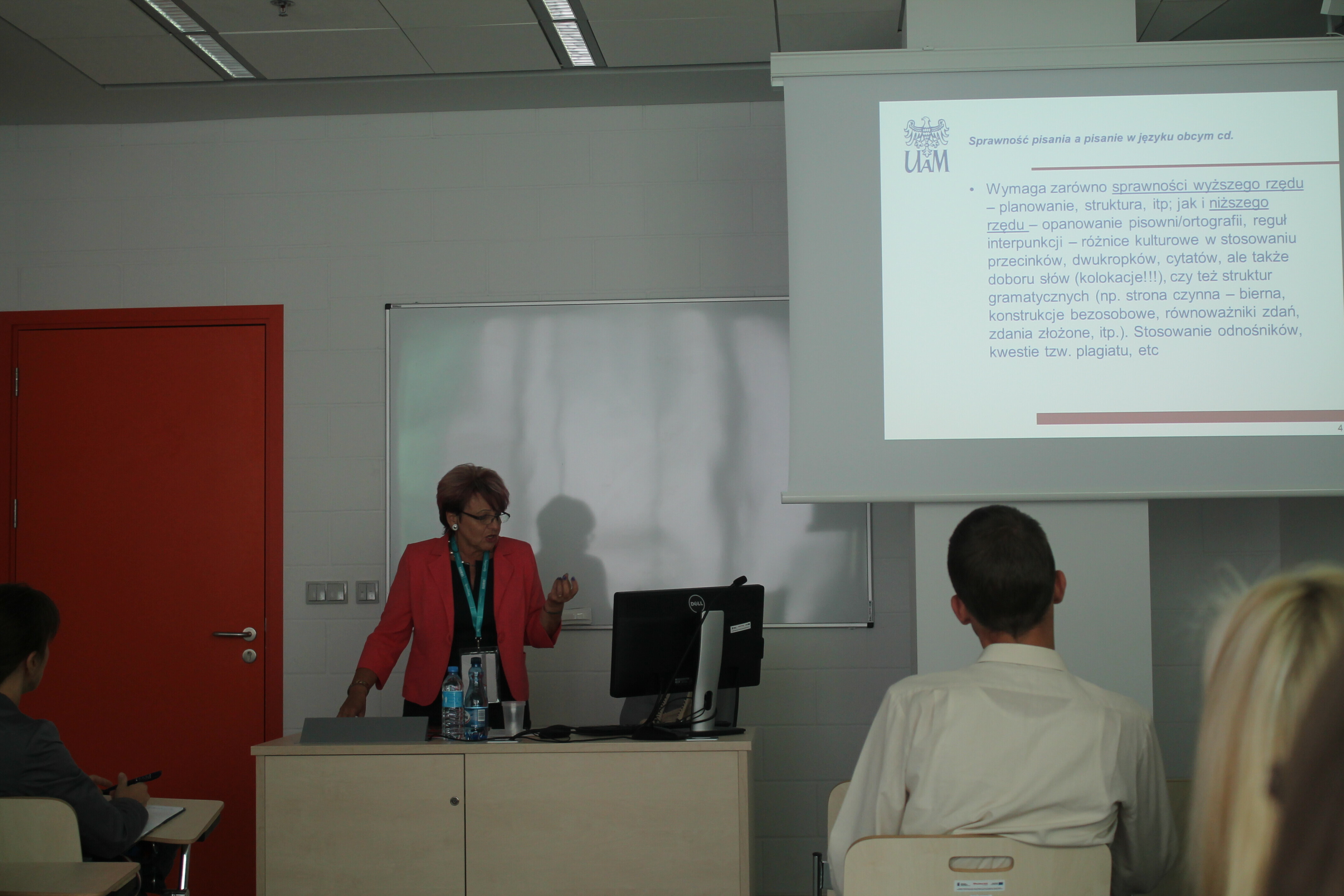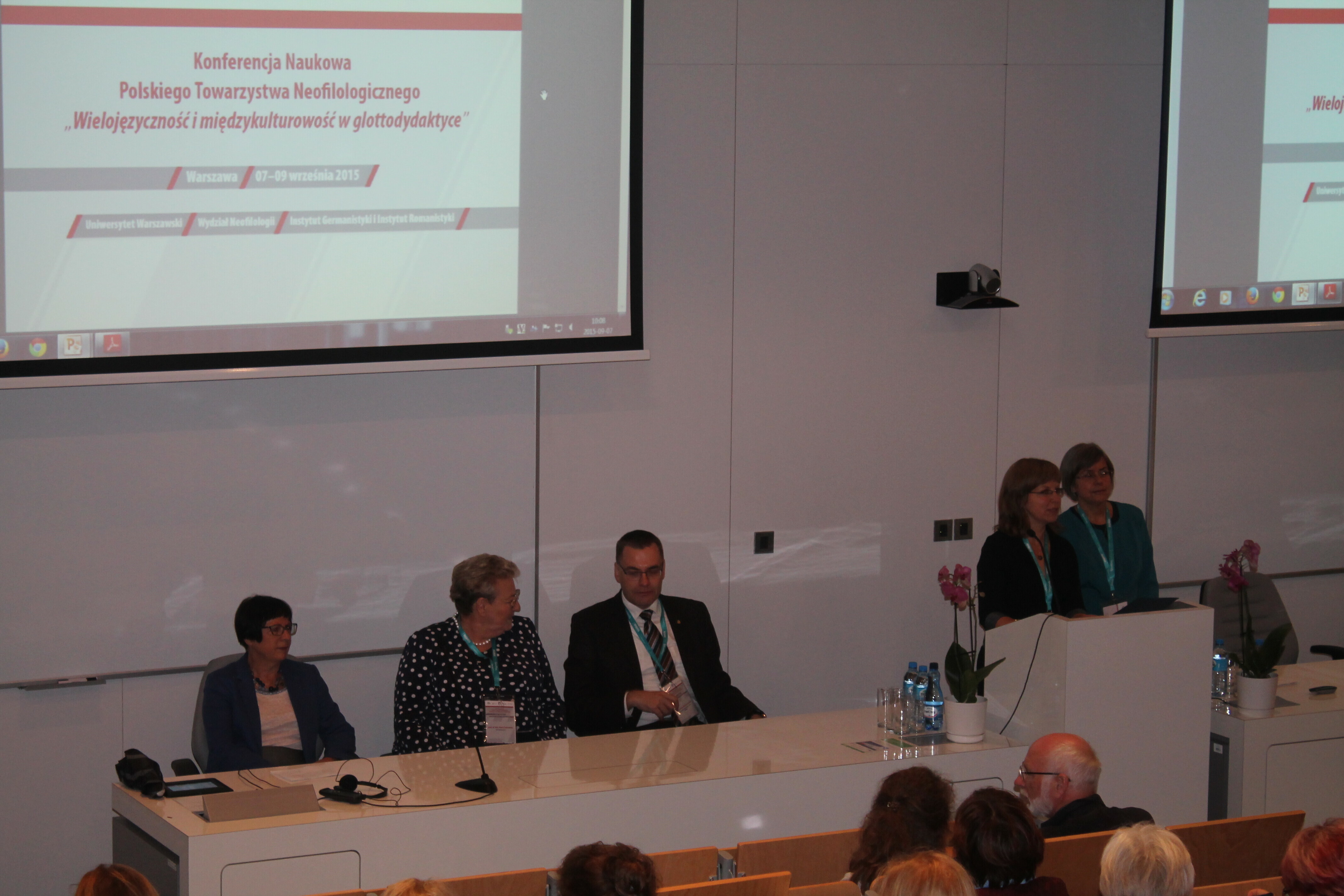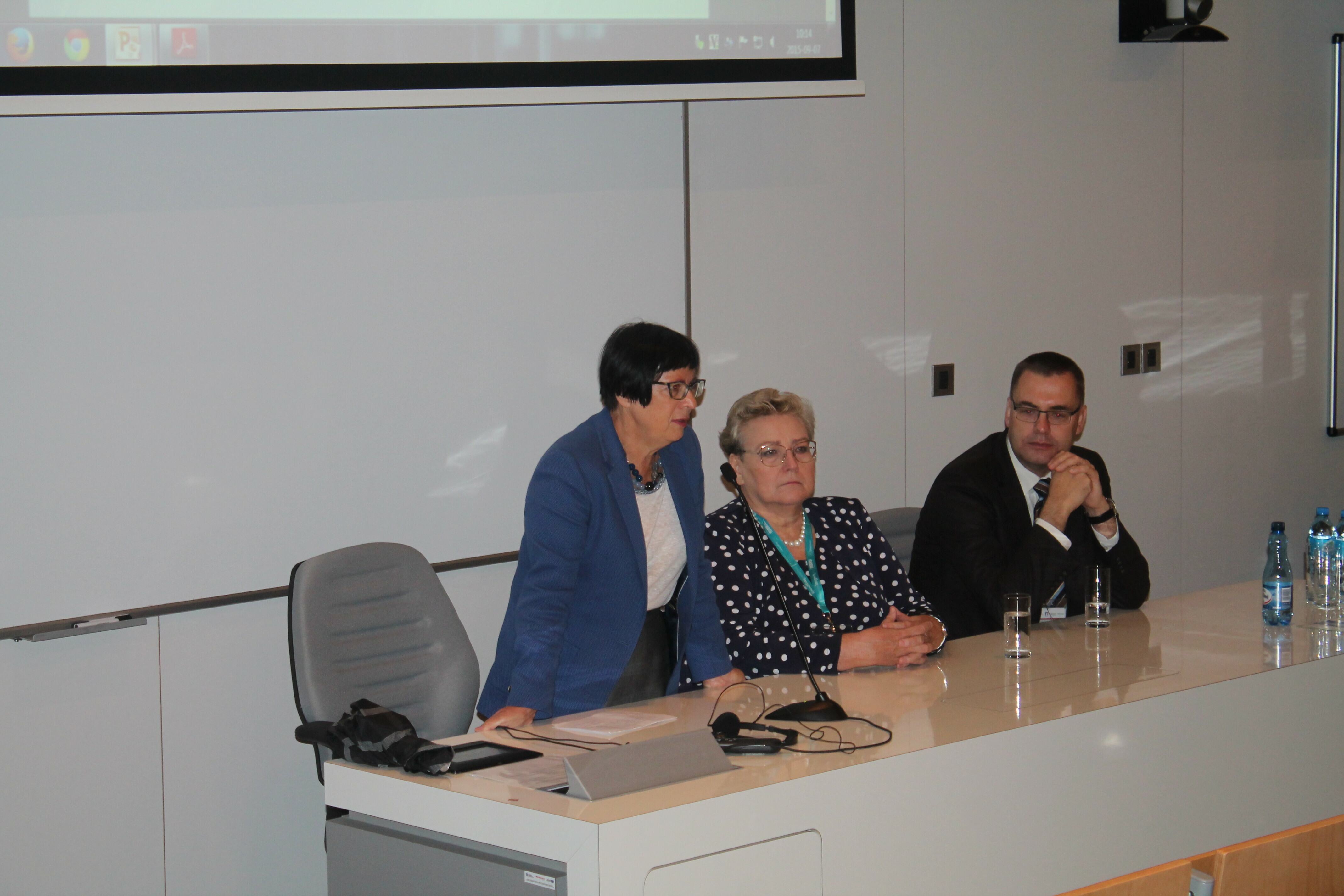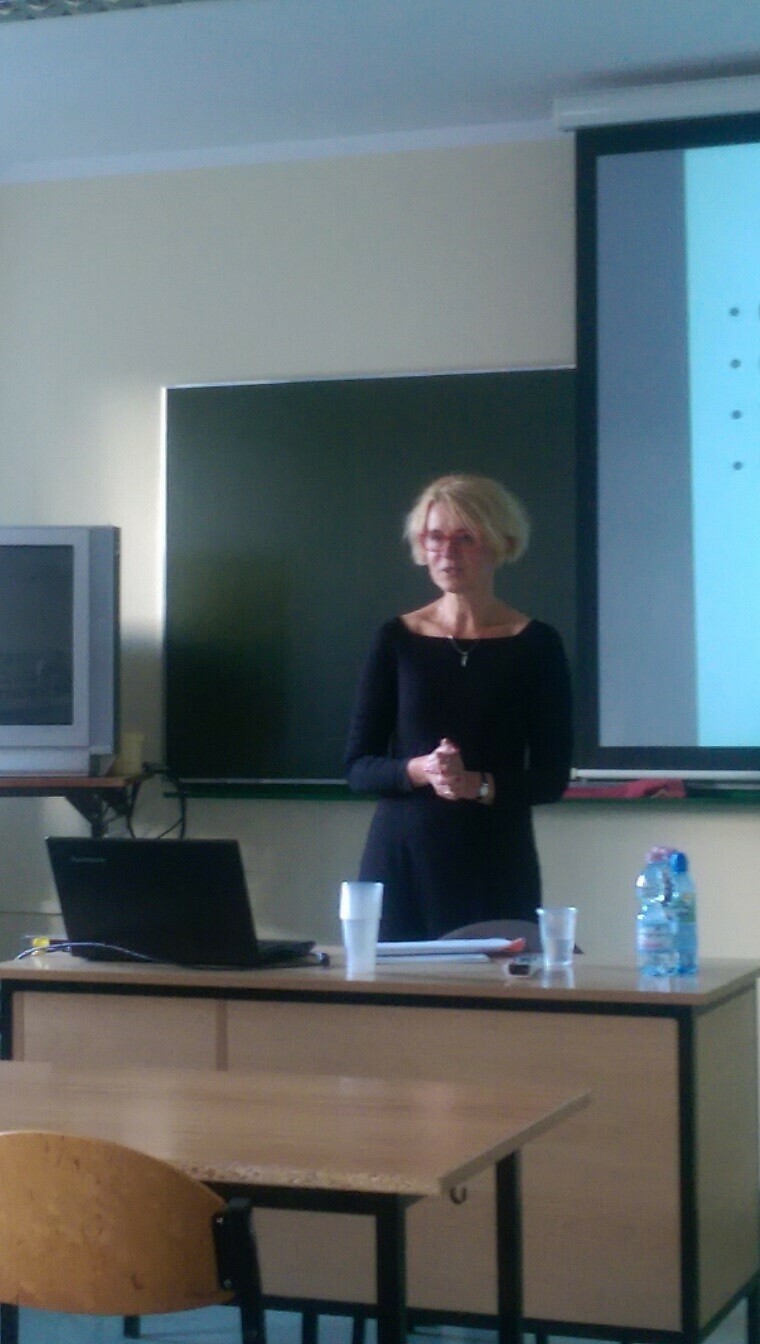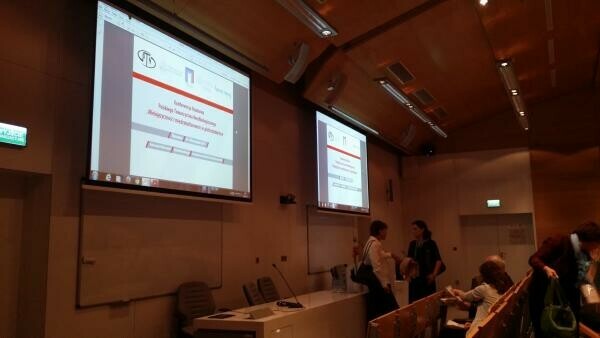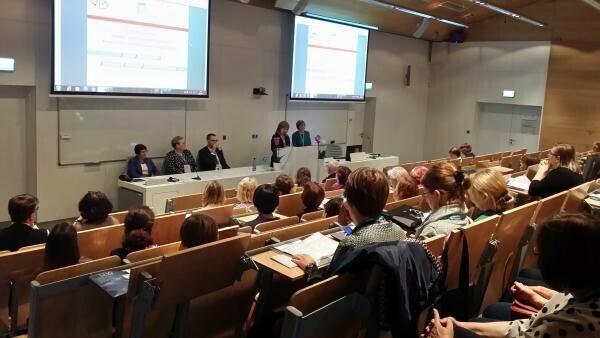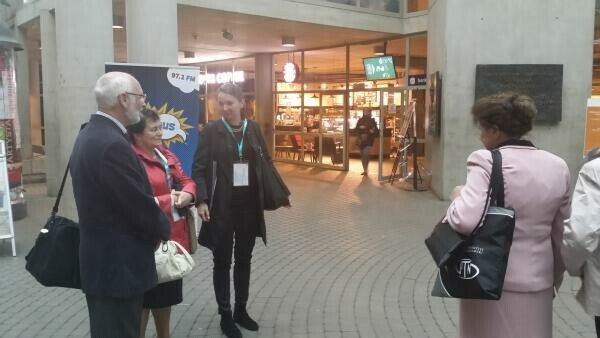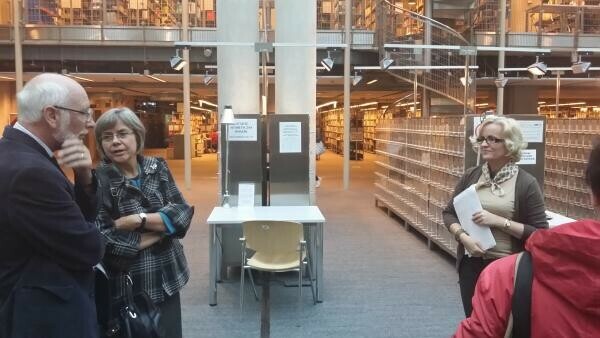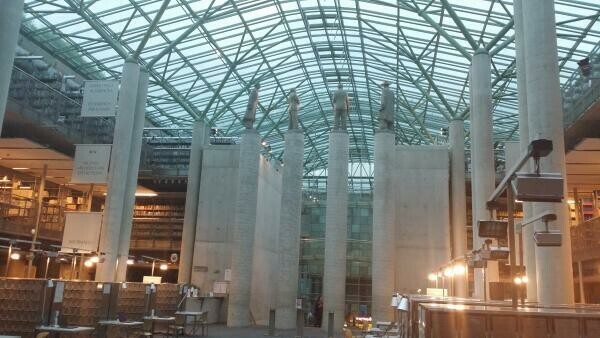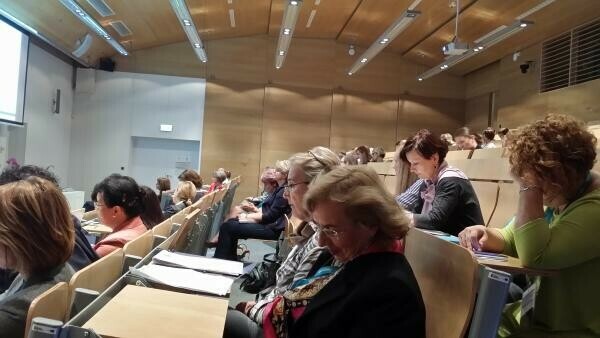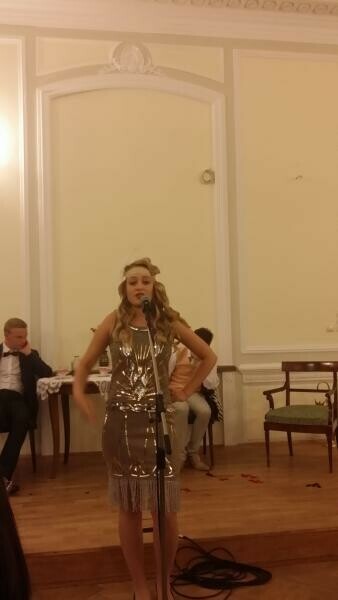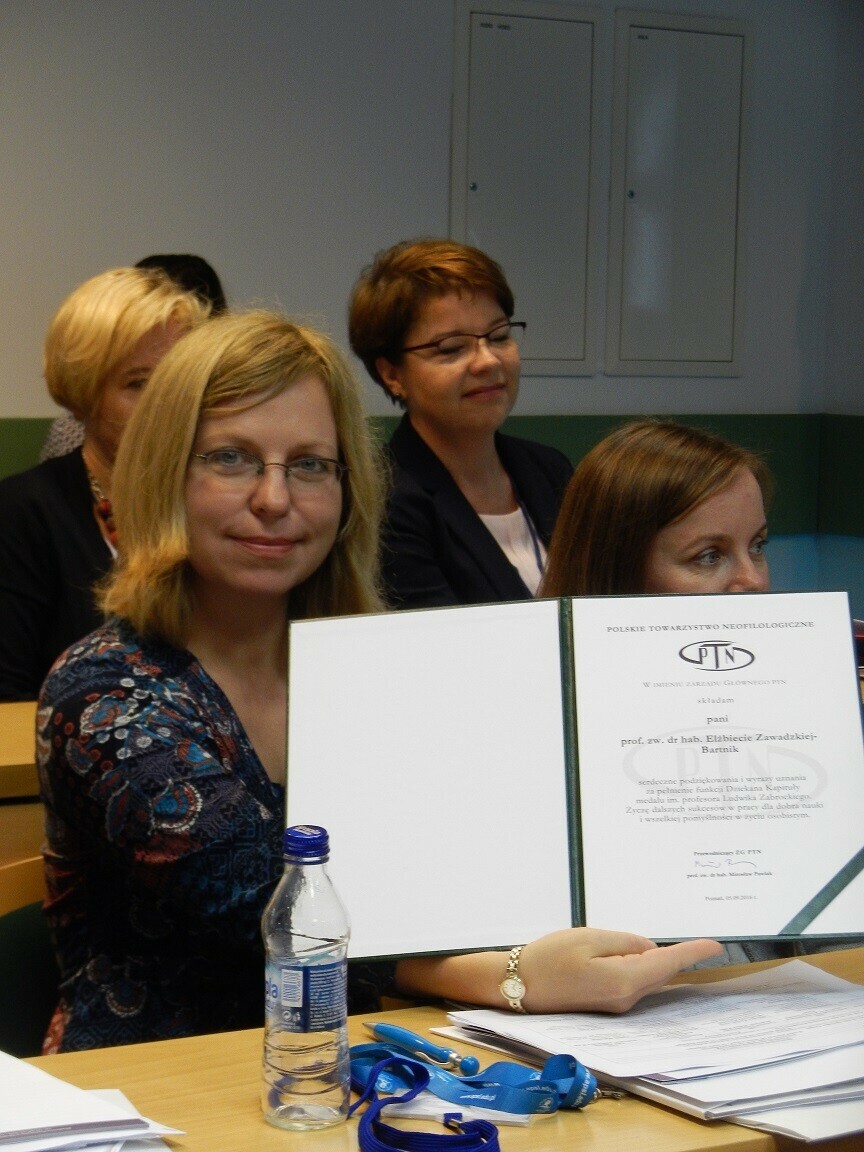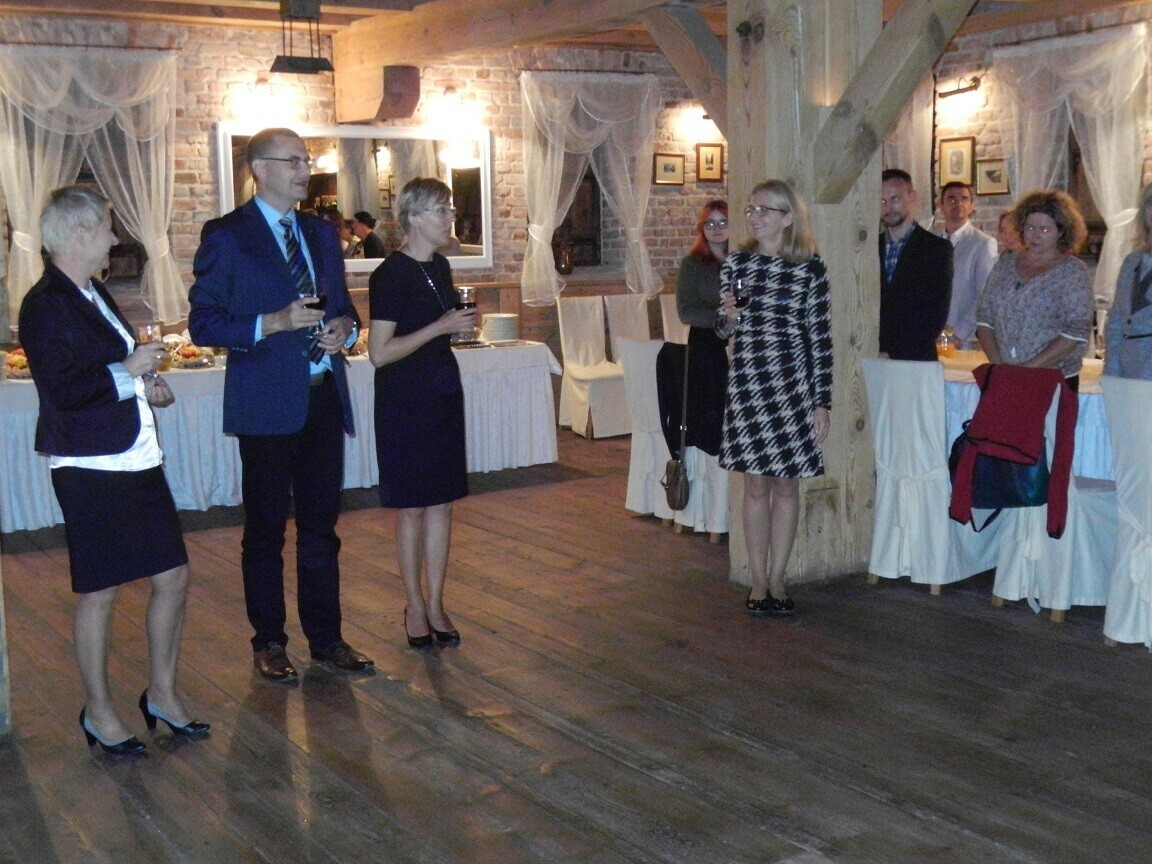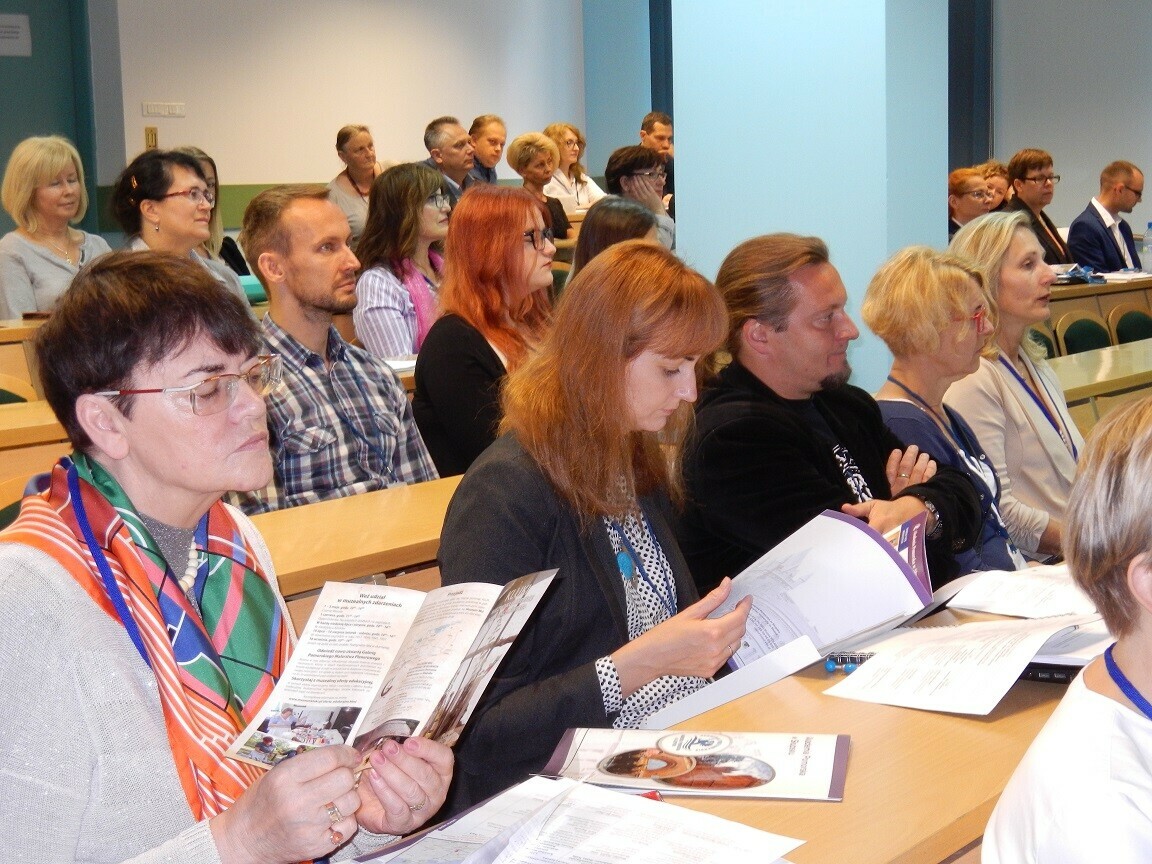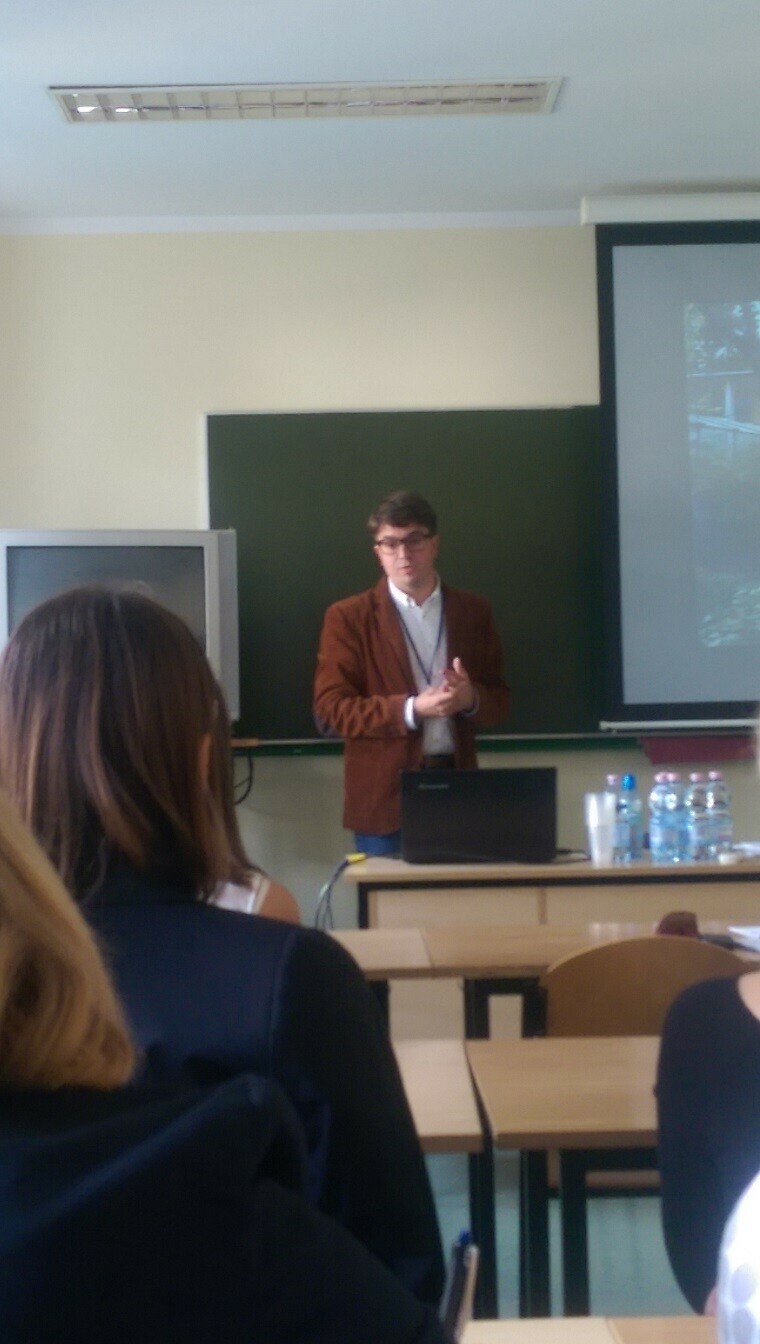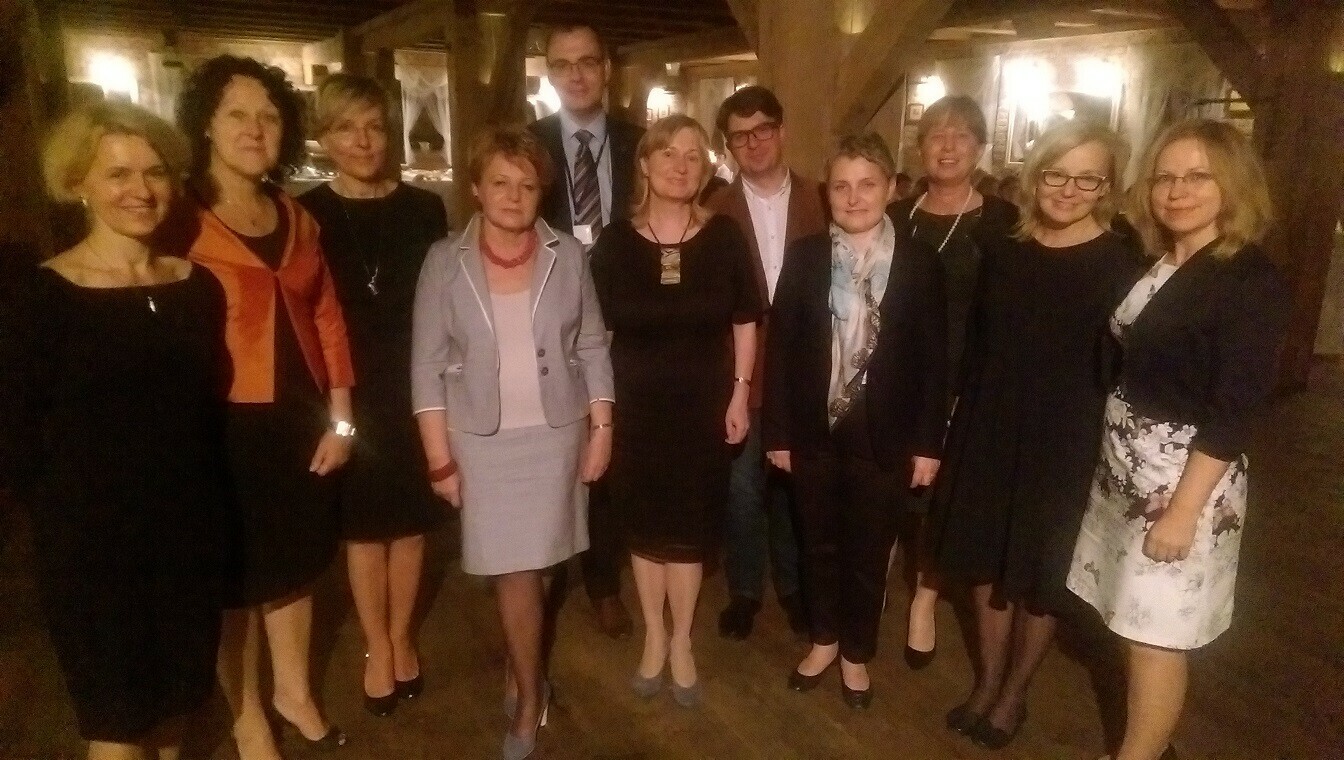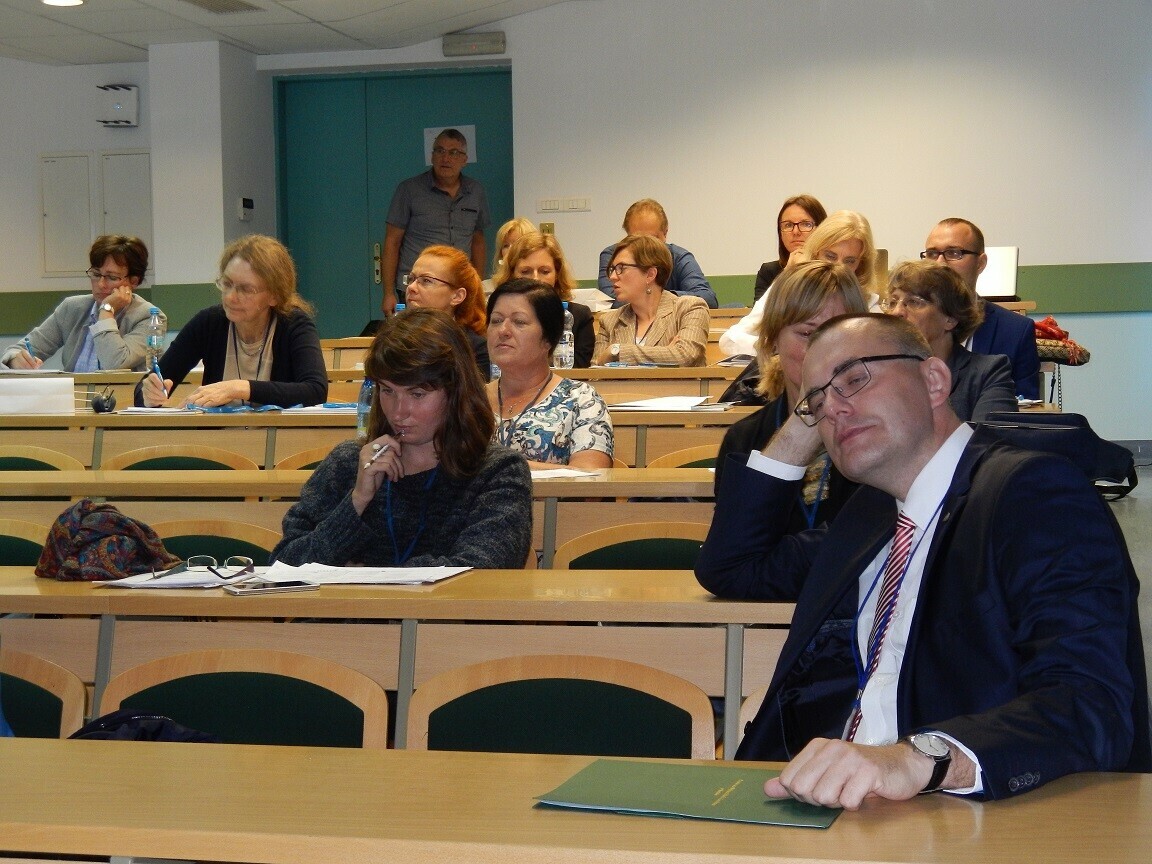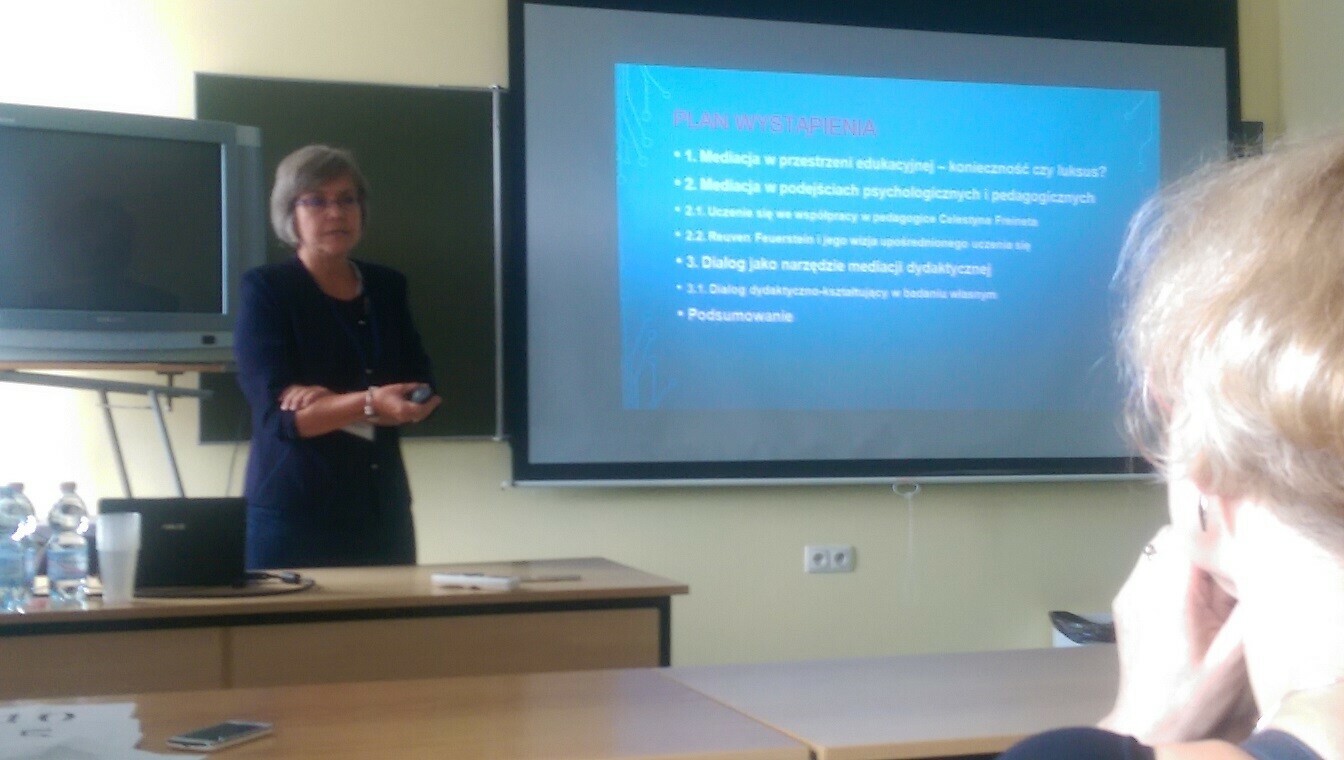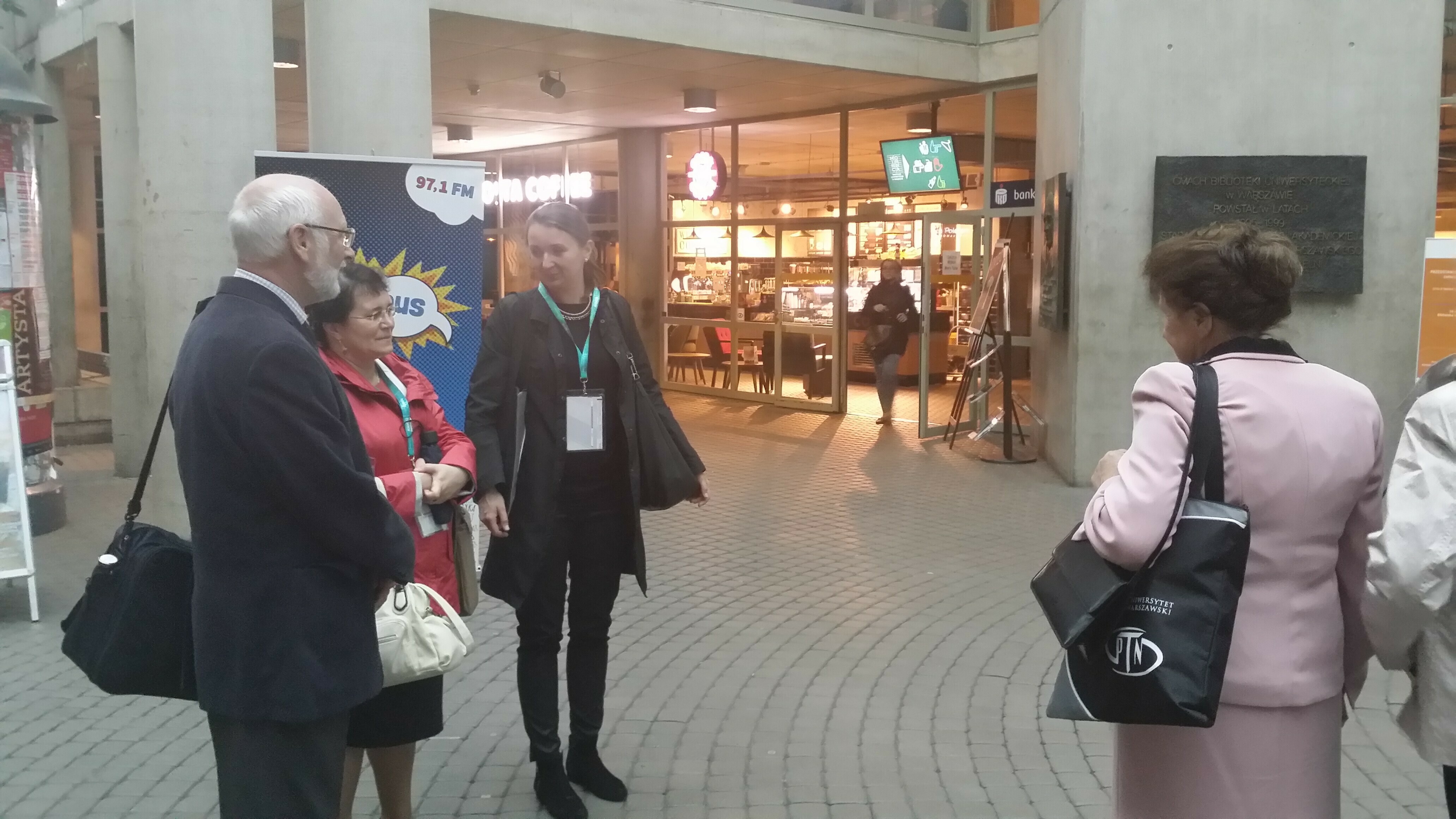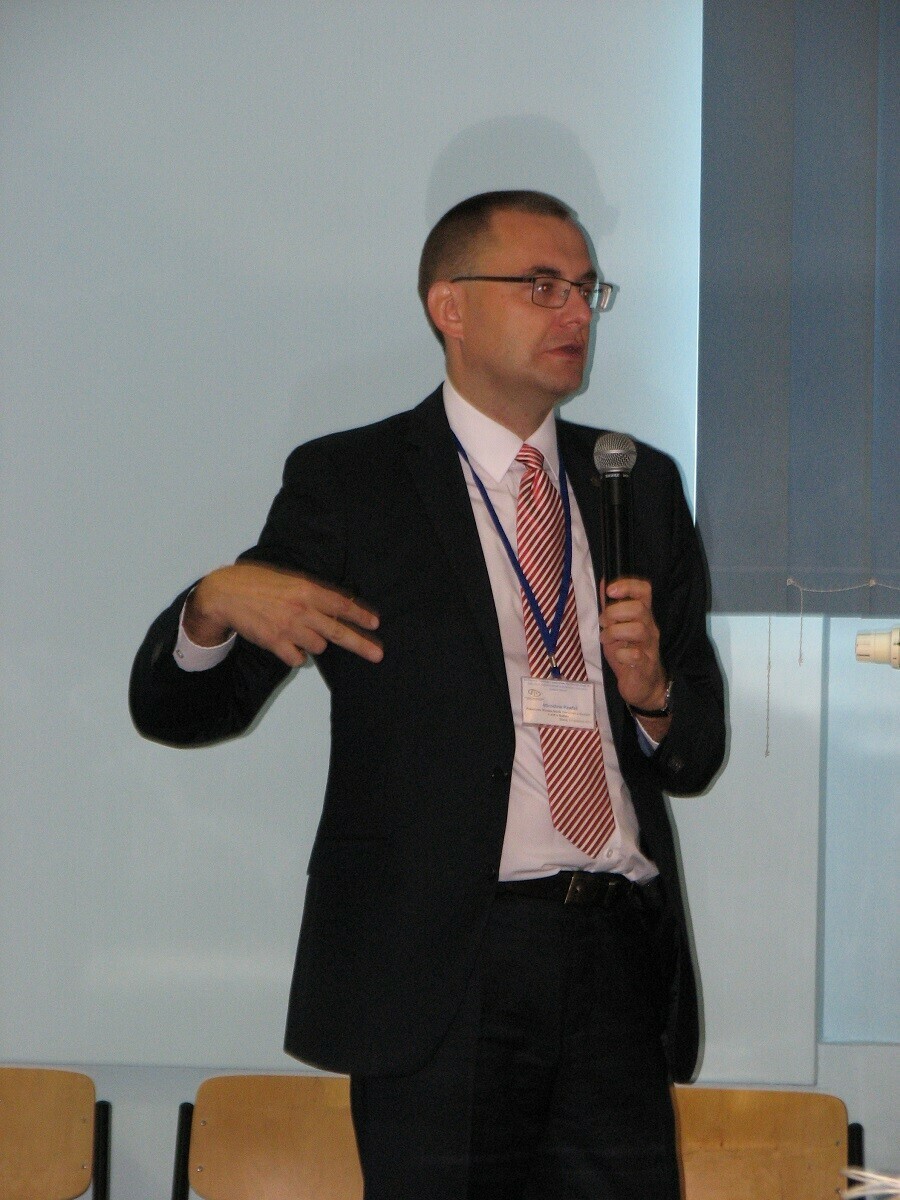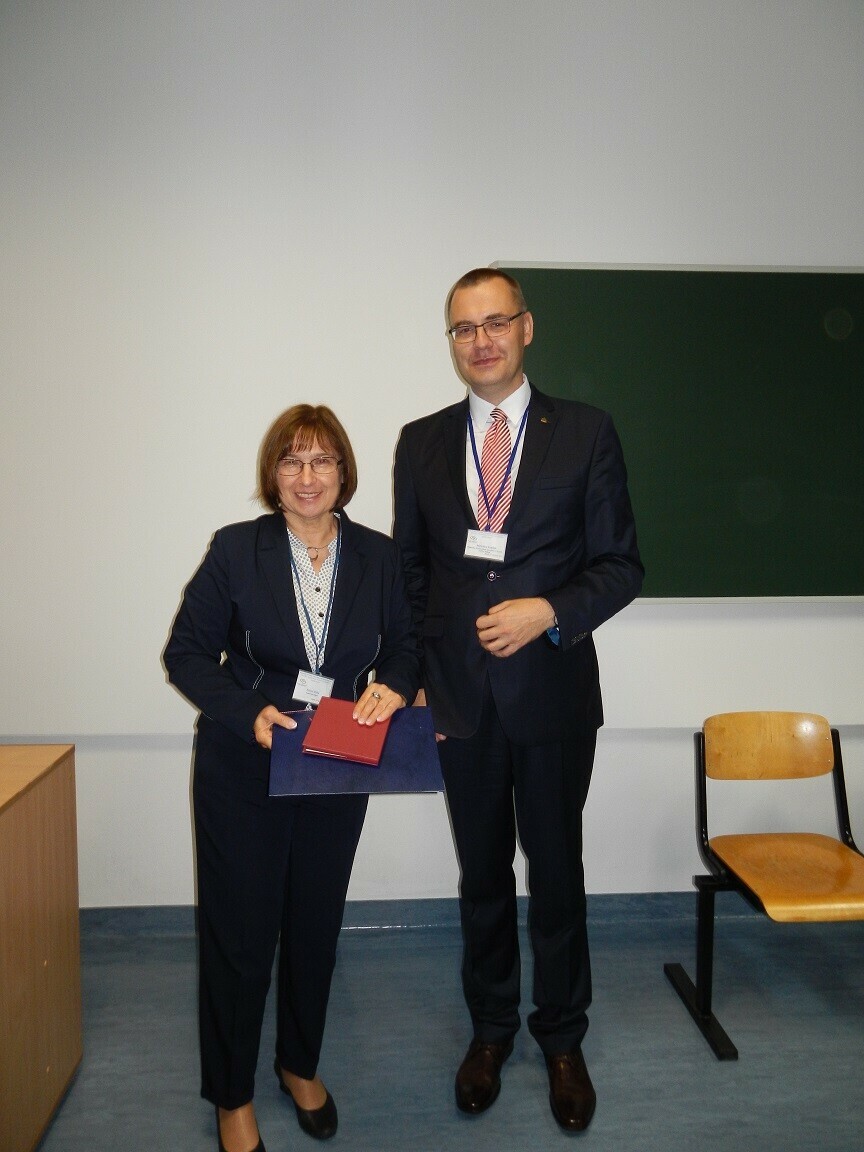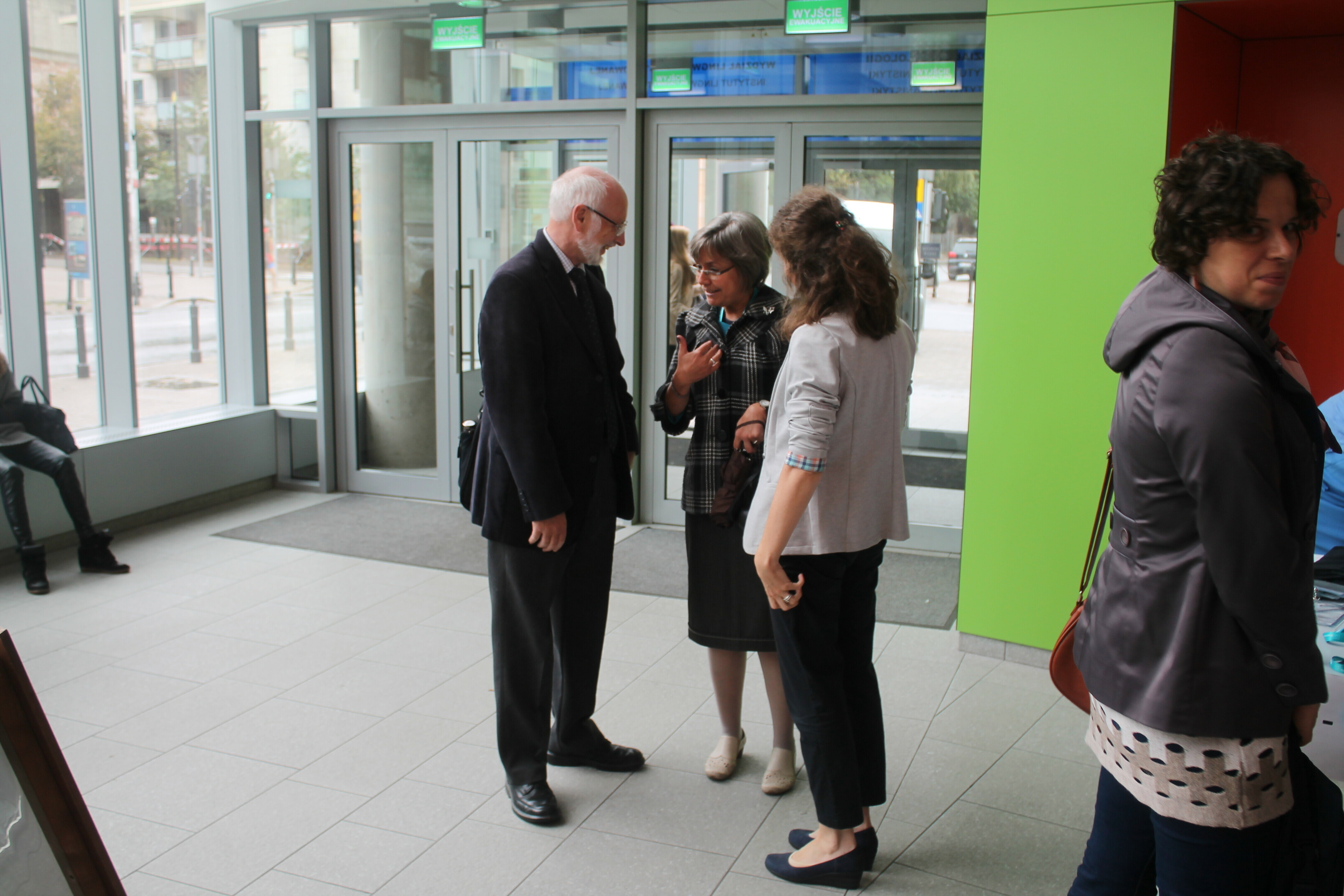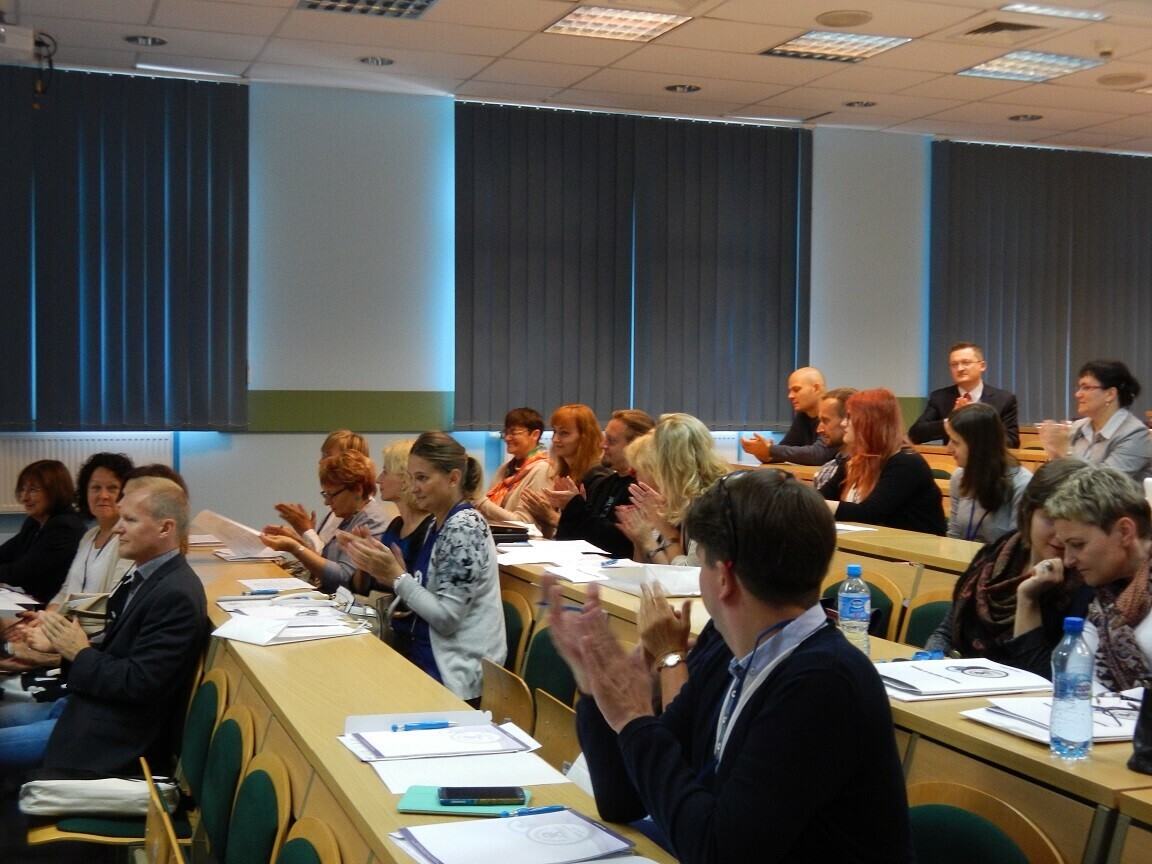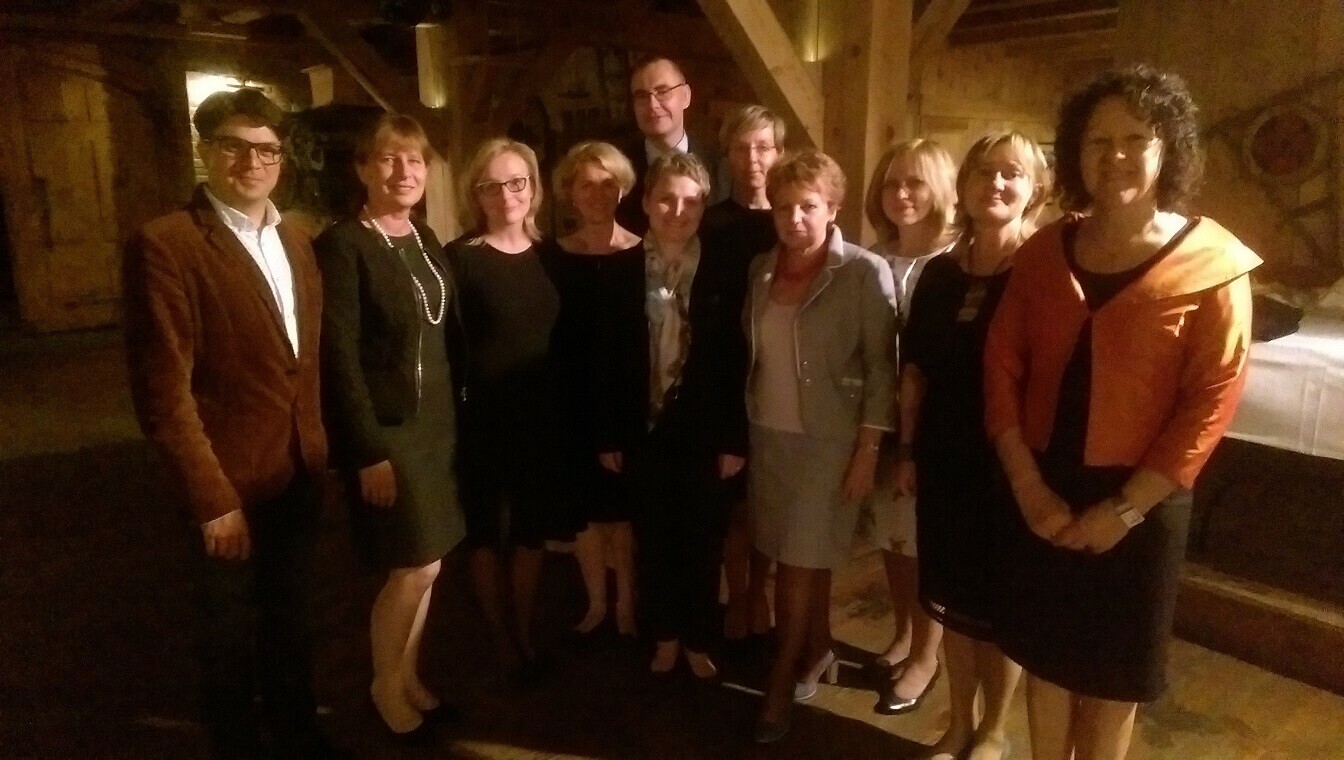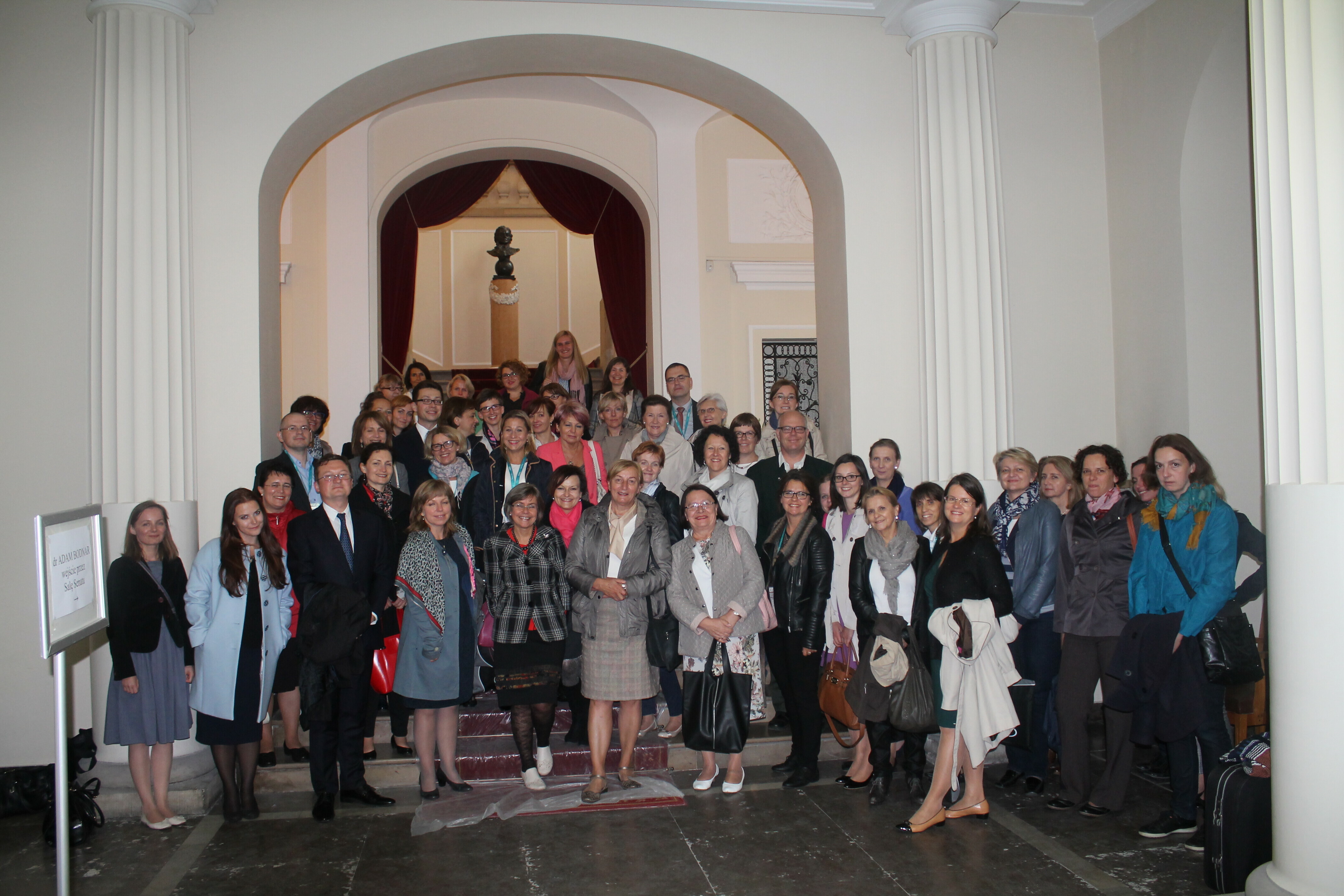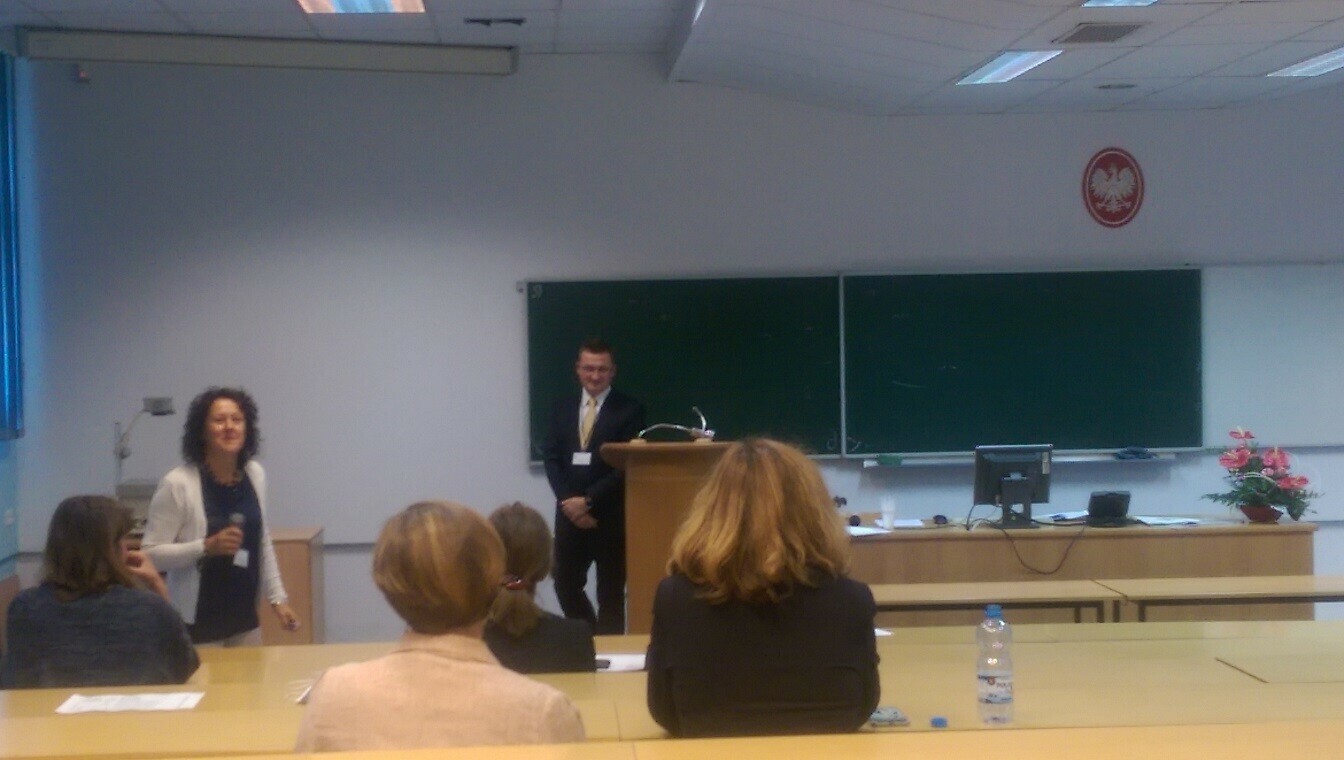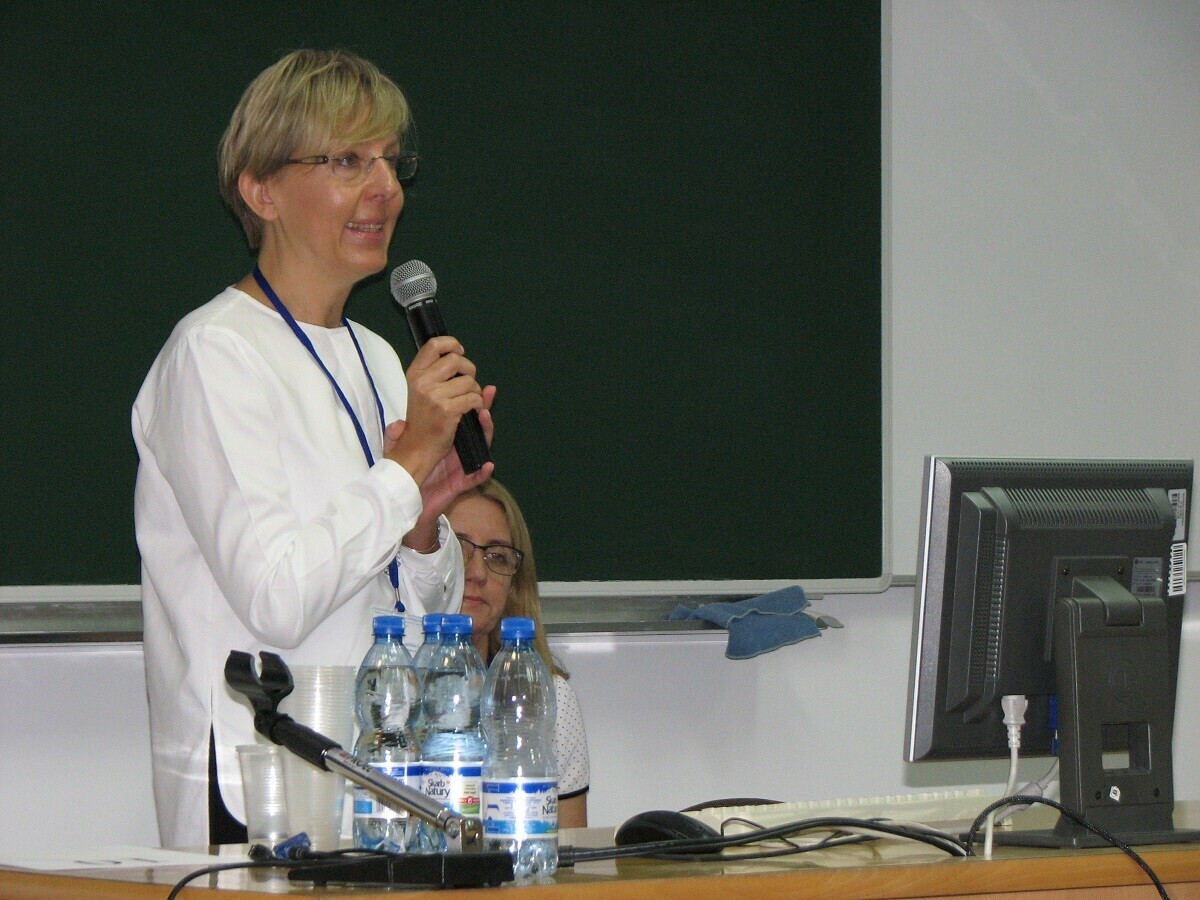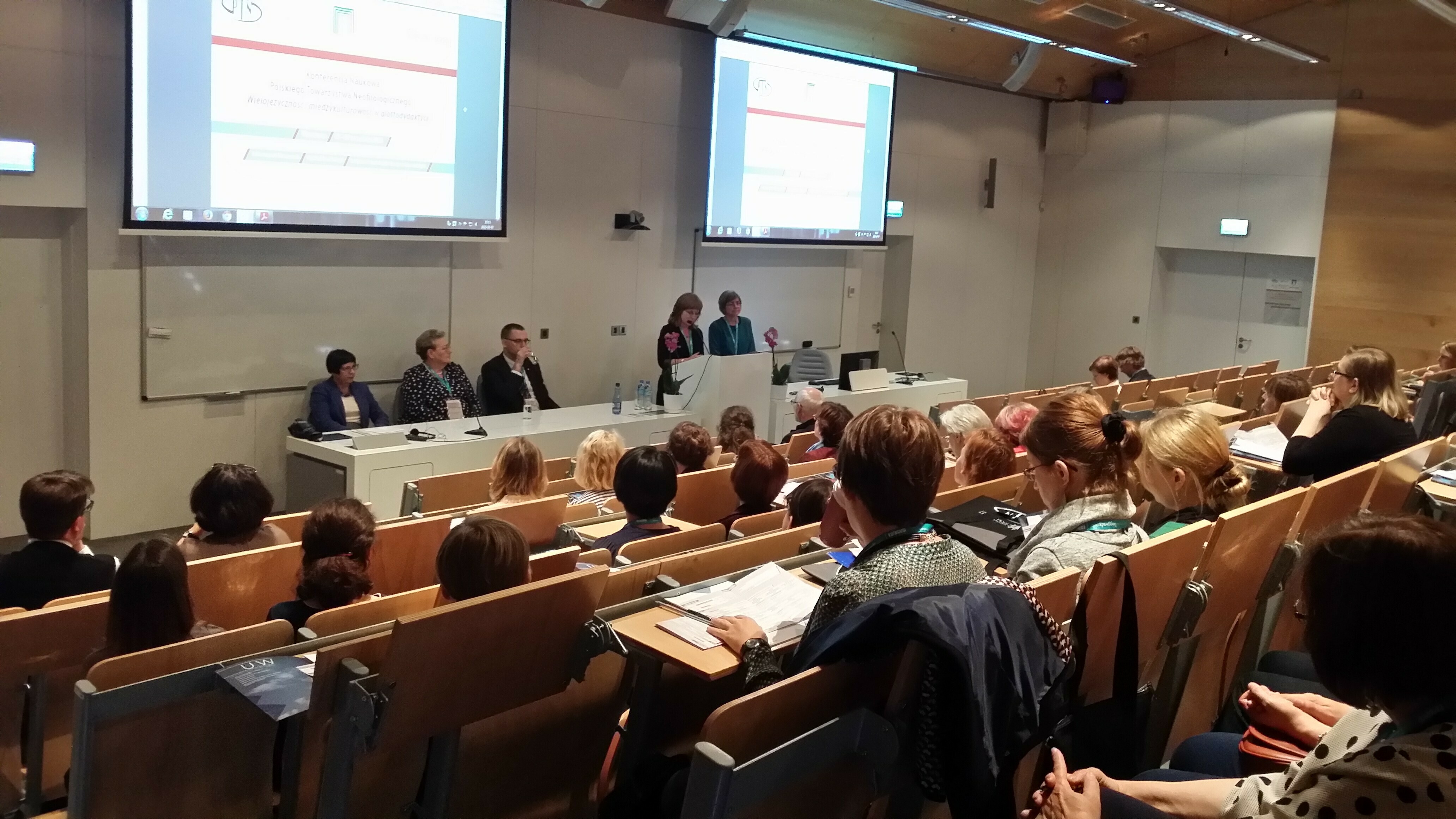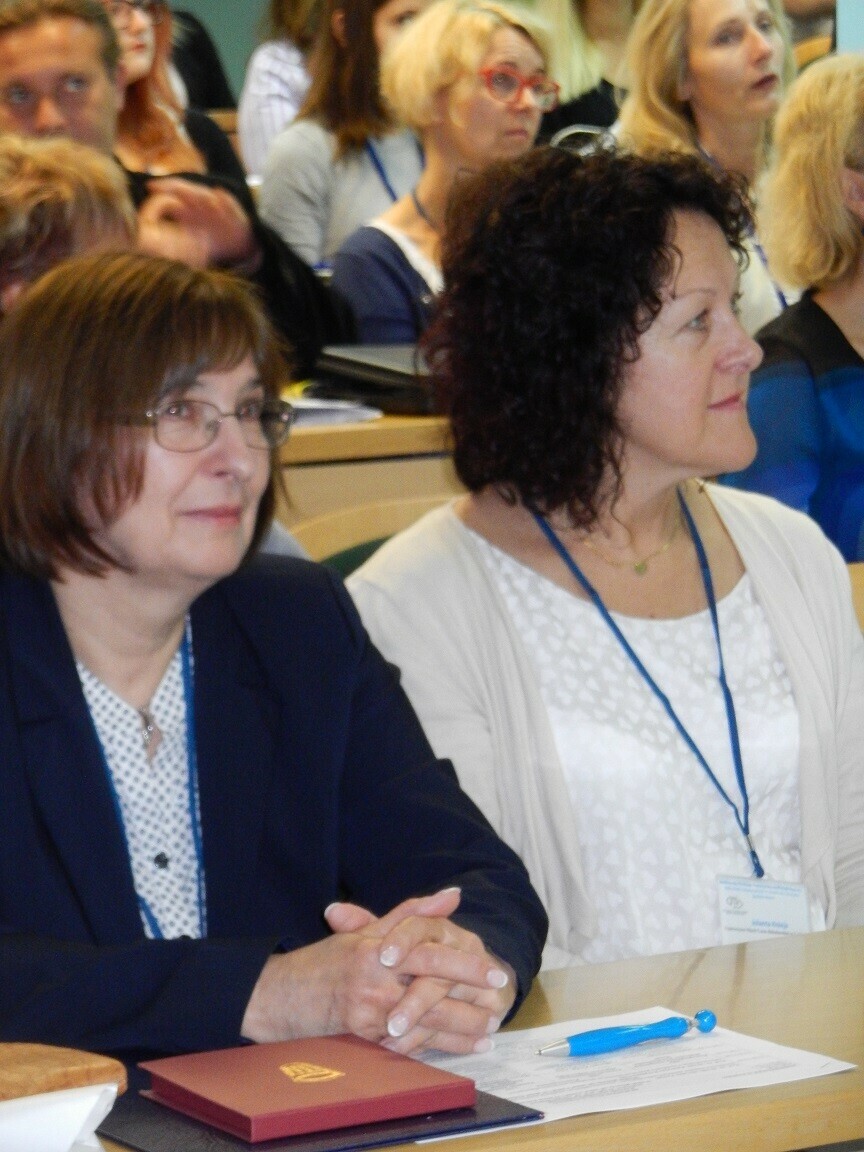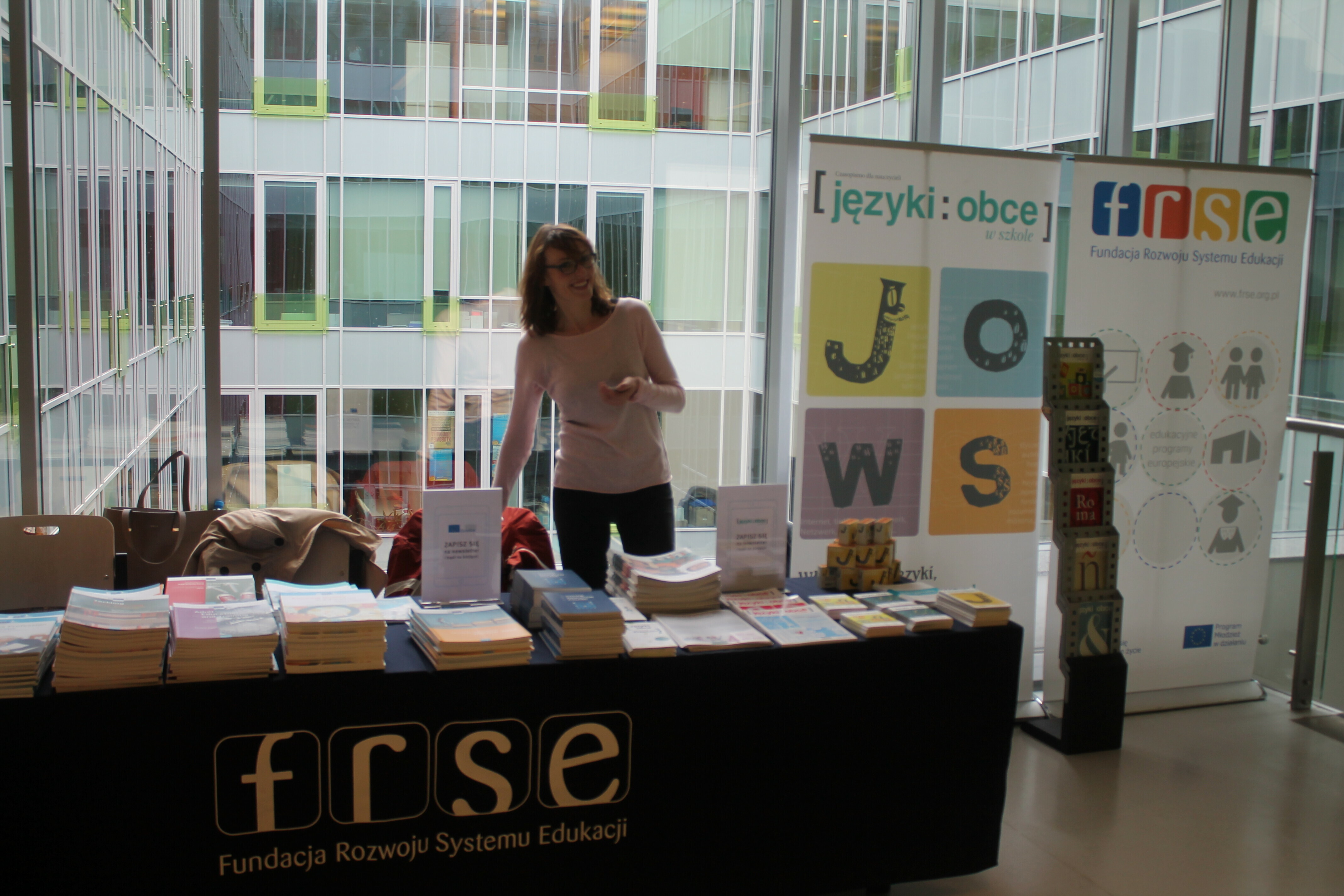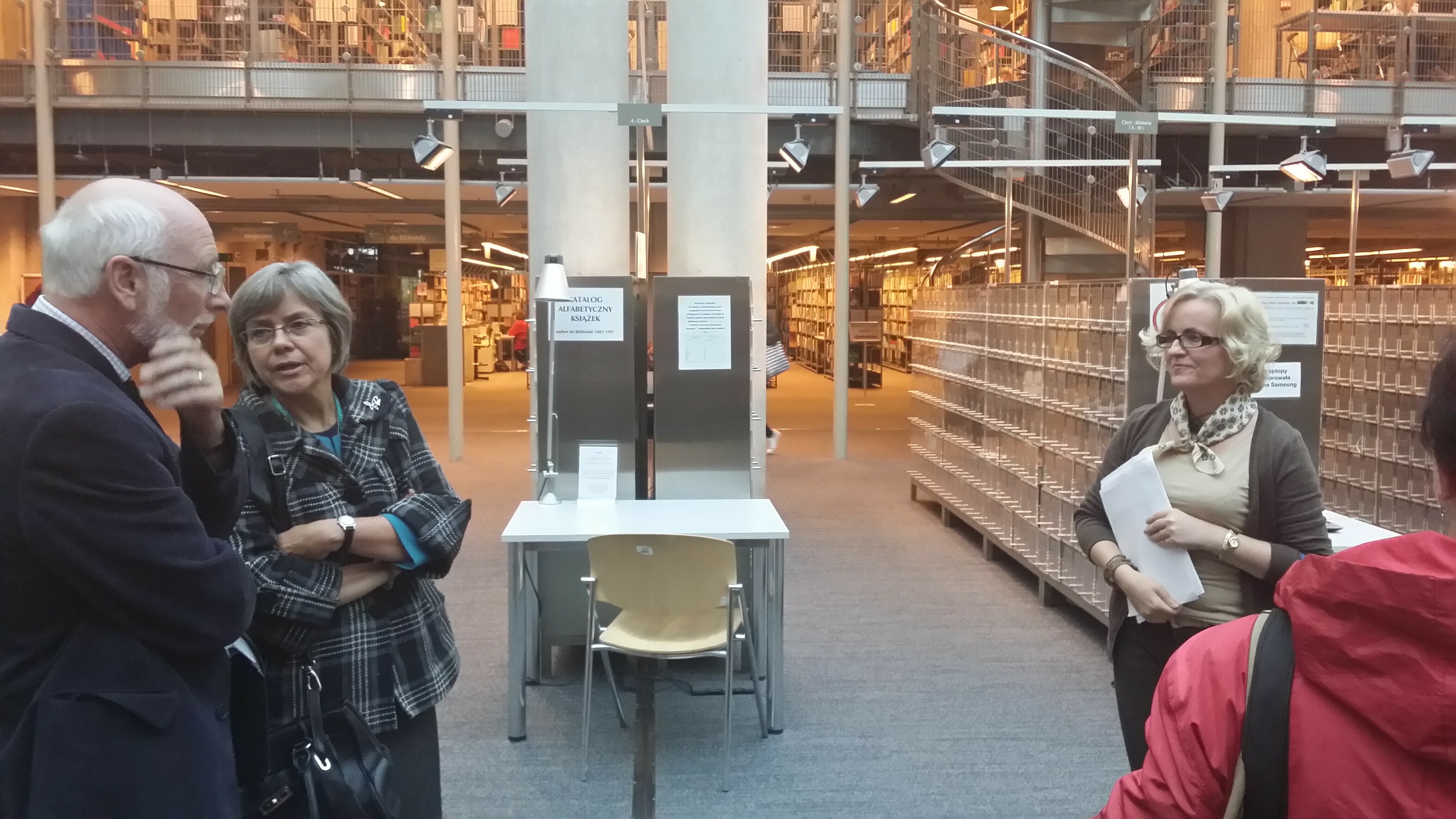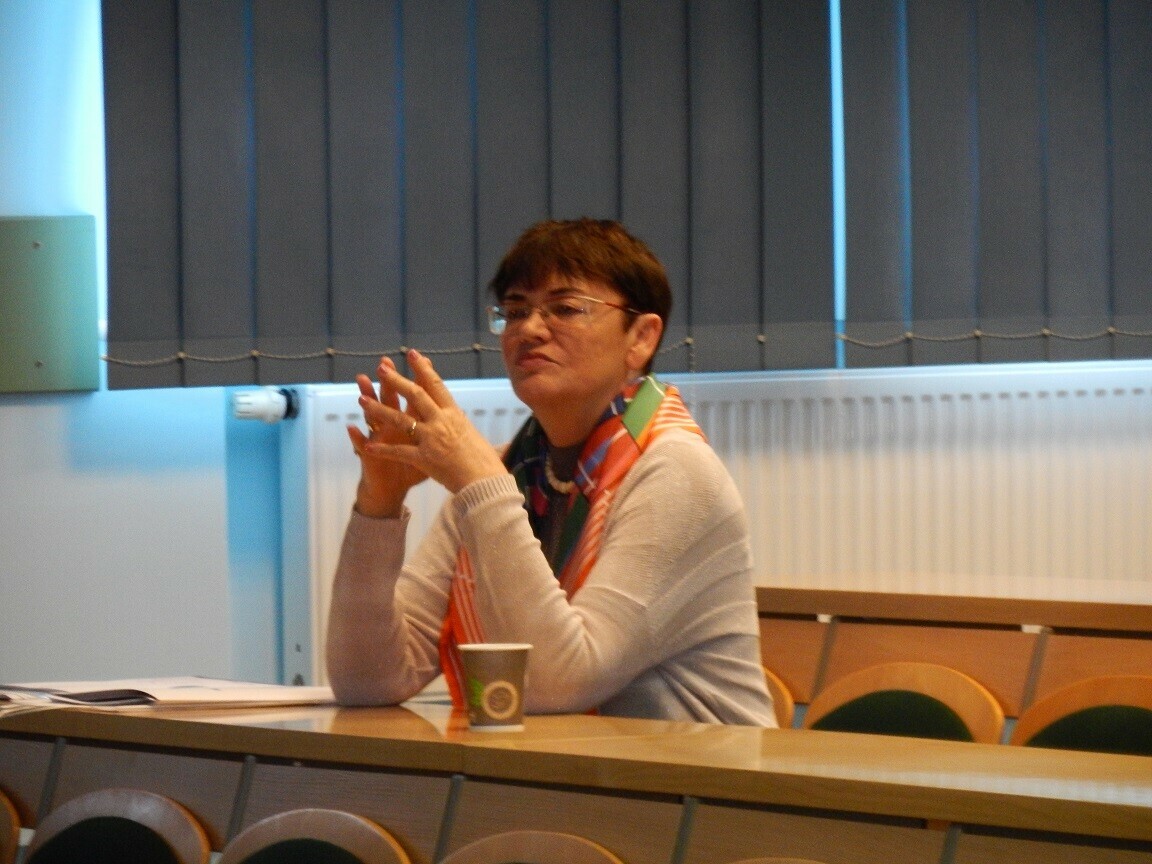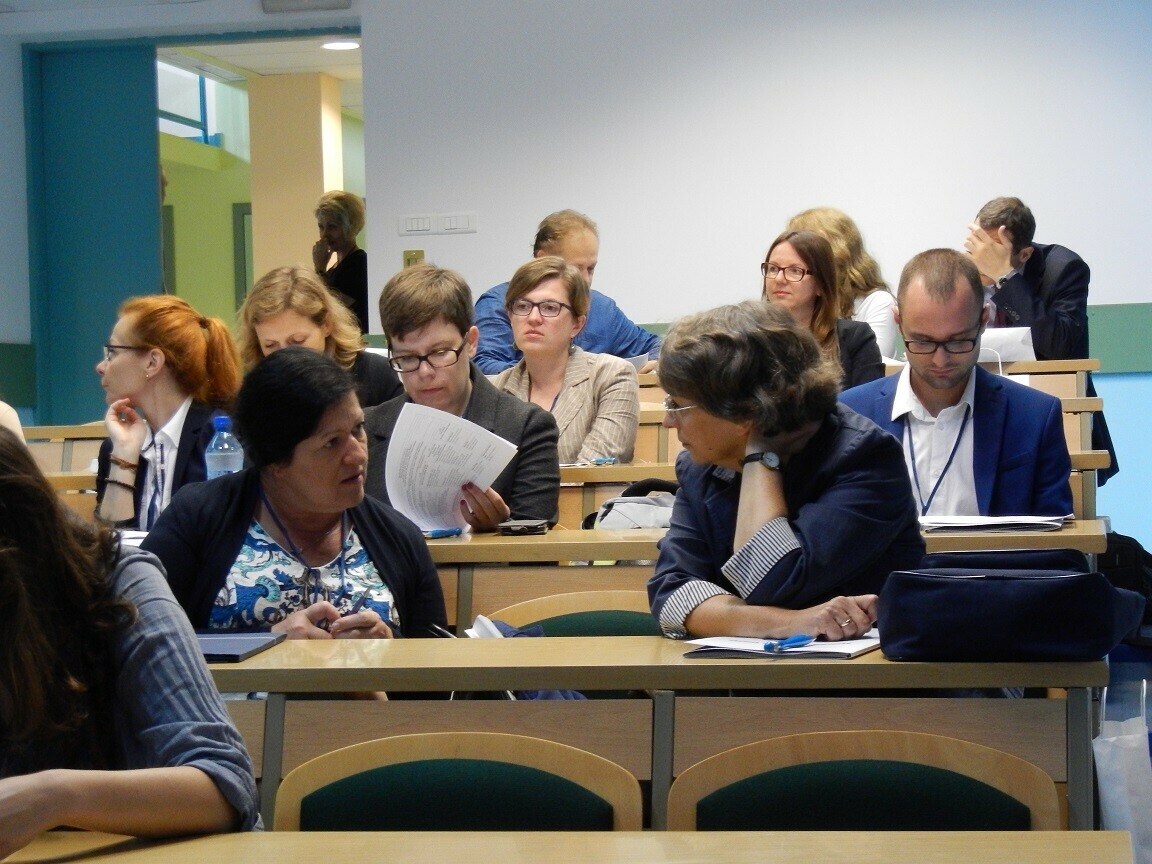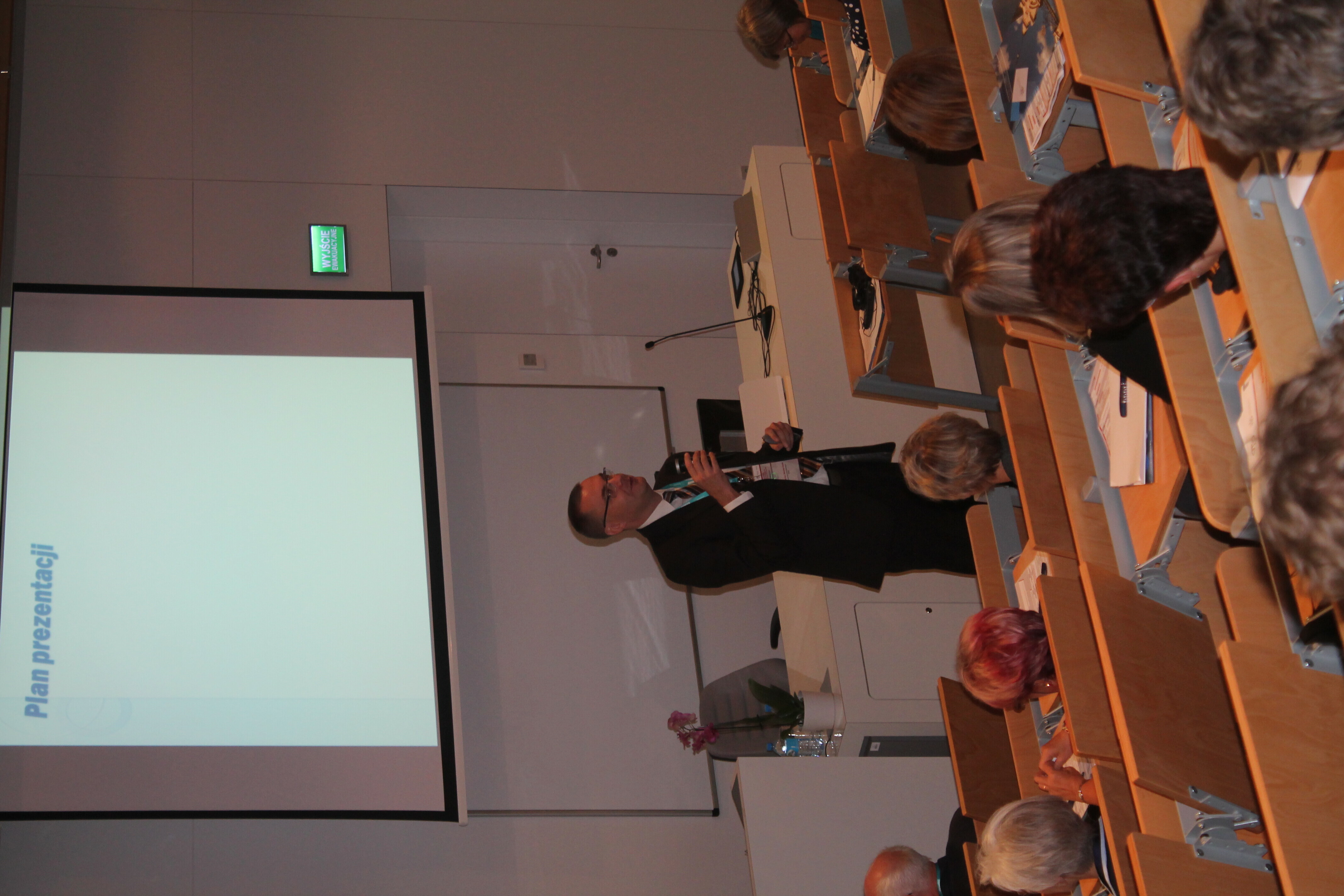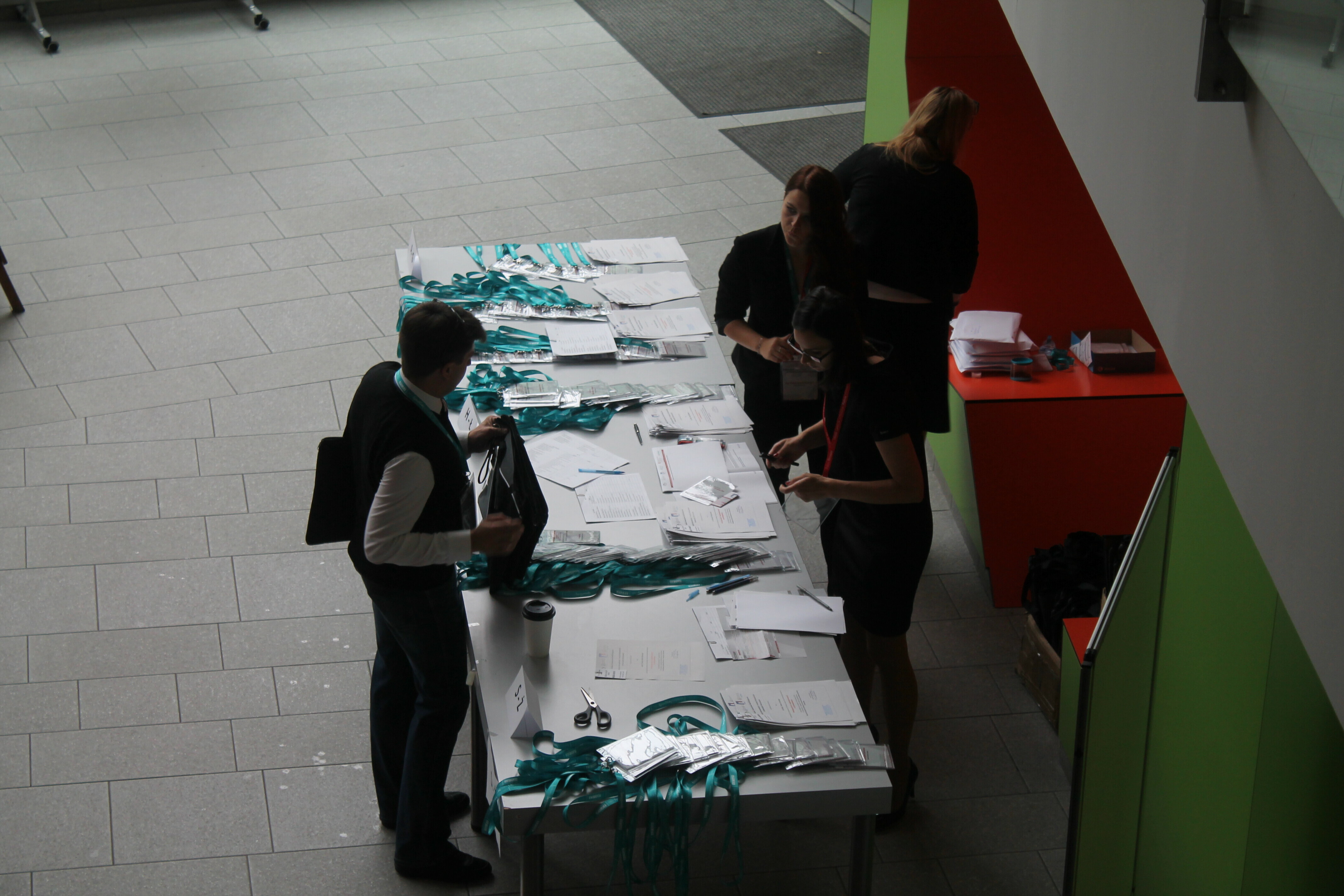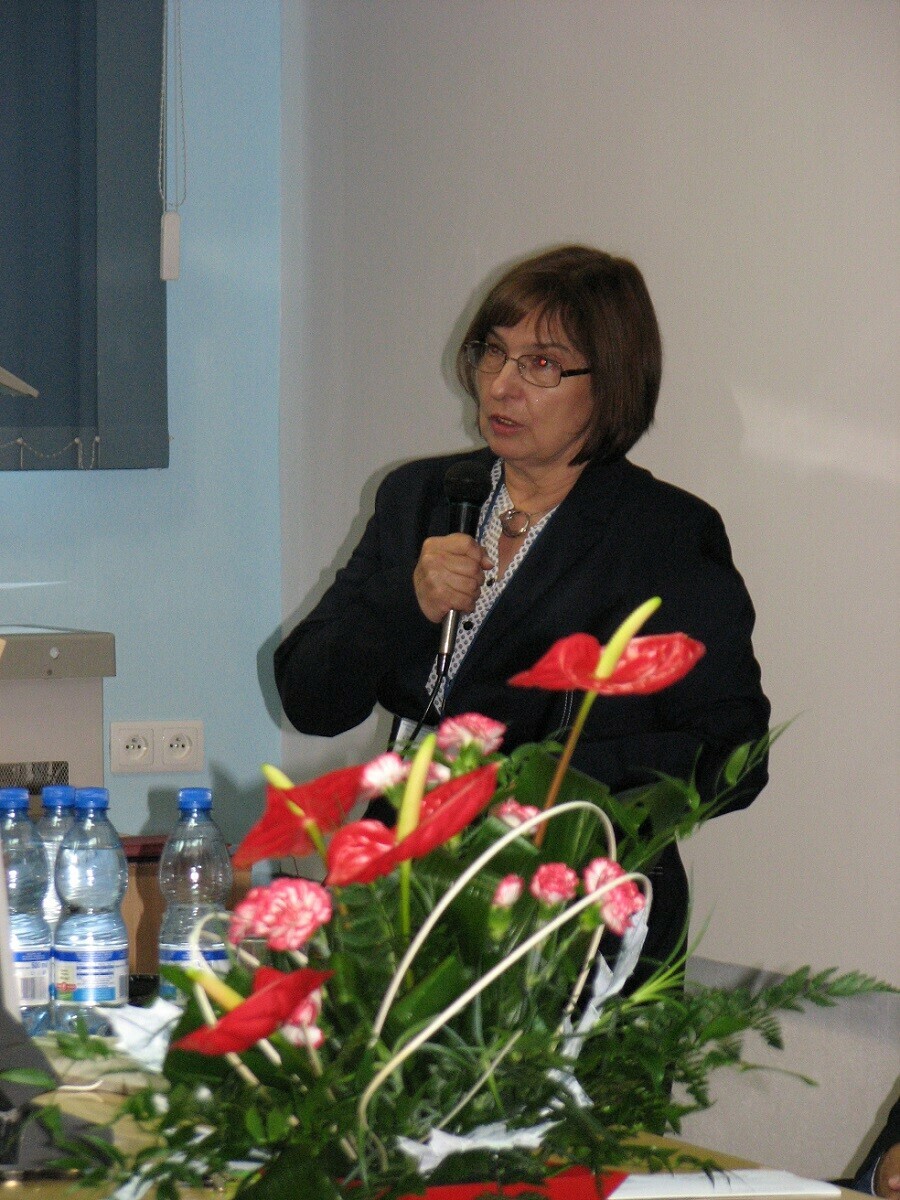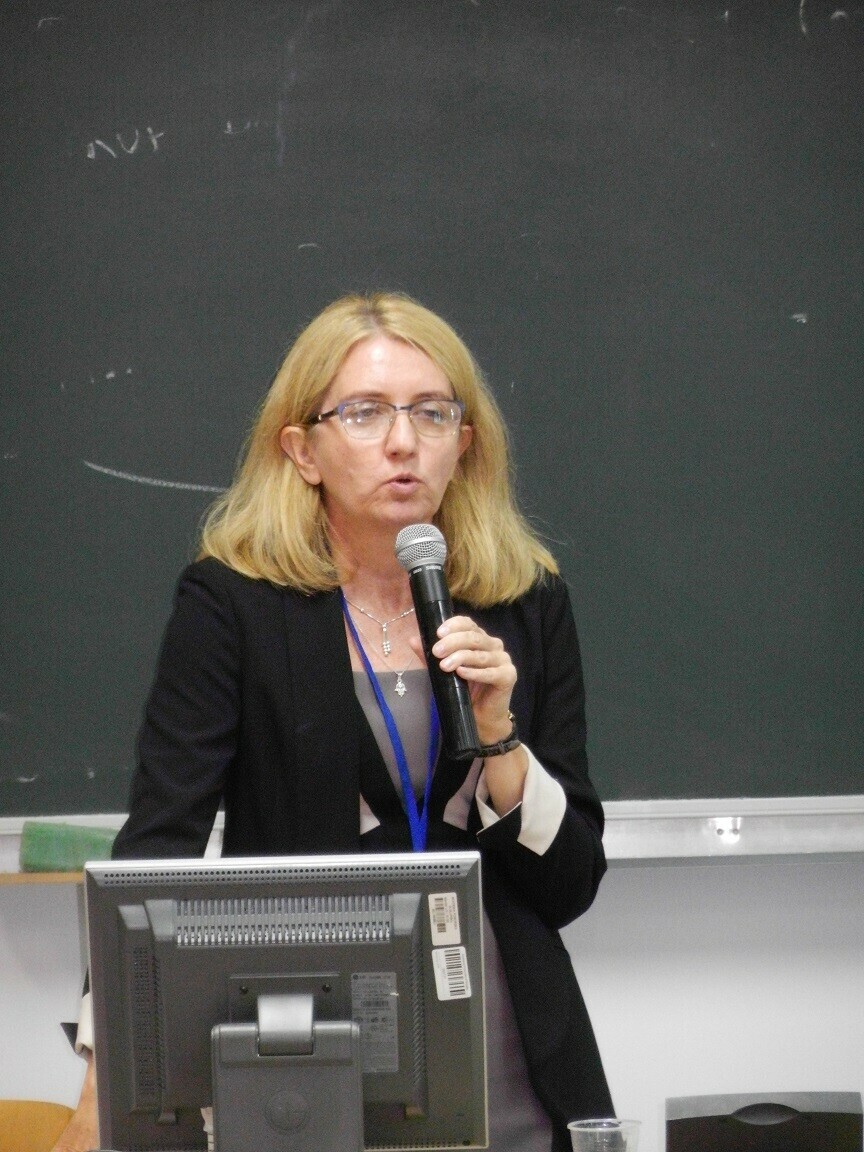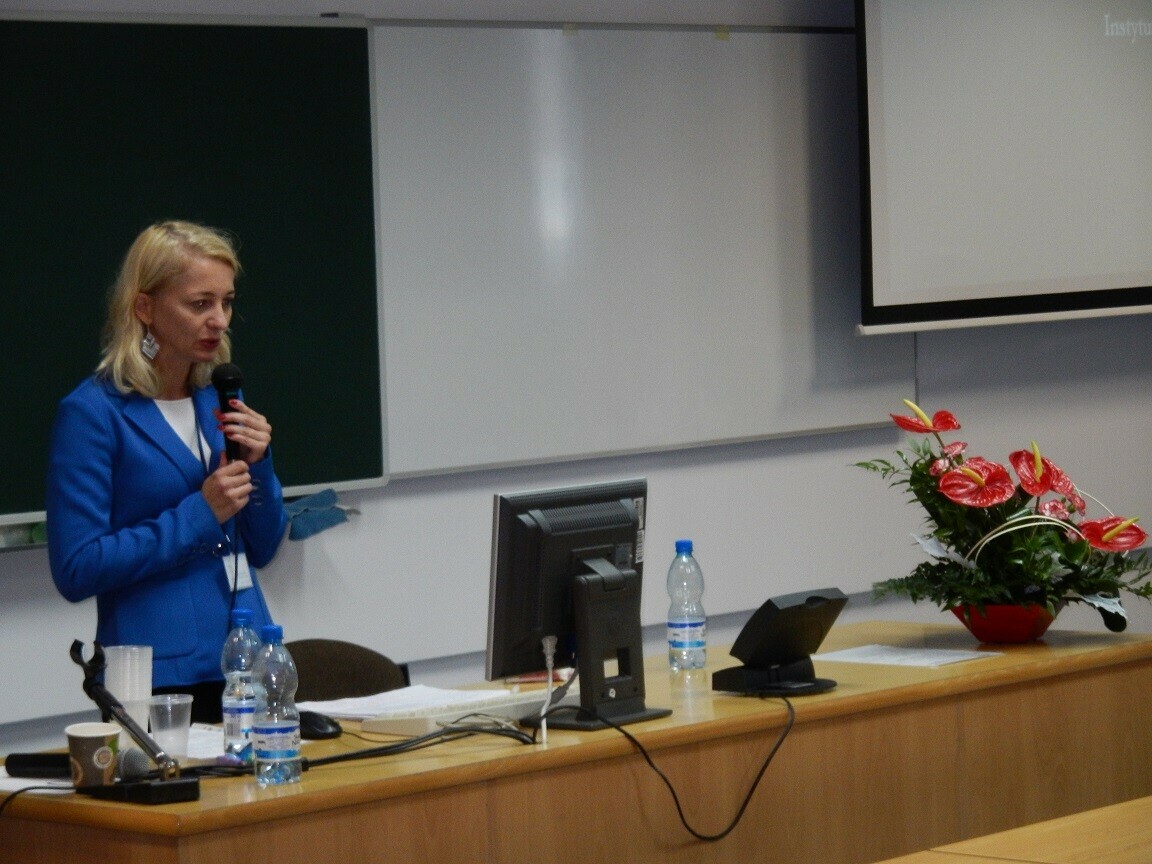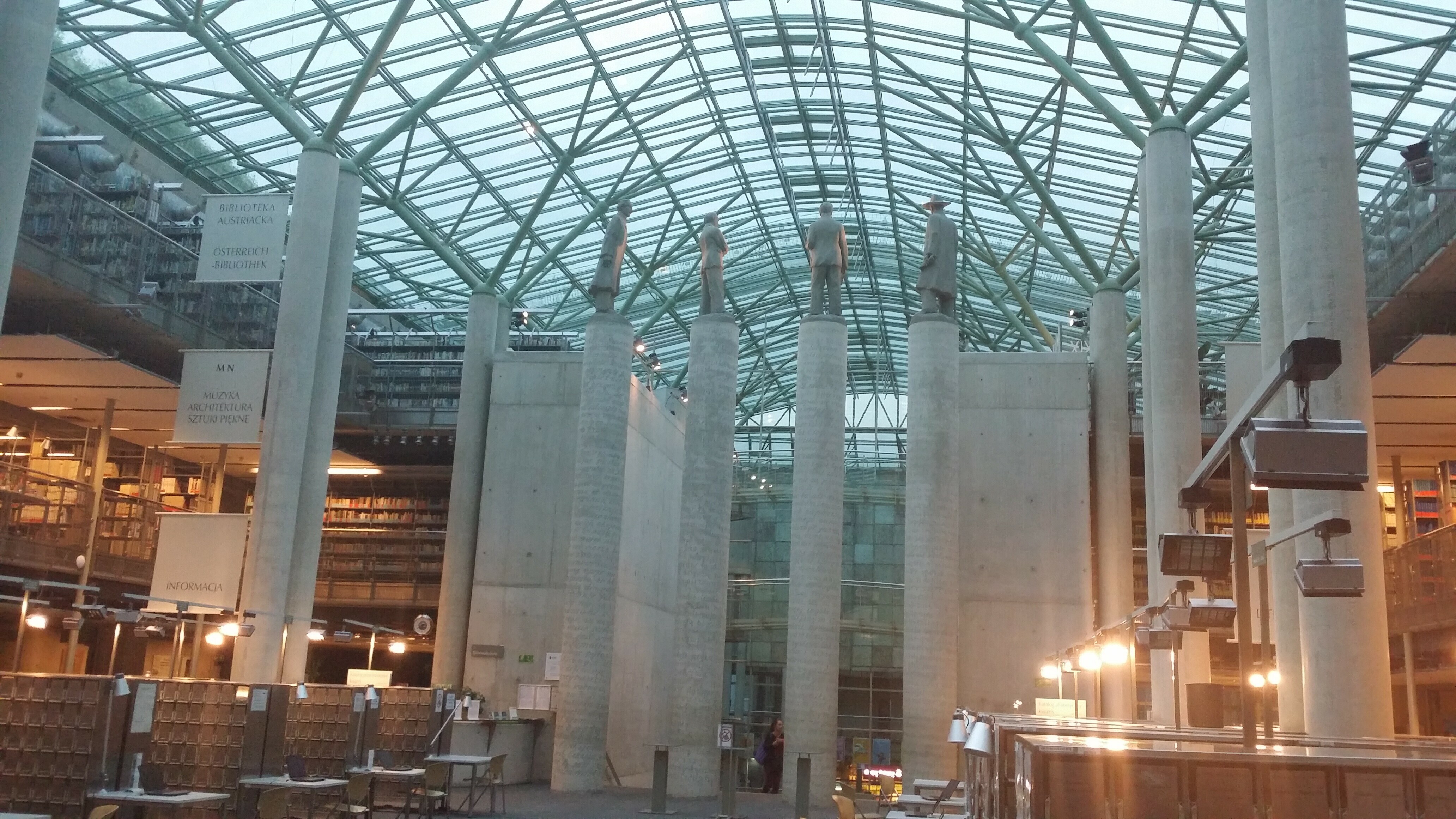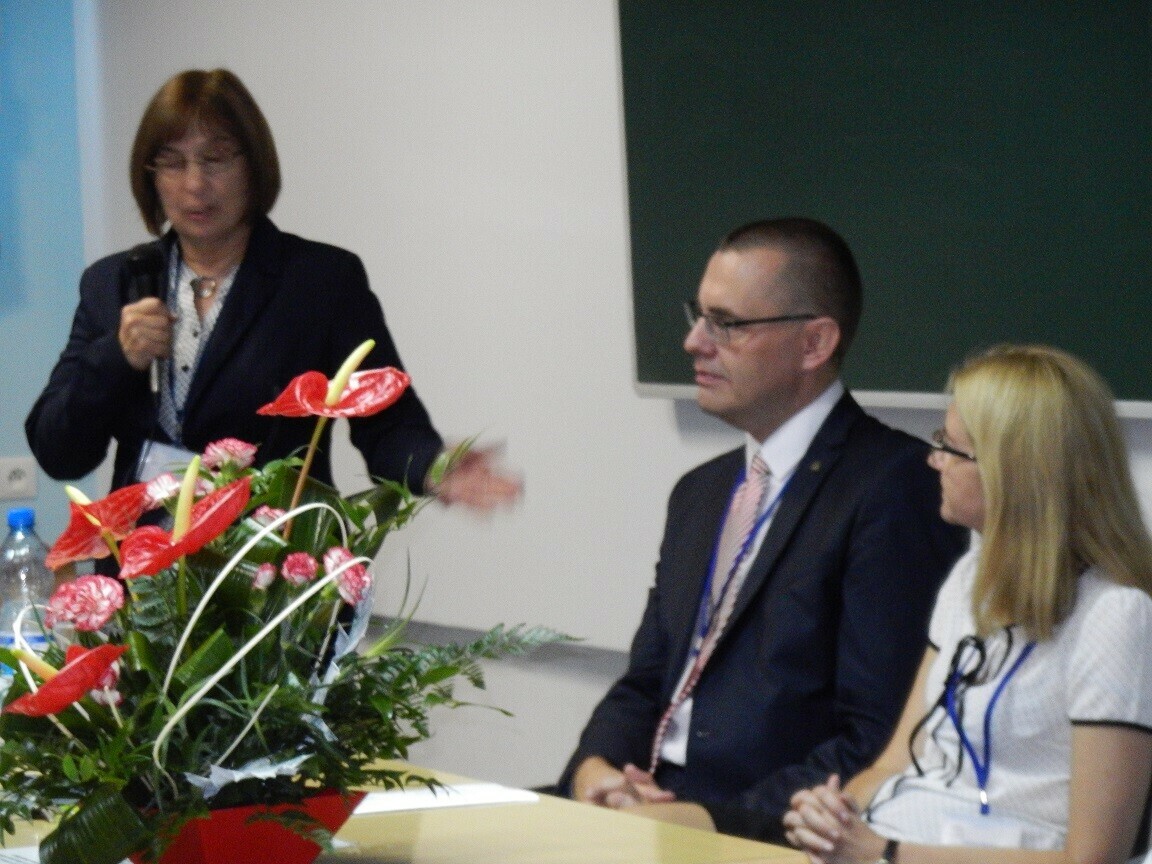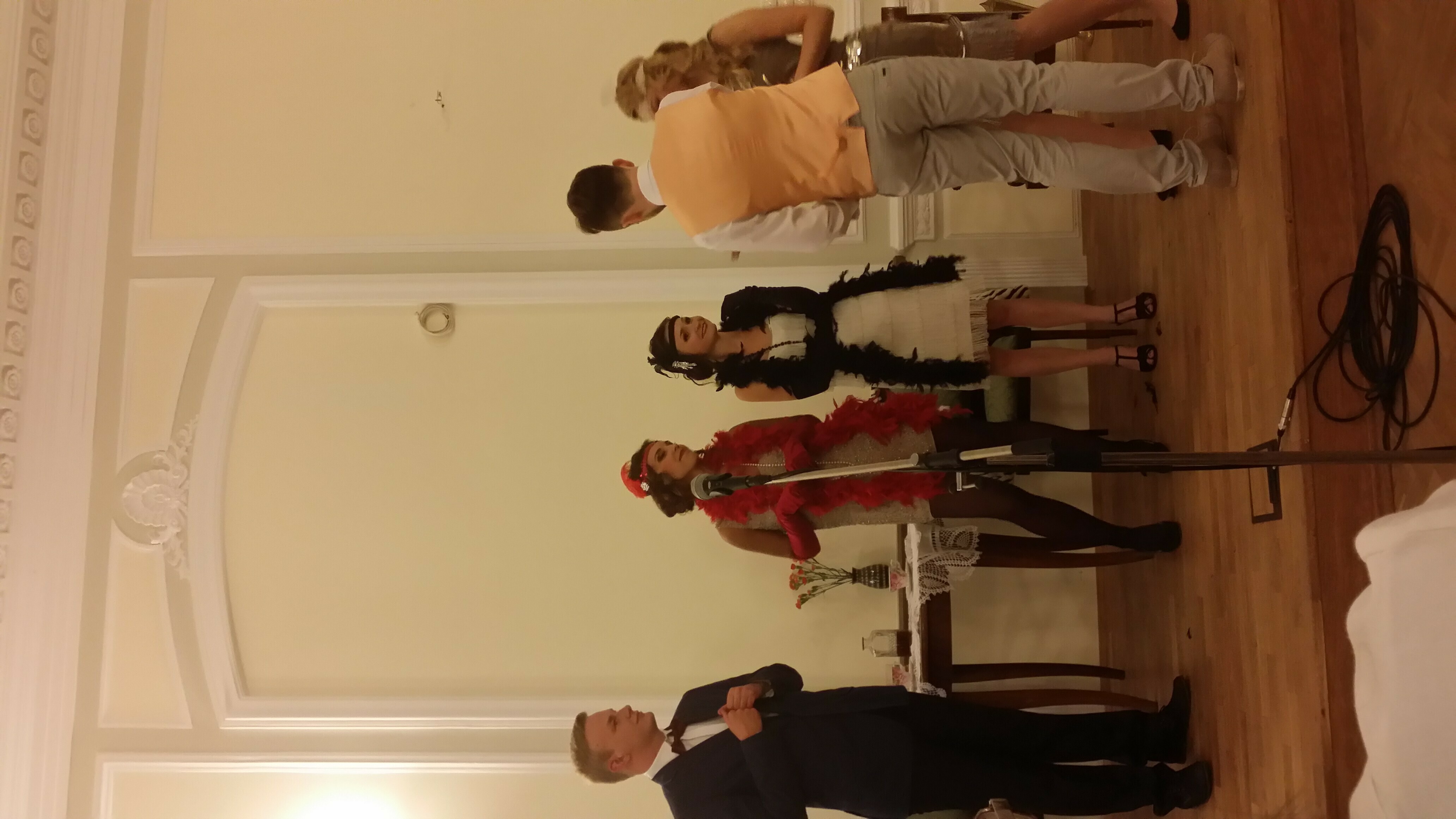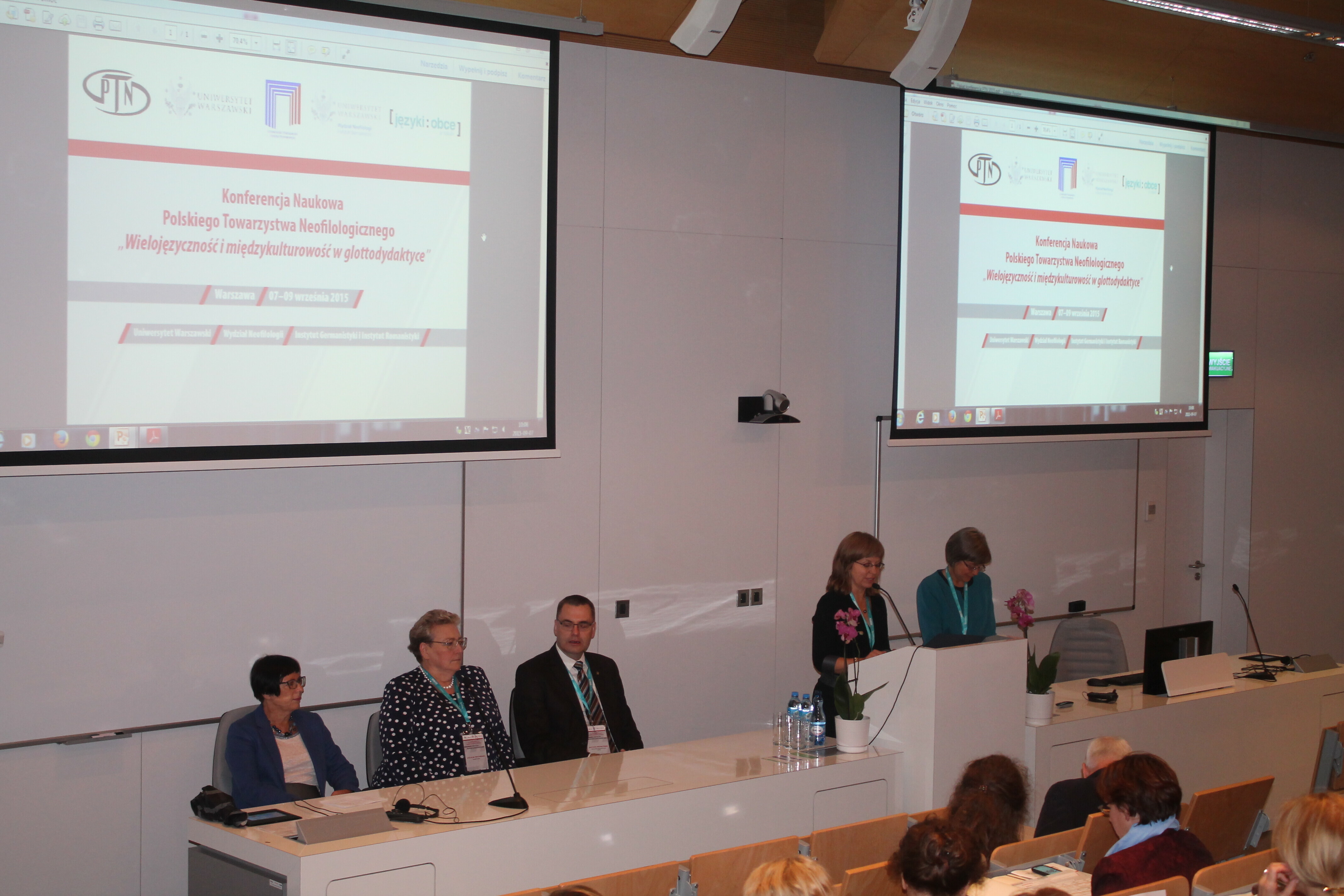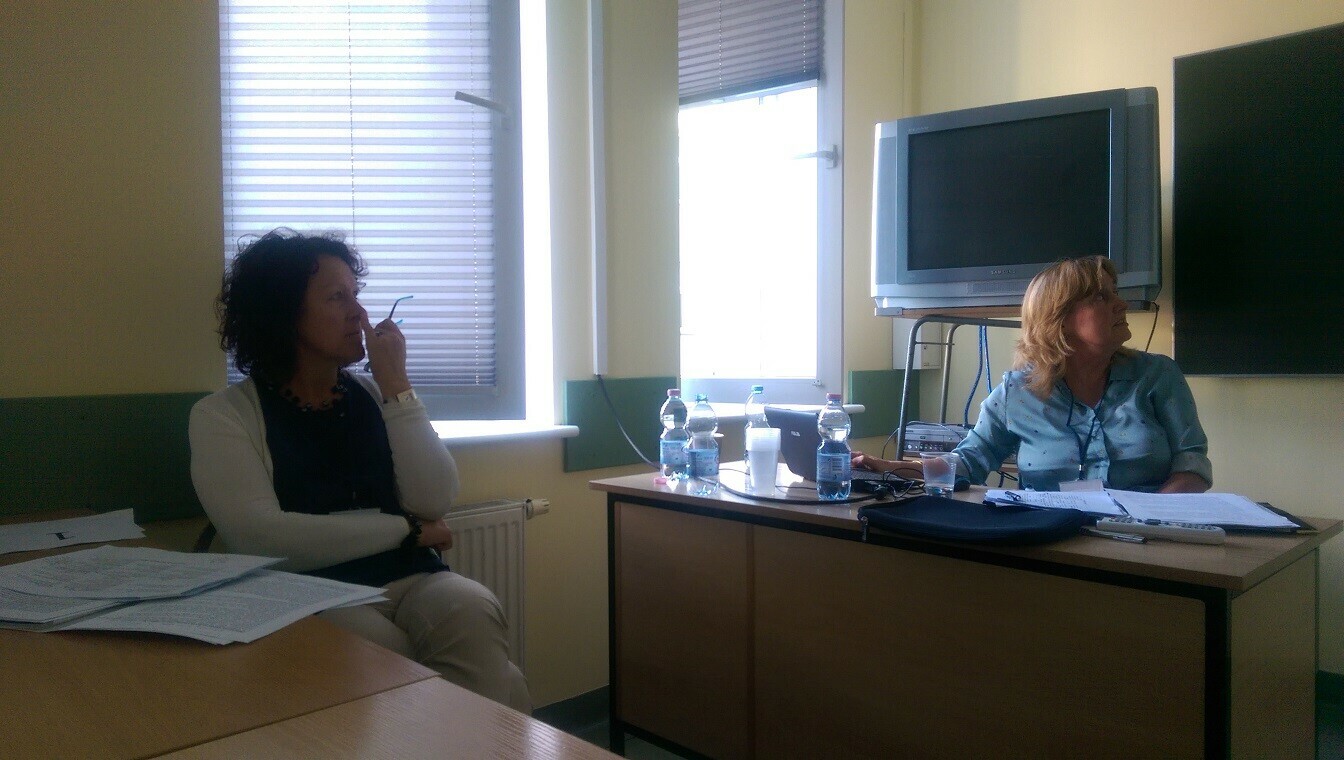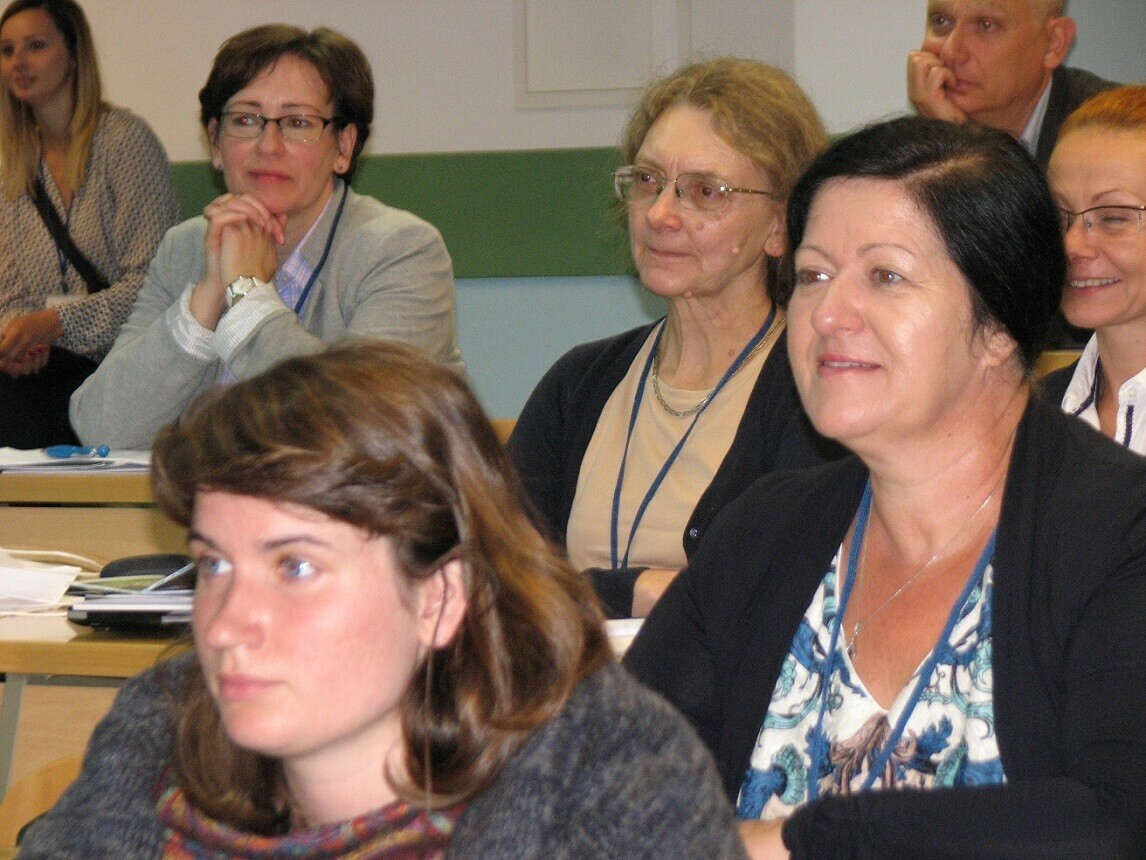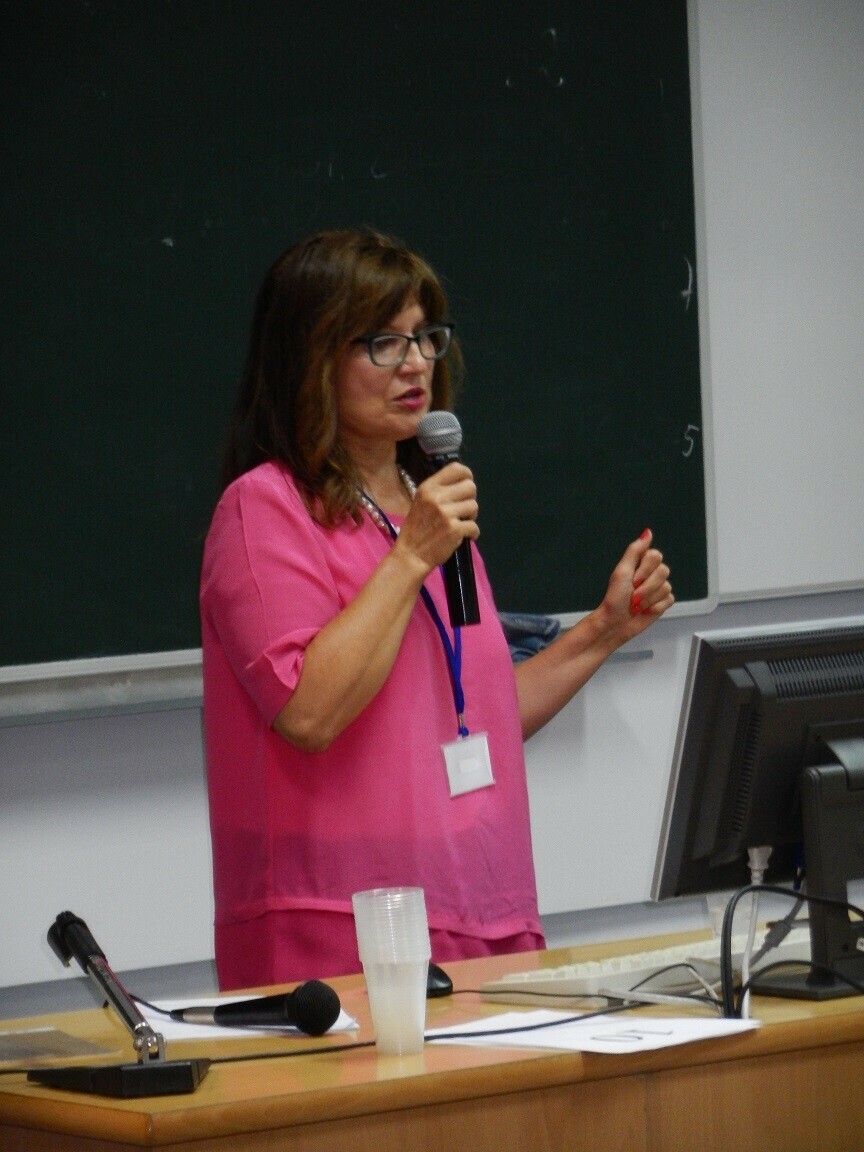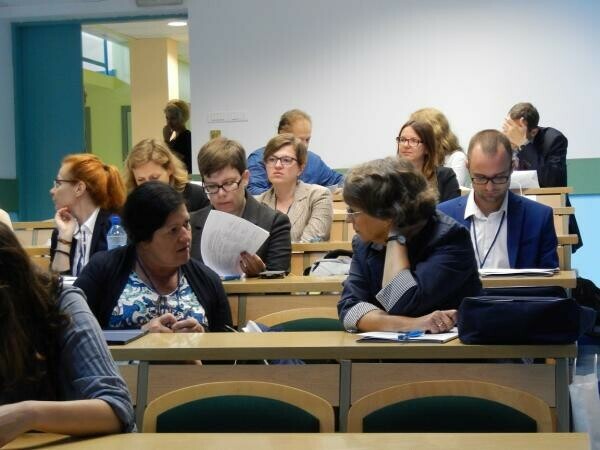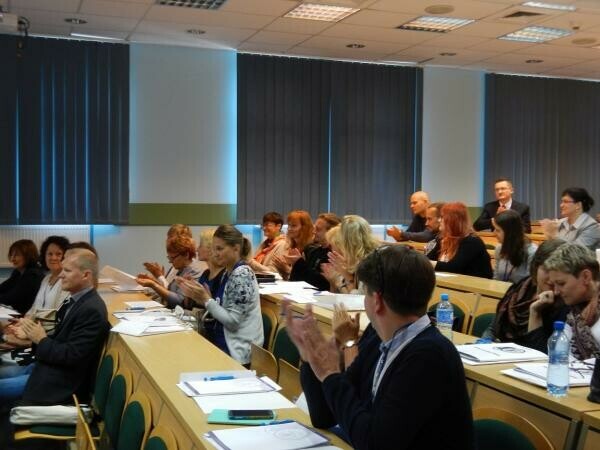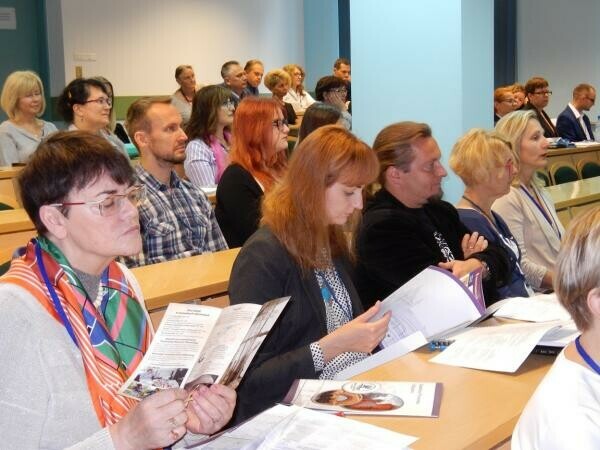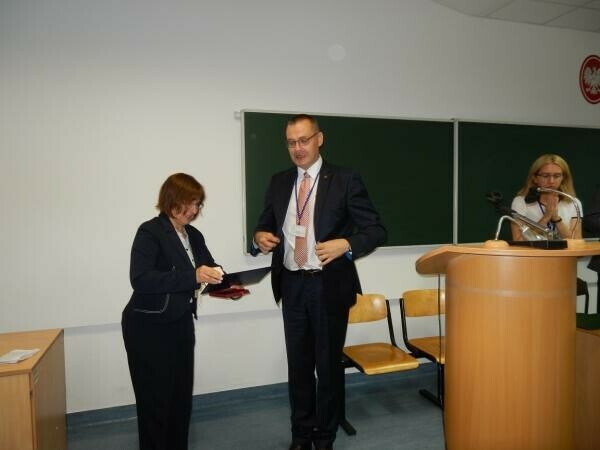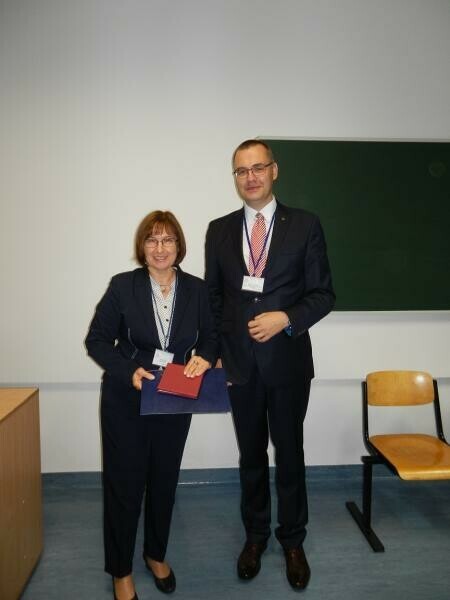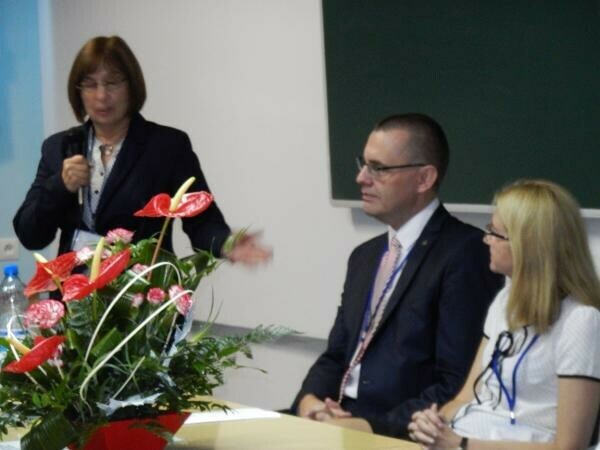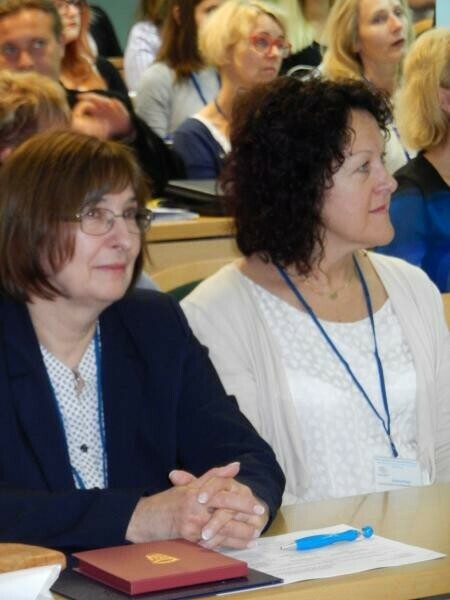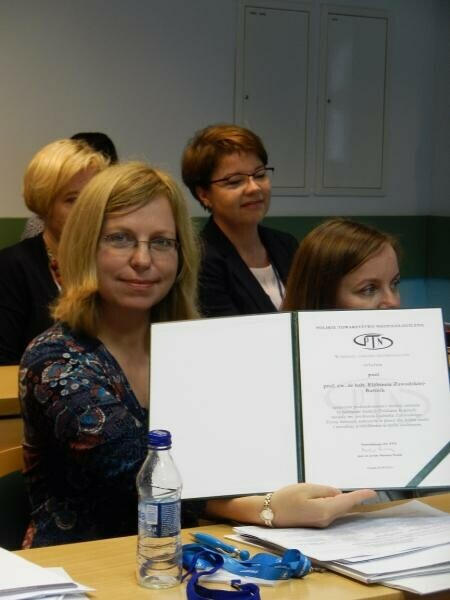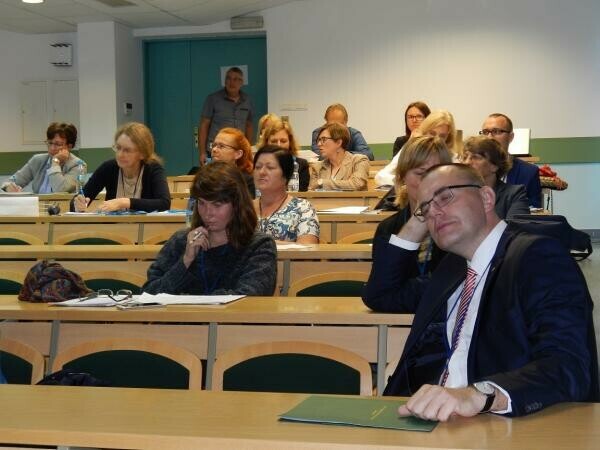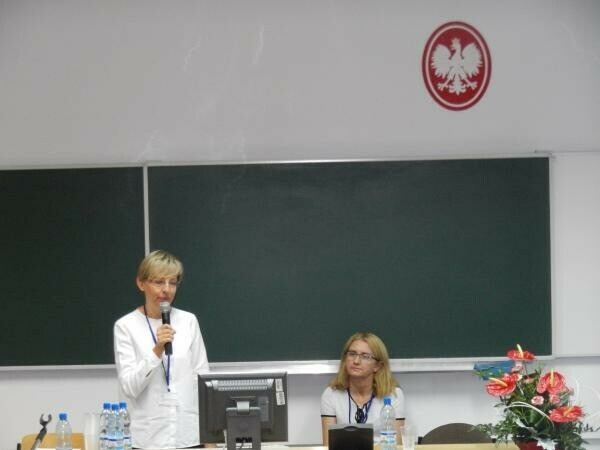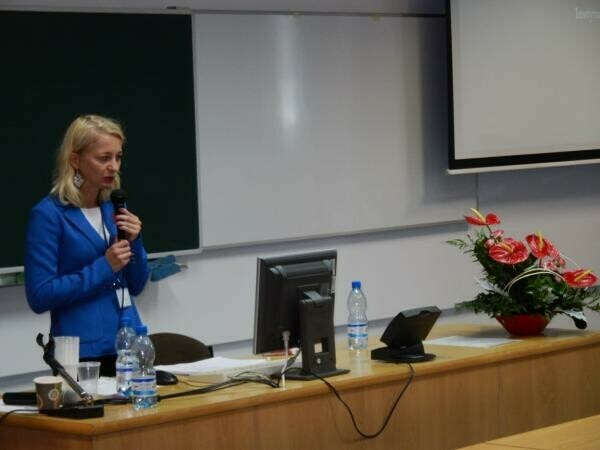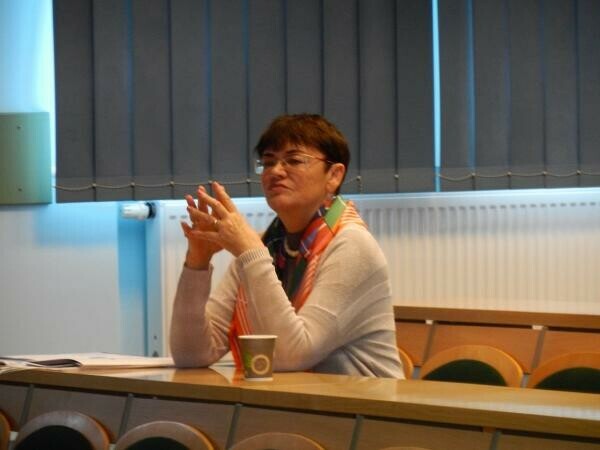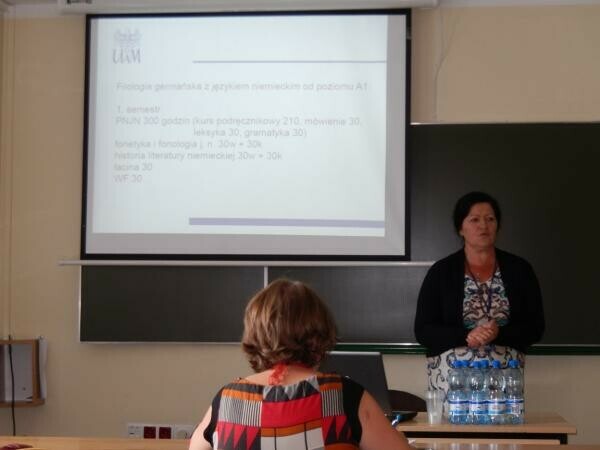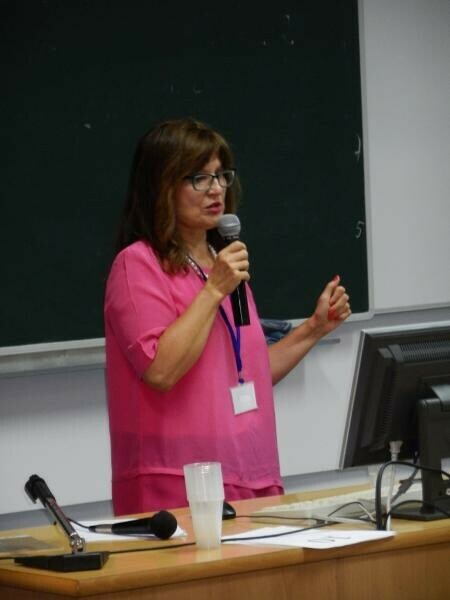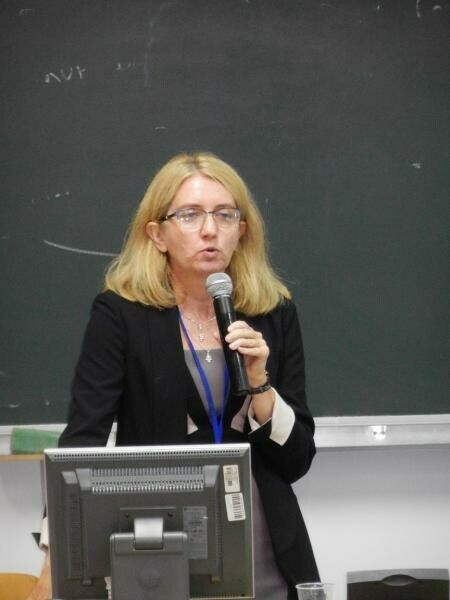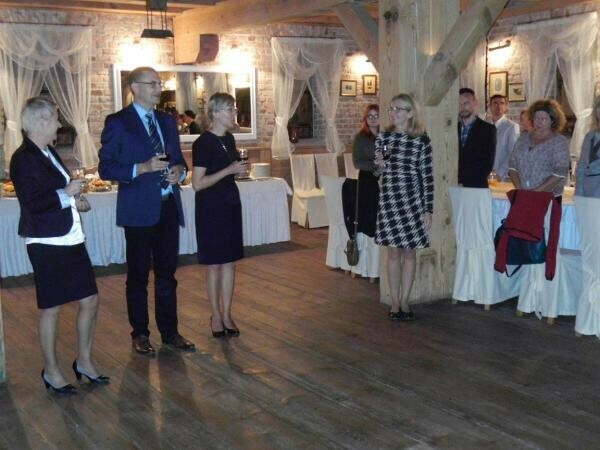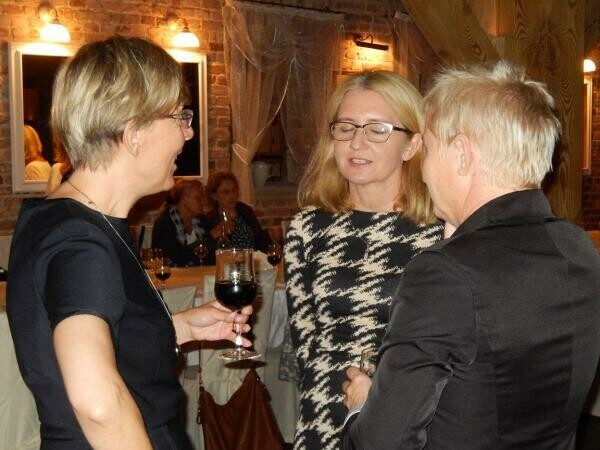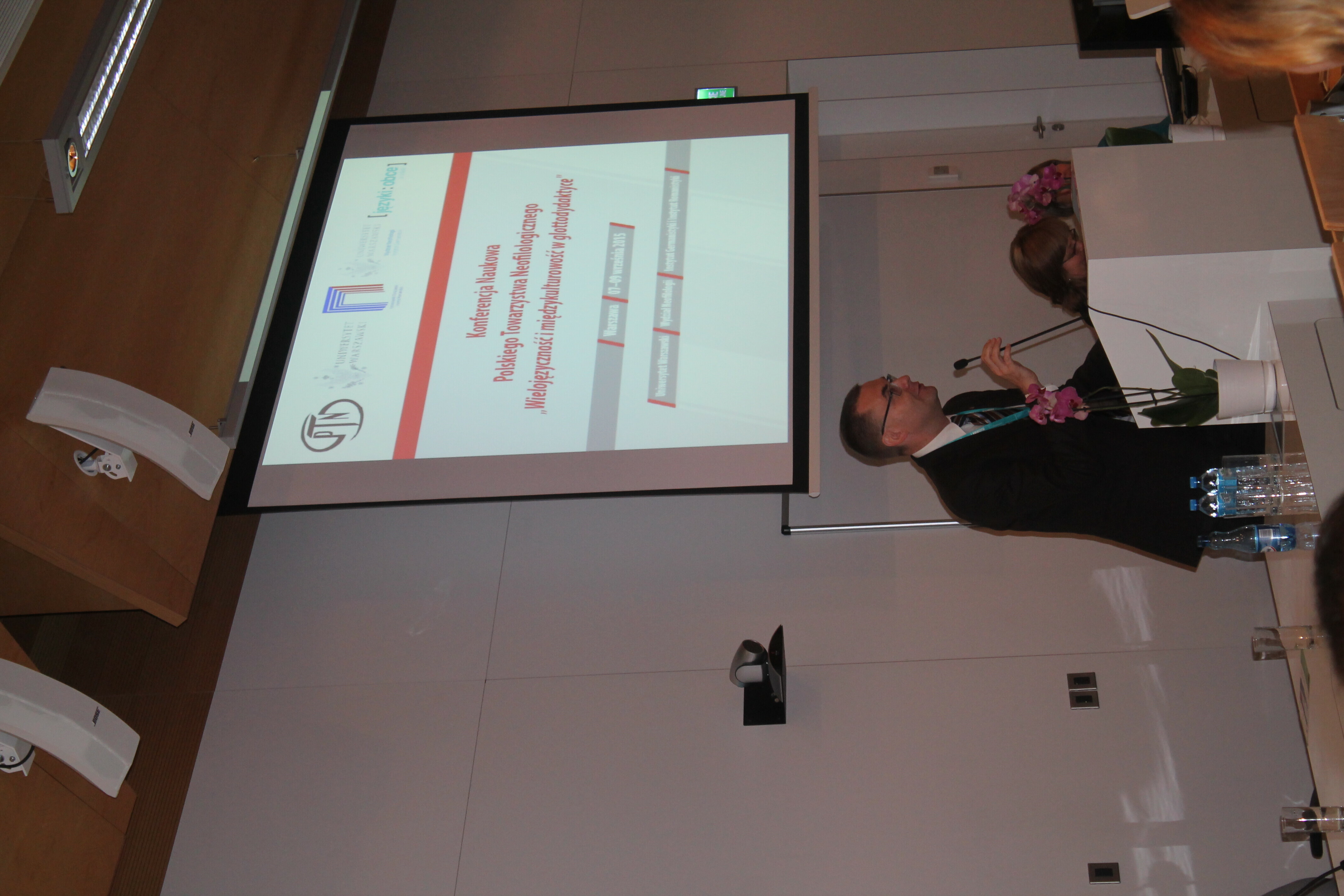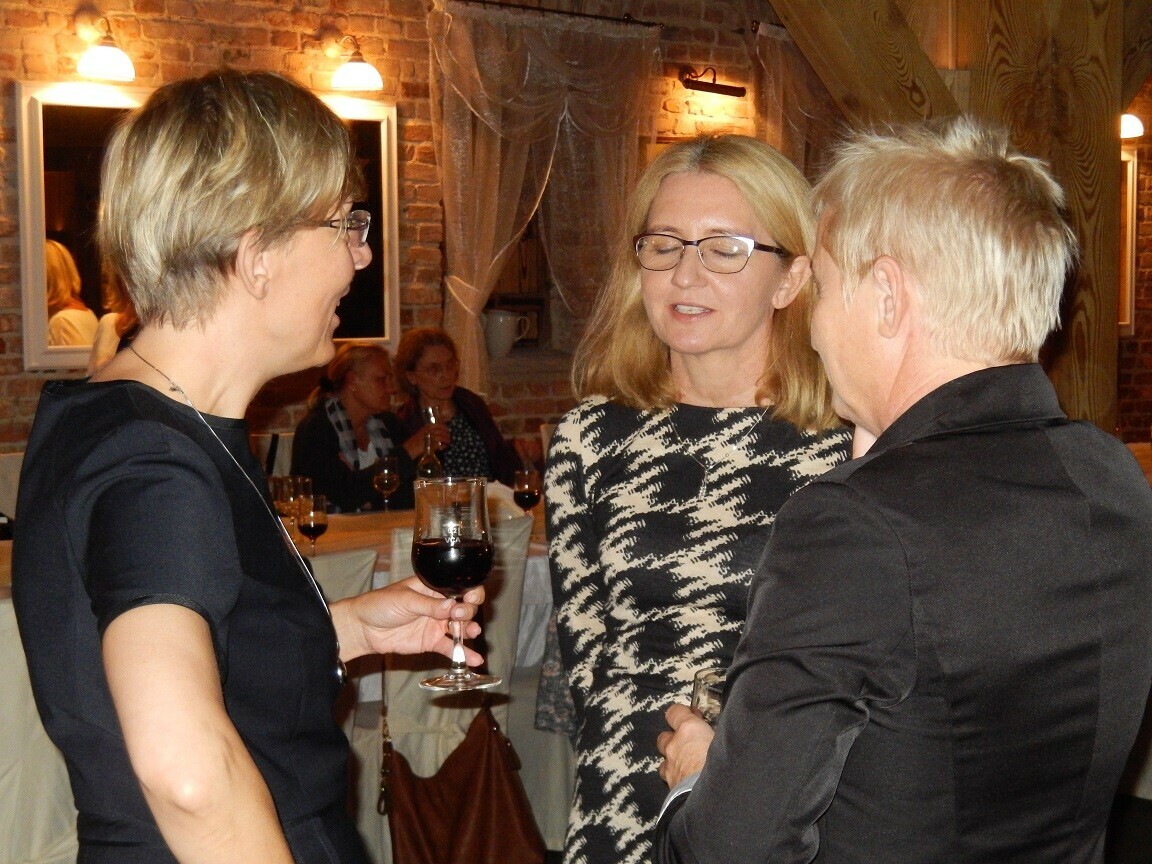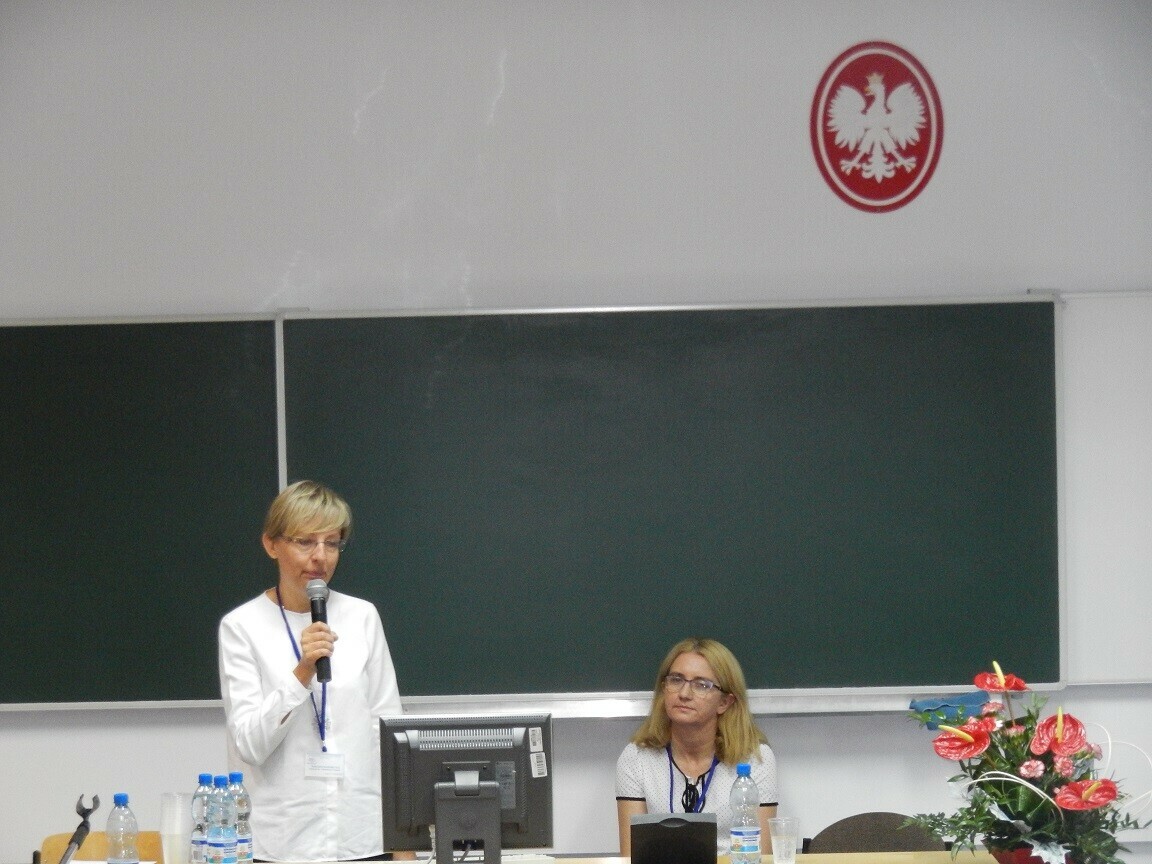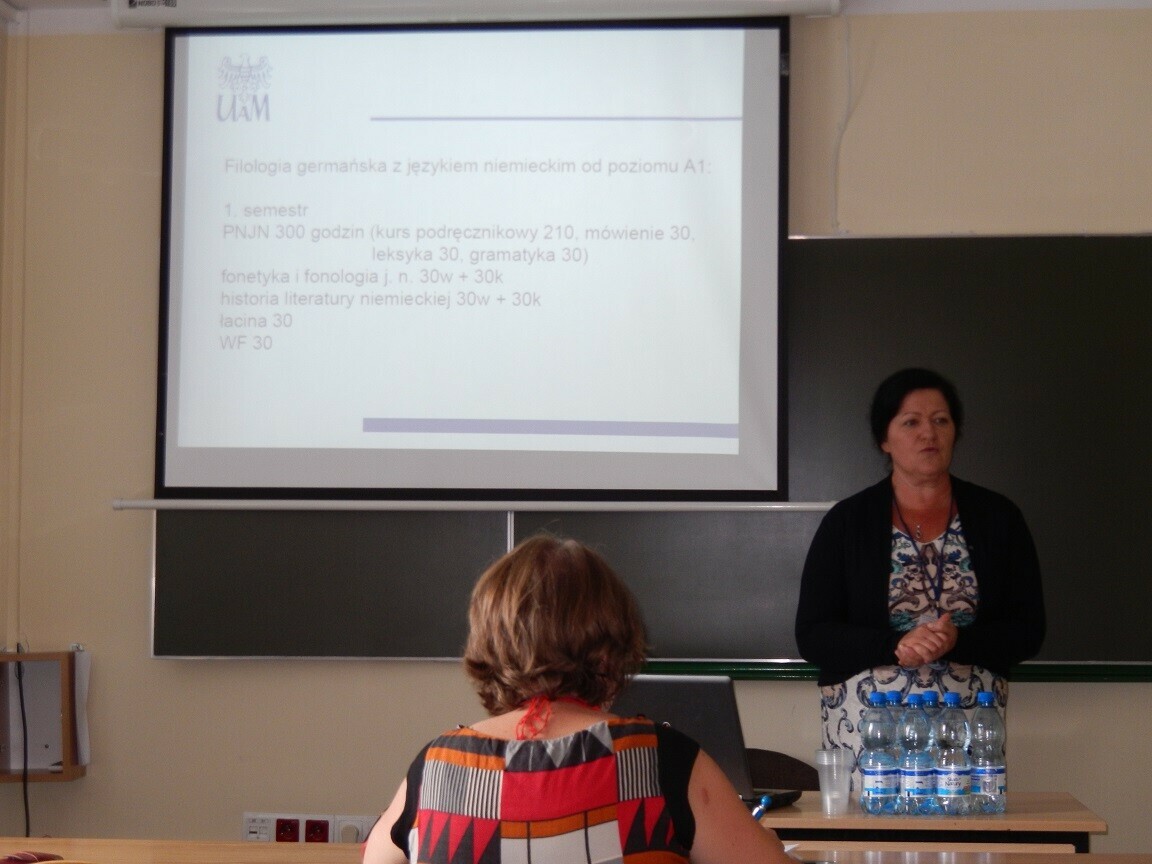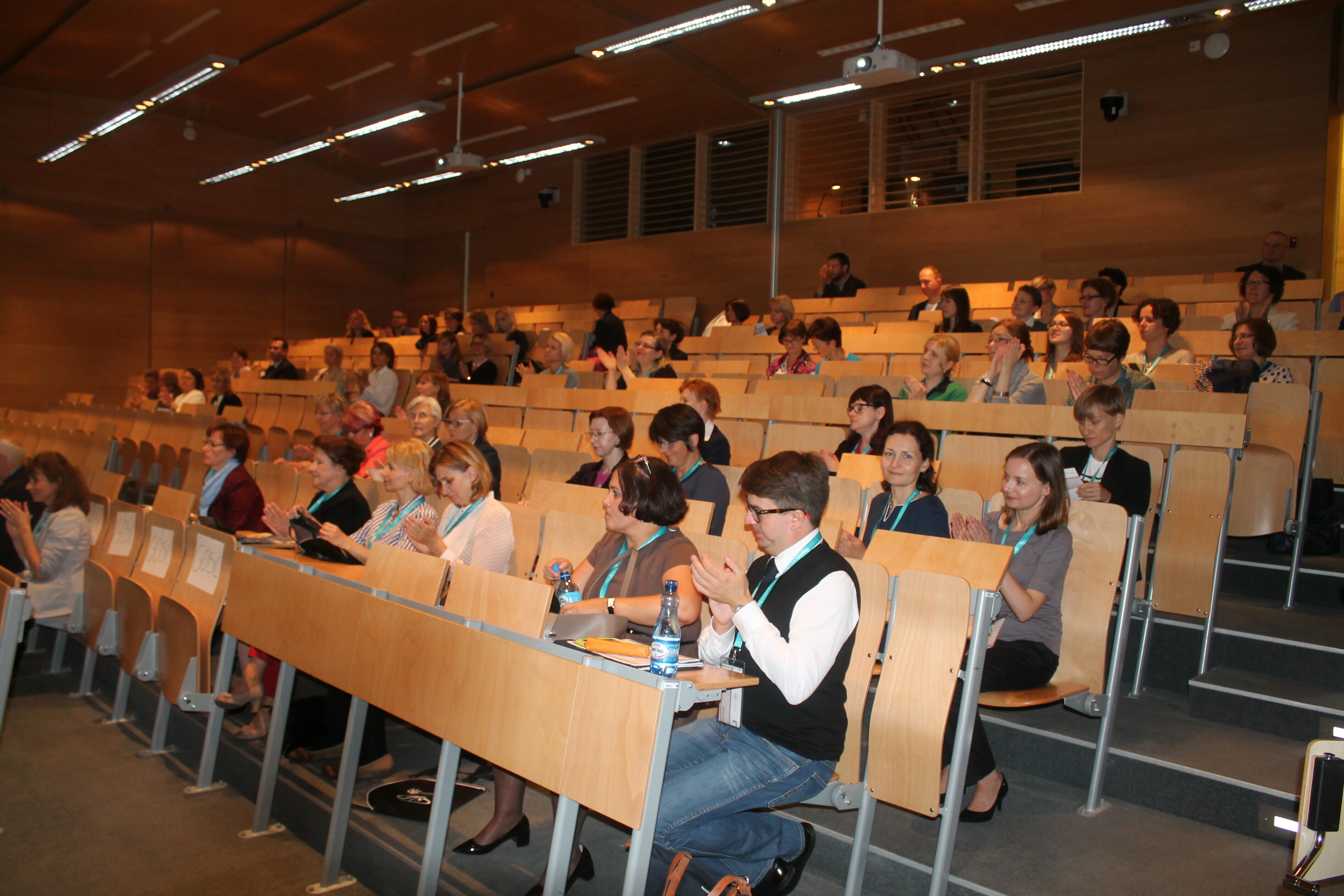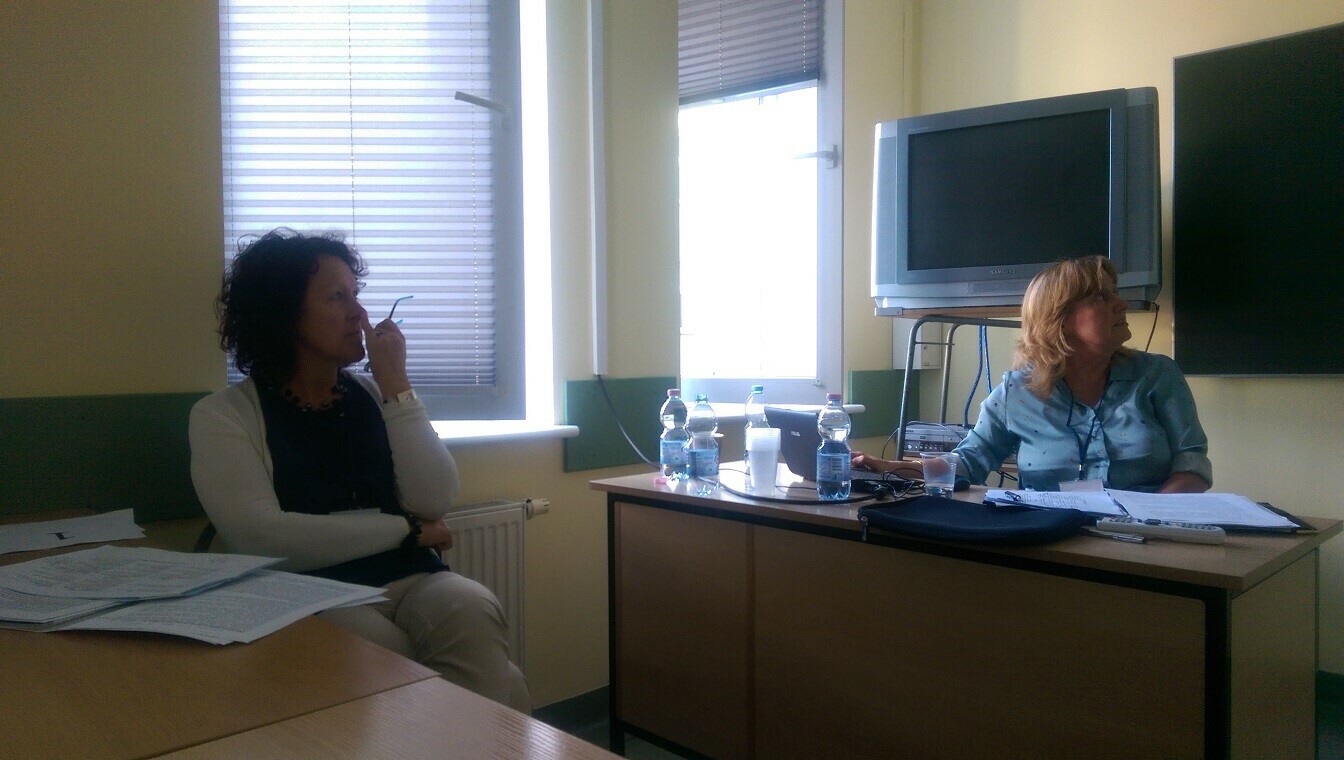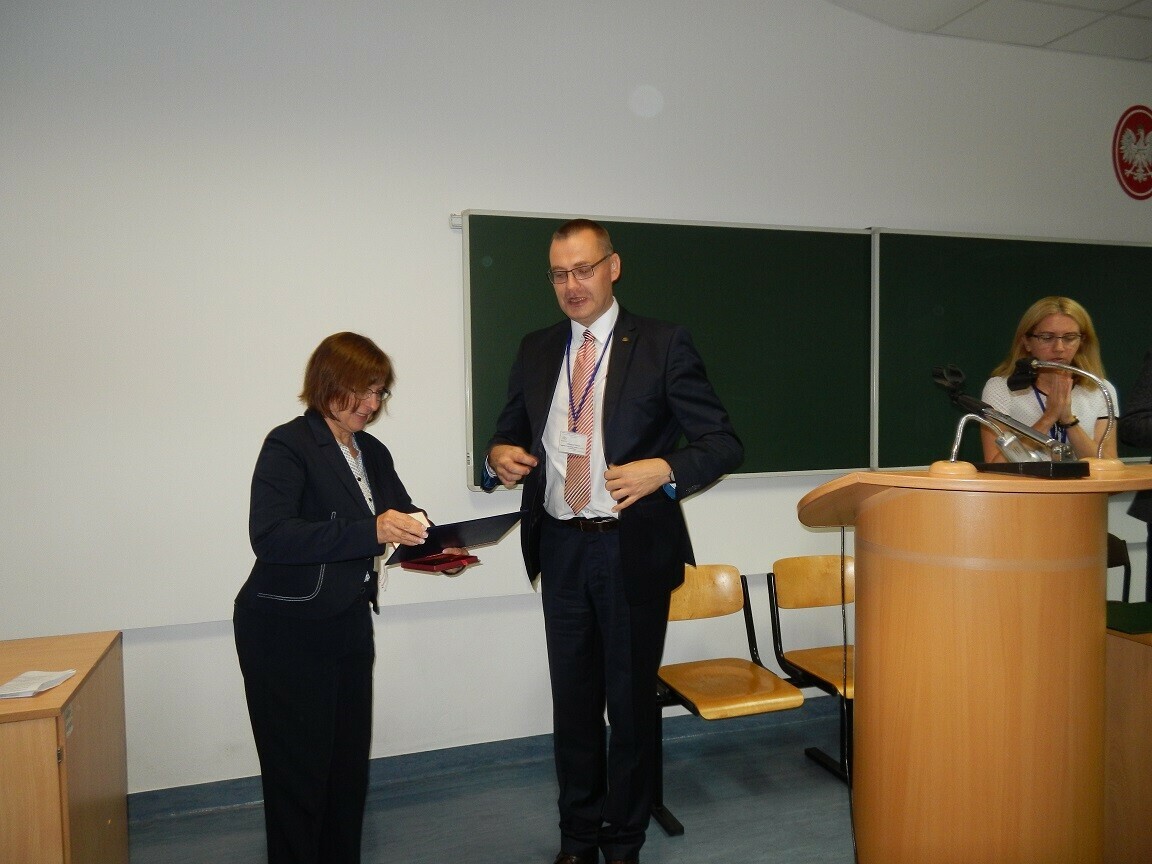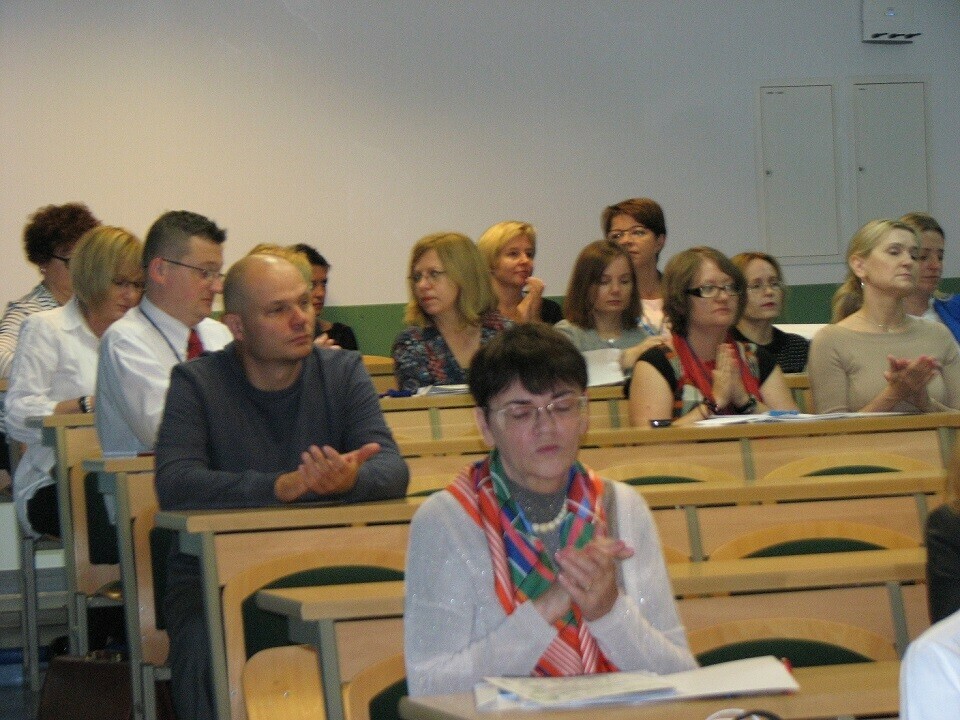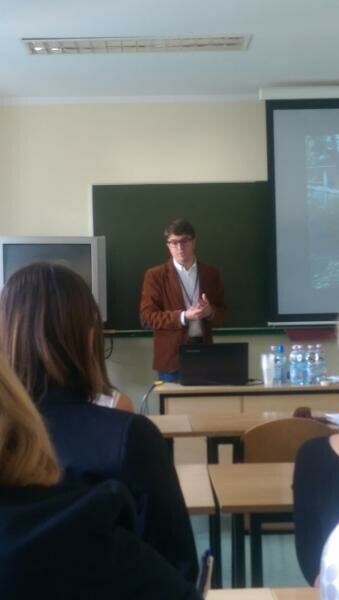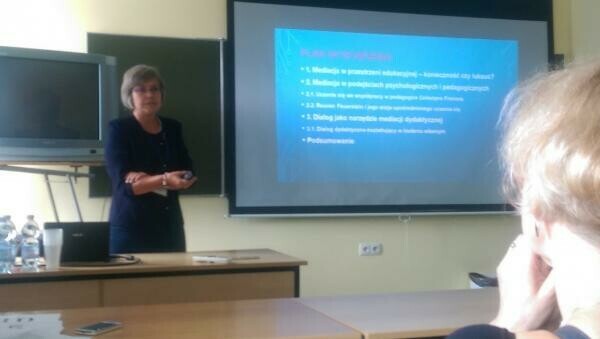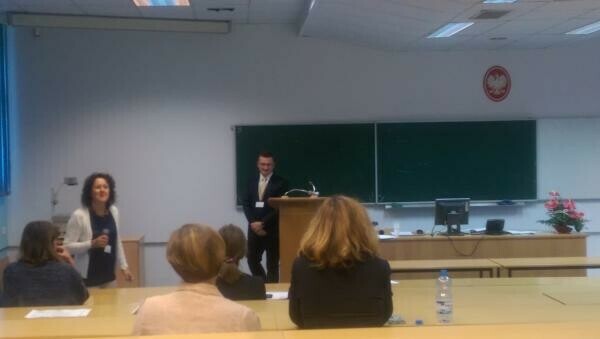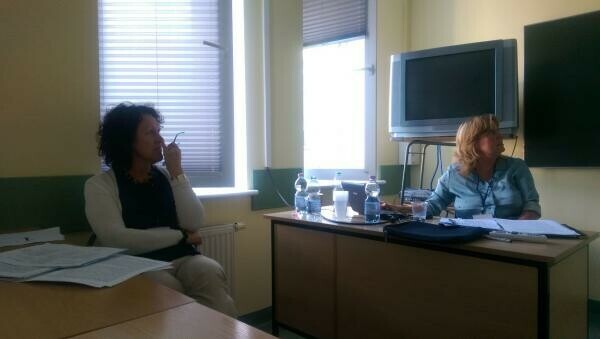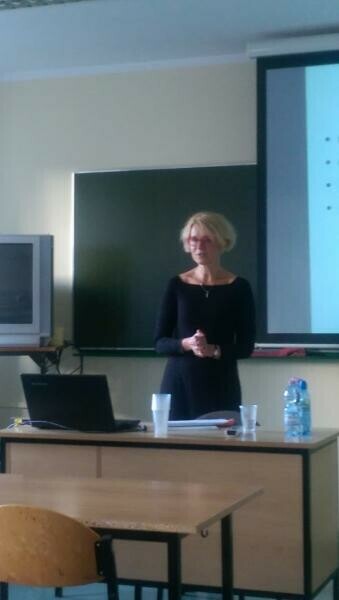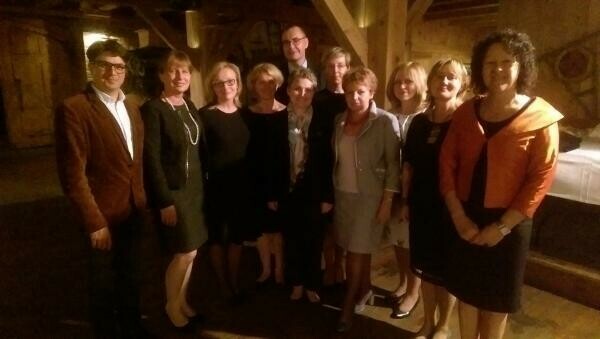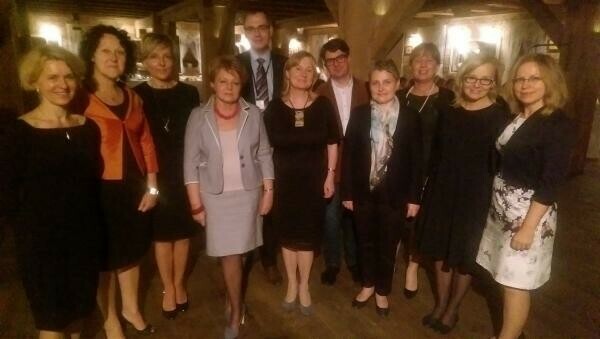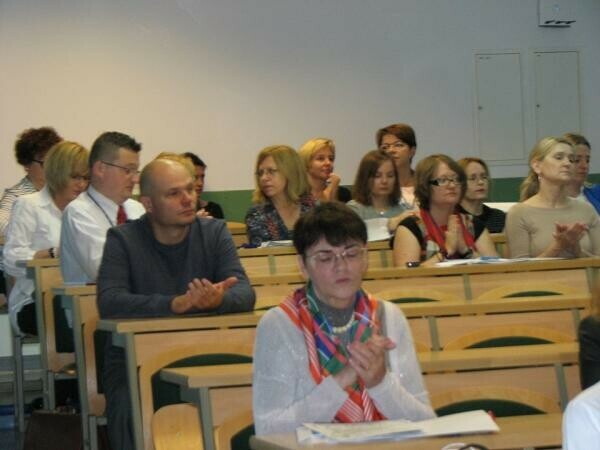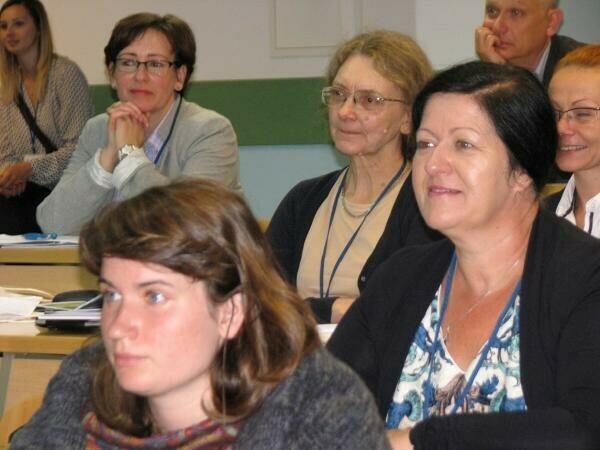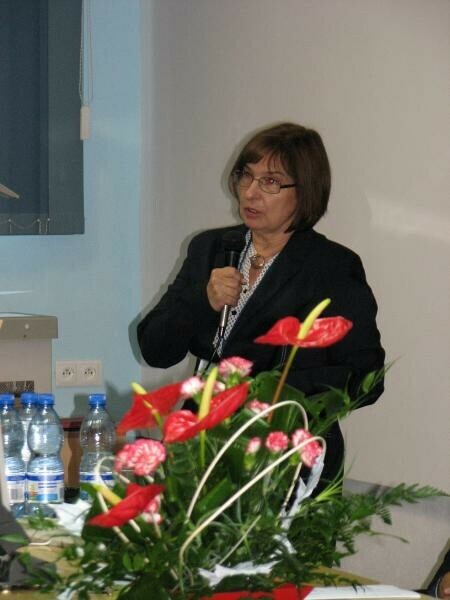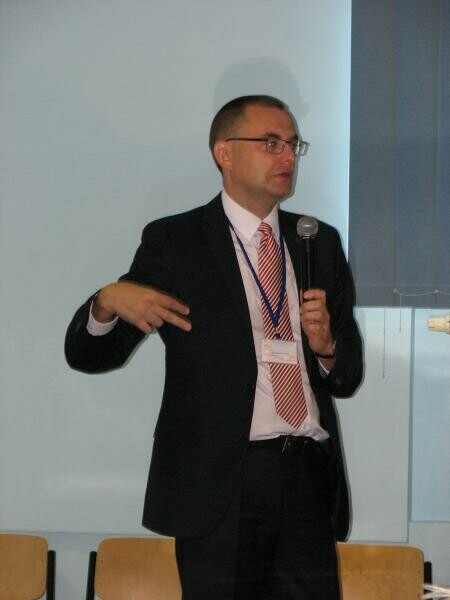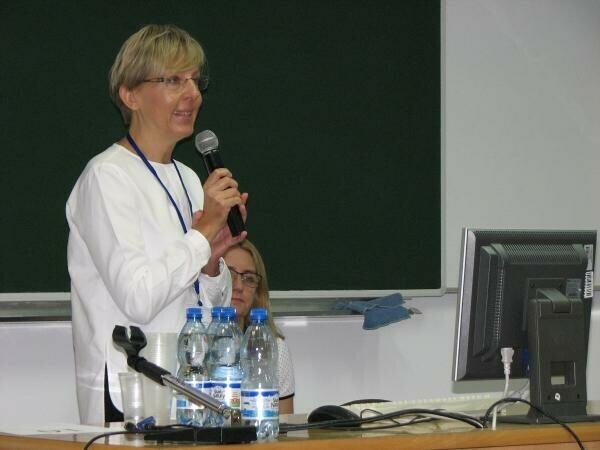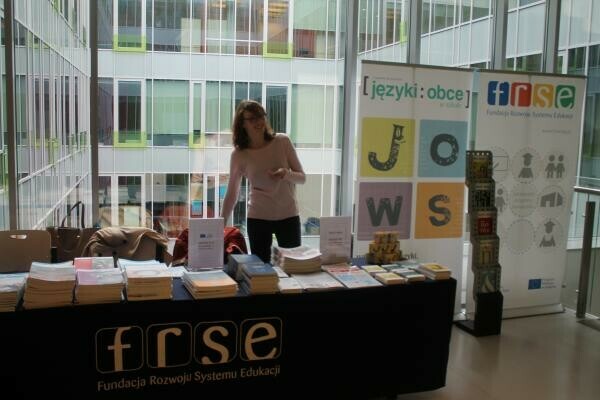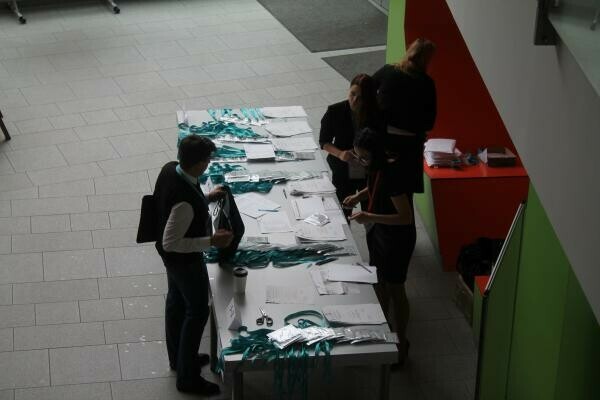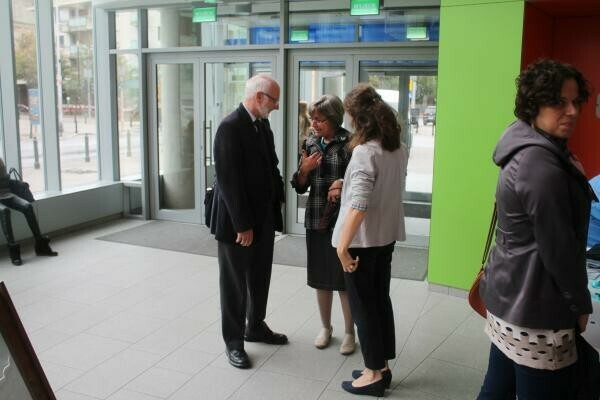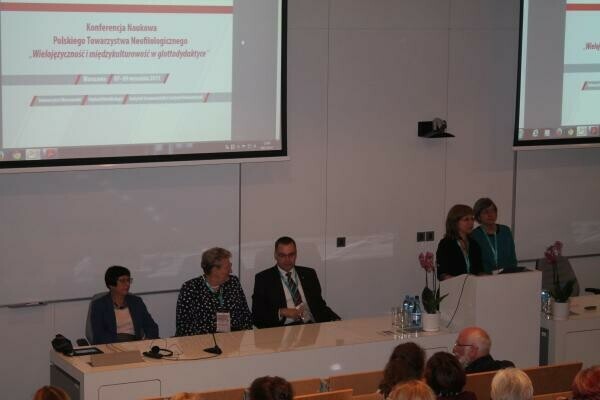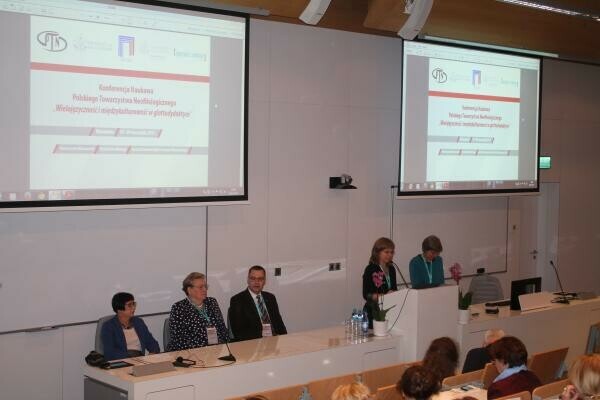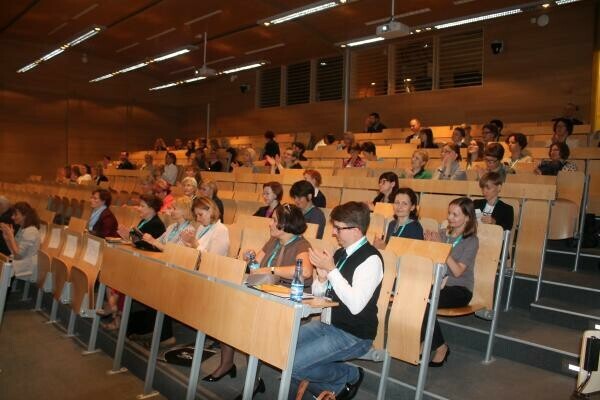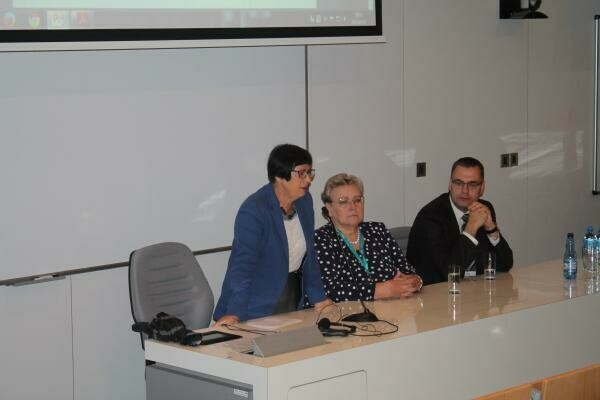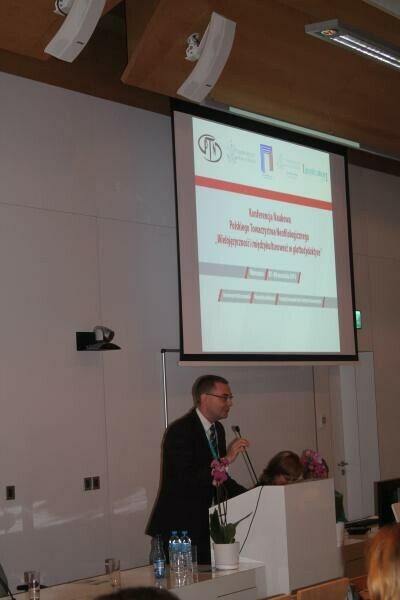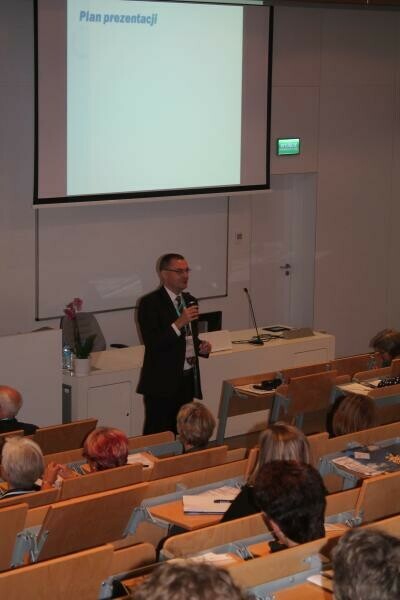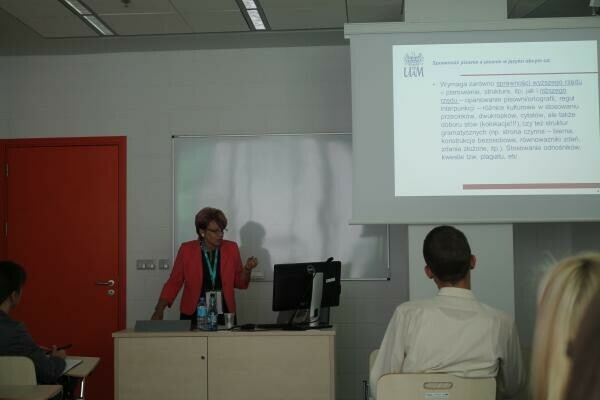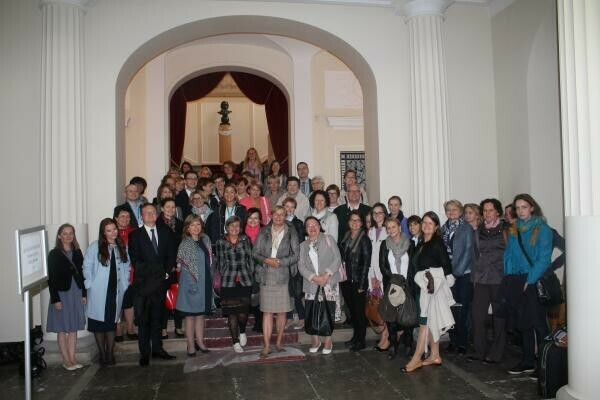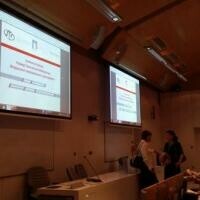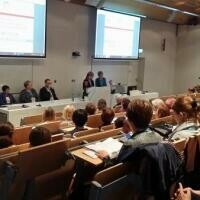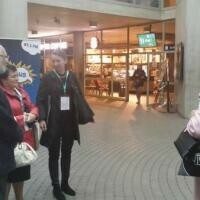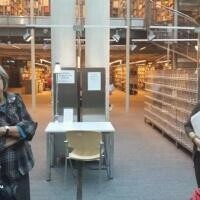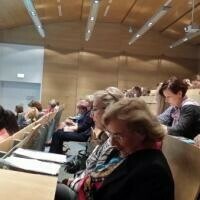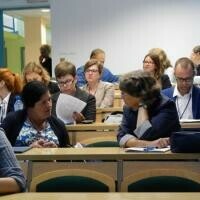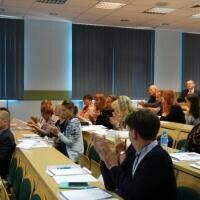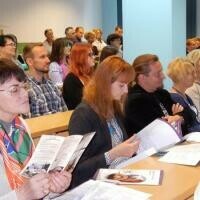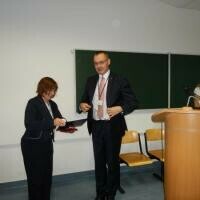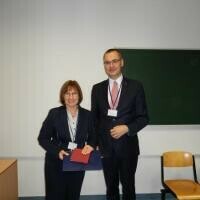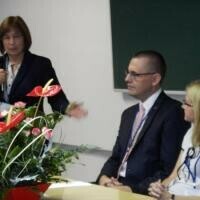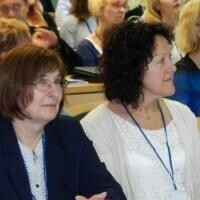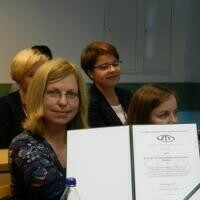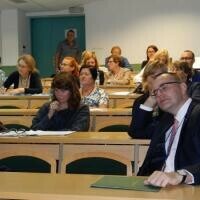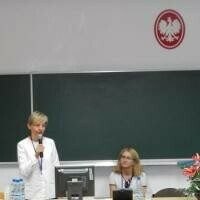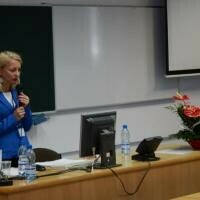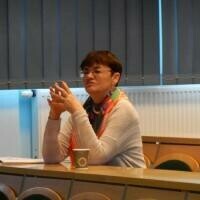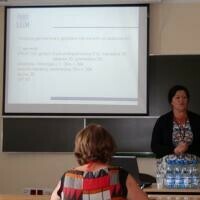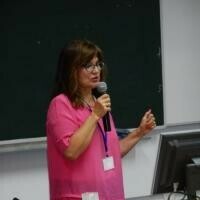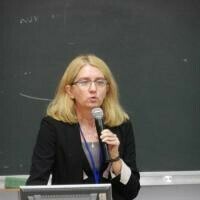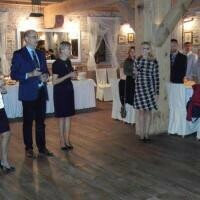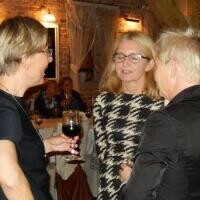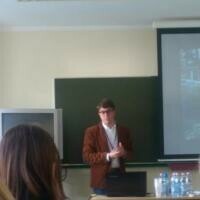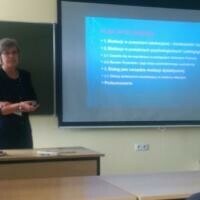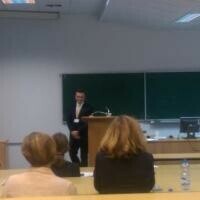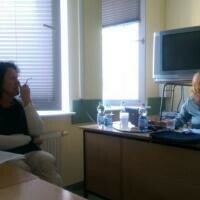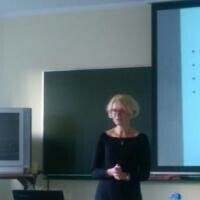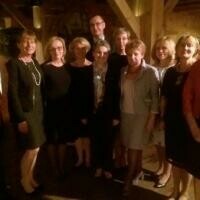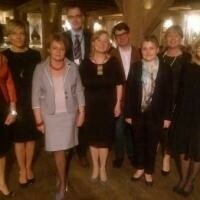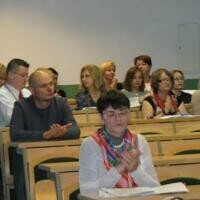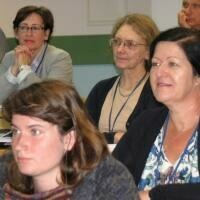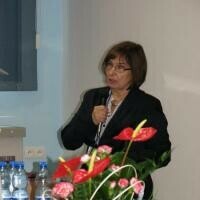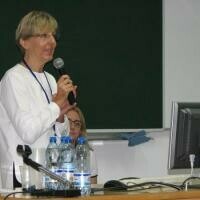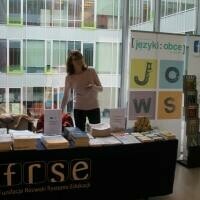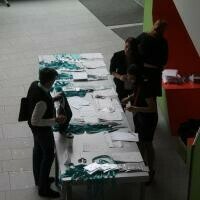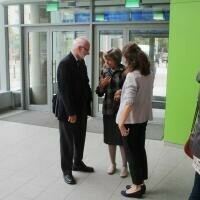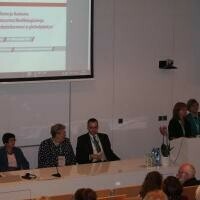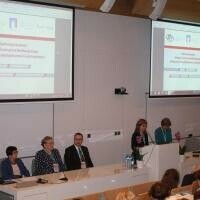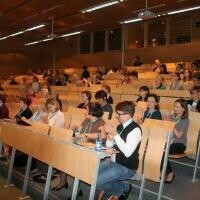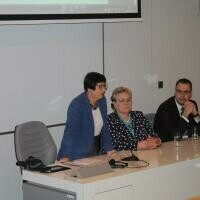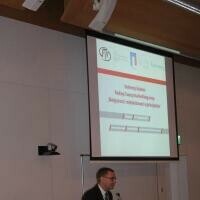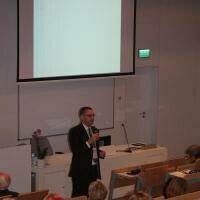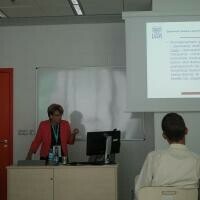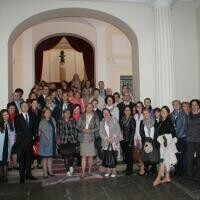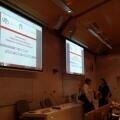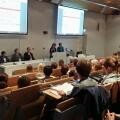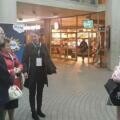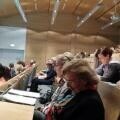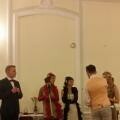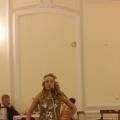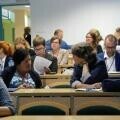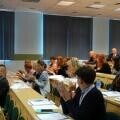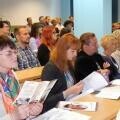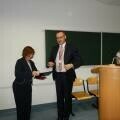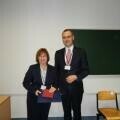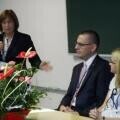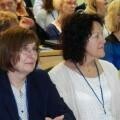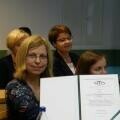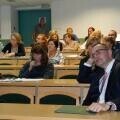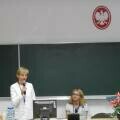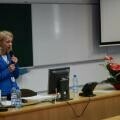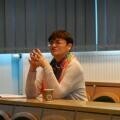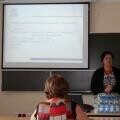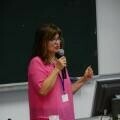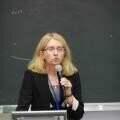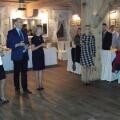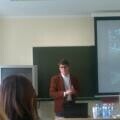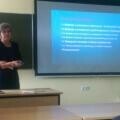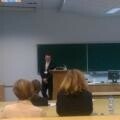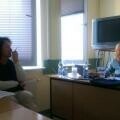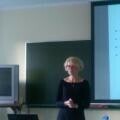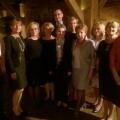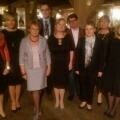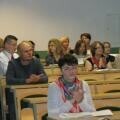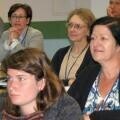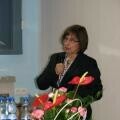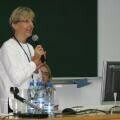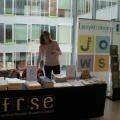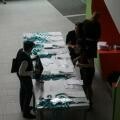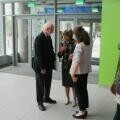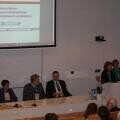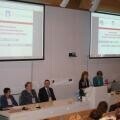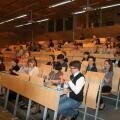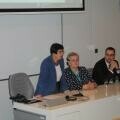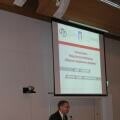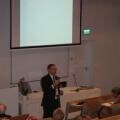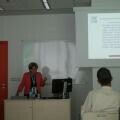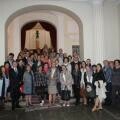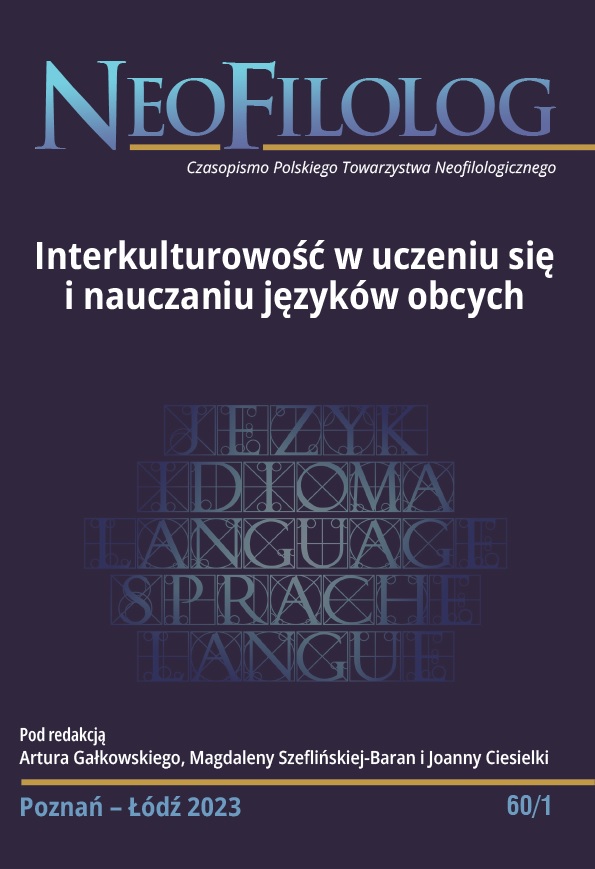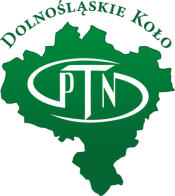Neofilolog nr 33 (2009)
Neofilolog nr 33 (2009)
→ Numer 33 Neofilologa dostępny online
SŁOWO WSTĘPNE
Z przyjemnością przekazujemy naszym Czytelnikom kolejny tematyczny numer Neofilologa Koncepcje i wdrożenia w glottodydaktyce. Tom wpisuje się w ciąg publikacji kładących nacisk na badania naukowe i ich praktyczne wykorzystanie. Stanowi kontynuację i rozwinięcie problematyki podjętej w 32. numerze tematycznym Metody badań w językoznawstwie stosowanym, z naciskiem na przykłady praktycznego wykorzystania efektów badań glottodydaktycznych. Tej tak ważnej problematyce Polskie Towarzystwo Neofilologiczne poświęciło jubileuszową konferencję naukową, z której sprawozdanie autorstwa Sebastiana Piotrowskiego znajdą Państwo na końcu tomu. Wydanie kolejnych dwóch tomów tematycznych, traktujących o stanie badań i ich zastosowaniach (Neofilolog 34 - Glottodydaktyka jako nauka i Neofilolog 35 - Badania glottodydaktyczne w praktyce), planowane jest na rok 2010.
Glottodydaktyka, jako nauka stosująca metody badań empirycznych, wykształciła wiele ciekawych koncepcji, wdrażanych z sukcesem. Mamy więc w tomie bardzo różne przykłady inspirujących rozwiązań, dotyczących prowadzonych badań i wykorzystania w praktyce ich wyników. Szczególną wartością publikacji wydawanych przez Polskie Towarzystwo Neofilologiczne jest to, że autorzy wywodzą się z różnych specjalności filologicznych. Penetrując te same obszary badawcze ale nauczając różnych języków, dzielą się doświadczeniami, które da się łatwo przeszczepić na nowy grunt. To znakomite źródło wzajemnych inspiracji.
Tom Koncepcje i wdrożenia w glottodydaktyce podzielony został na dwie części: Koncepcje - raporty z badań i Wdrożenia - raporty z wykorzystania wyników badań w praktyce - niezależnie od ich charakteru i nauczanego języka. W obrębie obu części teksty uporządkowano w porządku alfabetycznym. Sądzę, że różnorodność obszarów badawczych uzasadnia takie podejście.
Trudno czasami dokładnie określić dość płynne granice, w jakich treść artykułu kładzie nacisk na przedstawienie koncepcji czy też wdrożenia. Dlatego w pewnych przypadkach o przyporządkowaniu zdecydowały proporcje między wywodem teoretycznym a przykładami.
W części poświęconej ciekawym koncepcjom znajdą Państwo teksty traktujące o badaniu potrzeb edukacyjnych i zdolności językowych (Adriany Biedroń, Anny Jantarskiej, Iwony Droni, Pawła Sobkowiaka, Macieja Smuka), o rozmaitych zastosowaniach procedur i narzędzi badawczych (Marka Derenowkiego, Anny Koniecznej, Grażyny Kiliańskiej-Przybyło, Moniki Sułkowskiej), wreszcie o nowatorskich koncepcjach wykorzystywanych w nauczaniu i uczeniu się języka obcego (Joanny Góreckiej, Aleksandry Łyp-Bieleckiej, Ewy Półtorak, Joanny Pędzisz, Doroty Szczęśniak).
Część pokazująca ciekawe wdrożenia otwiera tekst autorstwa Wiesławy Burlińskiej - Dyskurs edukacyjny w kształceniu przyszłych nauczycieli. W części tej, poza tą i dwiema kolejnymi pozycjami ogólnymi, poświęconymi europejskiemu portfolio językowemu autorstwa Katarzyny Krzemińskiej i narzędziom web 2.0 w pracy nauczyciela języków obcych autorstwa Weroniki Górskiej, znalazły się artykuły, których treści poparte są przykładami z konkretnych języków: angielskiego (Melanie Ellis, Lesława Tobiasza), hiszpańskiego (Małgorzaty Spychały, Cecylii Tatoj i Renaty Majewskiej), niemieckiego (Piotra Iwana, Iwony Wowro i Grażyny Zenderowskiej-Korpus) oraz francuskiego (Grzegorza Markowskiego).
Pragnę wyrazić wdzięczność pani prof. dr hab. Marii Dakowskiej za to, że przyjęła na siebie trud zrecenzowania 33 tomu Neofilologa a pani dr Melanie Ellis za korektę wszystkich streszczeń.
Halina Widła
SPIS TREŚCI
|
NEOFILOLOG 33 |
|
|
SŁOWO WSTĘPNE: Halina Widła |
5 |
|
Adriana Biedroń - Podłużne badanie zdolnościjęzykowych jako konceptu dynamicznego |
9 |
|
Marek Derenowski - Próba ewaluacji „dziennika" jako narzędzia badawczego |
21 |
|
Iwona Dronia - Niepełnosprawność i specjalne potrzeby edukacyjne w świetle polskiej i brytyjskiej poprawności politycznej |
29 |
|
Joanna Górecka - Wprowadzanie elementów nauczania hybrydowego w kształceniu językowym; uzasadnienie dydaktyczne oraz główne wyzwania dla nauczyciela |
41 |
|
Anna Jantarska - Zależność i niezależność od pola a przyswajanie języka angielskiego. Wyniki badania pilotażowego oraz analiza zastosowanych procedur i narzędzi badawczych |
53 |
|
Grażyna Kiliańska-Przybyło - Rozwijanie refleksyjności nauczycieli języków obcych na przykładzie techniki analizy zdarzeń krytycznych. Studium przypadku |
65 |
| Anna Konieczna - Raport werbalny i jego wykorzystanie w badaniach nad strategiami rozwiązywania testów z zakresu czytania |
77 |
| Aleksandra Łyp-Bielecka - Mind mapping w nauczaniu i uczeniu się języka obcego |
89 |
| Joanna Pędzisz - Blog jako narzędzie wspierające rozwój kompetencji dyskursywnej |
101 |
| Ewa Półtorak - Feedback uzyskiwany drogą elektroniczną |
113 |
|
Maciej Smuk - Autentyczność w glottodydaktyce w perspektywie badawczej |
123 |
|
Monika Sułkowska - Rozumienie znaczeń związków frazeologicznych w perspektywie uczenia się języków obcych |
133 |
|
Paweł Sobkowiak - Negocjowanie programu nauczania języka obcego z uczniami w Polsce |
143 |
|
Dorota Szczęśniak - Środki retoryczne, liryka, glottodydaktyka - o zastosowaniu poezji na lekcji języka obcego |
157 |
|
Wiesława Burlińska - Dyskurs edukacyjny w kształceniu przyszłych nauczycieli |
169 |
|
Melanie Ellis - Wpływ egzaminu gimnazjalnego z języka angielskiego na proces nauczania i uczenia się |
185 |
| Weronika Górska- Narzędzia web 2.0 w codziennej pracy nauczyciela języków obcych |
197 |
|
Piotr Iwan - Internetowe materialy uzupelniające w nauczaniu języka niemieckiego - kryteria wyboru i oceny |
205 |
|
Katarzyna Krzemińska - Europejskie portfolio językowe jako instrument samooceny prac pisemnych na poziomie zaawansowanym w nauce języka obcego |
217 |
|
Renata Majewska, Cecylia Tatoj - Sprawozdanie z badań jakościowych prowadzonych na zlecenie CODN w klasach dwujęzycznych z językiem hiszpańskim w polskich gimnazjach i liceach |
227 |
|
Grzegorz Markowski - Komunikacja międzykulturowa a proces nauczania dorosłych francuskiego języka specjalistycznego jako obcego |
239 |
|
Małgorzata Spychała - Podejście zadaniowe (enfoque por tareas) a strategie komunikacyjne w nauczaniu języka hiszpańskiego jako obcego |
247 |
|
Lesław Tobiasz - Język angielski w procesie uczenia się języka niemieckiego - pomoc czy przeszkoda? Krytyczna analiza ankiet przeprowadzonych wśród studentów anglistyki Uniwersytetu Śląskiego w grupach tłumaczeniowych z językiem niemieckim |
257 |
|
Iwona Wowro - Rola treści humorystycznych w procesie glottodydaktycznym. Analiza wybranych podręczników do nauki języka niemieckiego |
269 |
|
Grażyna Zenderowska-Korpus - Podręcznik w nauczaniu języka obcego. Wnioski z analizy wybranych podręczników do nauki języka niemieckiego |
283 |
|
SPRAWOZDANIA I KOMUNIKATY |
295 |
Część I: KONCEPCJE
Adriana Biedroń
Akademia Pomorska w Słupsku
PODŁUŻNE BADANIE ZDOLNOŚCI JĘZYKOWYCH JAKO KONCEPTU DYNAMICZNEGO
Longitudinal study of foreign language aptitude as a dynamic concept
In contemporary literature foreign language ability is considered a dynamic concept, that is, subject to an evolutionary development in interaction with the environment and potentially trainable (Sternberg, 2002). Sternberg's Triarchic Theory of Human Intelligence is based on an assumption that abilities are forms of developing expertise. An important educational implication of this statement is that abilities are flexible and pliable rather than fixed and that they can be taught. The purpose of the paper is to present results from the first stage of a longitudinal study of foreign language aptitude on a sample of English philology students. The goal of this study, conducted in cooperation with a psychologist, is to analyze the students' cognitive abilities and establish whether they are subject to a dynamic change.
Marek Derenowski
UAM Kalisz
PRÓBA EWALUACJI „DZIENNIKA" JAKO NARZĘDZIA BADAWCZEGO
Evaluation of the teacher journal as a research tool
This article focuses on the use of teacher journals as an empirical tool. Journals are often perceived as subjective and self-indulgent, resulting from lack of criticism or lack of experience in journal writing. On the other hand, journals can help in investigating such aspects as learner behavior, classroom dynamics or teacher behaviors. Undoubtedly journals help teachers to become more reflective. However, the obvious advantages, the journals are not the most favored empirical research tool.
Iwona Dronia
Wyższa Szkoła Zarządzania Marketingowego i Języków Obcych Katowice
NIEPEŁNOSPRAWNOŚĆ I SPECJALNE POTRZEBY EDUKACYJNE W ŚWIETLE POLSKIEJ I BRYTYJSKIEJ POPRAWNOŚCI POLITYCZNEJ
Disability and Special Education Needs in the light of Polish and British Political Correctness.
The main goal of this article is to describe the legal status and situation of disabled learners in Poland, the UK and in other European countries. The author wishes to analyze whether the trends advocated by the principles of Political Correctness (PC) have influenced the language used in the educational context, and, in particular, towards students of special education needs (SEN). The article attempts to demonstrate that neither English nor Polish are sufficiently polite in terms of describing, categorizing, evaluating or naming all the learners, who, owing to their mental or physical impairment, have Special Educational Needs.
Joanna Górecka
Uniwersytet Adama Mickiewicza w Poznaniu
WPROWADZANIE ELEMENTÓW NAUCZANIA HYBRYDOWEGO W KSZTAŁCENIU JĘZYKOWYM; UZASADNIENIE DYDAKTYCZNE ORAZ GŁÓWNE WYZWANIA DLA NAUCZYCIELA
Introducing elements of a hybrid model of foreign language learning and teaching; its didactic justification and the principal challenges for the teacher
The aim of the paper is to explore the potential of two Internet tools for asynchronous communication, wiki and forum, in oral tasks oriented at the development of argumentative skills. I assume that the use of these tools while preparing an oral task may positively influence the quality of the reflection further developed during class discussion, that is that the work performed in the virtual community context can reinforce the processes of the co-construction of knowledge in oral interaction. The paper focuses on several qualitative changes in the teaching process which can be initiated by hybrid construction of class scenarios. I discuss also selected difficulties connected with the introduction of this didactic innovation and the principal advantages of such scenarios at the level of the didactic relationship and teaching objectives.
Anna Jantarska
ZALEŻNOŚĆ I NIEZALEŻNOŚĆ OD POLA A PRZYSWAJANIE JĘZYKA ANGIELSKIEGO. WYNIKI BADANIA PILOTAŻOWEGO ORAZ ANALIZA ZASTOSOWANYCH PROCEDUR I NARZĘDZI BADAWCZYCH
The cognitive style of field dependence/field independence and second language learning: A pilot study of procedures and results.
The aim of this article is to present the results of a pilot study and to verify its methodological and statistical procedures. The subject matter of the study in question is the relationship between the cognitive styles of field dependence (FD)/field independence (FI) and the level of second language proficiency. The reader is presented with the wide range of variables and instruments incorporated in the study. The findings demonstrate strong correlations between the subjects' FD/FI mode of perceiving the world and the results of language tests. The findings indicate that the relationship between dependent and independent variables is modified by age and sex of the subjects.
Grażyna Kiliańska-Przybyło
Uniwersytet Śląski
ROZWIJANIE REFLEKSYJNOŚCI NAUCZYCIELI JĘZYKÓW OBCYCH NA PRZYKŁADZIE TECHNIKI ANALIZY ZDARZEŃ KRYTYCZNYCH. STUDIUM PRZYPADKU
Developing FLteachers' reflectivity through the technique of critical incidents analysis. A case study.
The article aims at presenting the technique of critical incidents analysis as a tool to promote reflectivity among inexperienced foreign language teachers. Critical incidents, often used in social and educational studies, are defined as meaningful and important situations (both positive and negative) that trigger individual's reflection and help him/her realize his/her beliefs and practices. The article provides characteristics of the technique of critical incidents analysis. Data gathered from inexperienced student teachers (n= 30) indicate strong emotional involvement of the subjects in the study . Their descriptions of critical incidents concentrated mostly on negative situations resulting from their lack of experience with classroom routines, low self-confidence and feelings of inadequacy.
Anna Konieczna
PWSZ Nysa
RAPORT WERBALNY I JEGO WYKORZYSTANIE W BADANIACH NAD STRATEGIAMI ROZWIĄZYWANIA TESTÓW Z ZAKRESU CZYTANIA
The verbal report and its use in research on test-taking strategies in reading.
The article discusses kinds of verbal reports and their characteristic features. More specifically, it focuses on: a) the validity of particular types of verbal reports and the data these are likely to provide, b) a quite difficult distinction between introspection and retrospection in researching reading, and c) the characteristic features and limitations of think-aloud protocols (categorized as introspective verbal report), especially if used to investigate the concrete reading format of gapped-text.
Aleksandra Łyp-Bielecka
Uniwersytet Śląski
MIND MAPPING W NAUCZANIU I UCZENIU SIĘ JĘZYKA OBCEGO
Mind mapping in foreign language learning and teaching
Mind mapping, developed 1972 by Tony Buzan, is a graphic way of representing ideas and concepts. The article shows the possibilities and benefits of using mind mapping in foreign language learning and teaching. Additionally, the article describes some of the computer applications which can be used to draw a mind map.
Joanna Pędzisz
Zakład Lingwistyki Stosowanej, Instytut Germanistyki, UMCS, Lublin
BLOG JAKO NARZĘDZIE WSPIERAJĄCE ROZWÓJ KOMPETENCJI DYSKURSYWNEJ
Blogs as a tool supporting the development of discursive competence.
The aim of the article is to present the ways in which blogs can be used in the teaching of German. The constant drive for making the teaching process more attractive and innovative encouraged teachers to search for innovative solutions in new media. Blogging may support the teaching process. The composition classes described below were based on selected blogs, whose content was supposed to encourage students to voice their opinions. Thus they had the opportunity to actively develop and improve their speaking and writing skills in the context of meaningful discourse.
Ewa Półtorak
Uniwersytet Śląski
FEEDBACK UZYSKIWANY DROGĄ ELEKTRONICZNĄ
Feedback obtained electronically
The use of Information and Communication Technologies (ICT) in the foreign language learning-teaching process has made traditional methods of obtaining feedback more sophisticated as, nowadays, it is possible to get feedback electronically. The paper is concerned with methods of getting feedback by means of selected computer and Internet tools that support the foreign language learning-teaching process. A range of these tools are analyzed and discussed from the perspective of their usefulness for both the teacher and student.
Maciej Smuk
Uniwersytet Warszawski
AUTENTYCZNOŚĆ W GLOTTODYDAKTYCE W PERSPEKTYWIE BADAWCZEJ
Authenticity in foreign language didactics from the research point of view
This paper aims at presentation of a few reflections concerning the organisation and conducting of the research on authenticity in foreign language didactics. Several aspects of research, such as methodological challenges, choice of methods applied, participants' attitudes have been analysed. The core analysis concerns the supporting methods, i.e. interview and observation, beeing prior to the elaboration of the questionnaire used. The special attention is paid to the assumptions concerning the content of the questionnaire, nature of selected questions, as well as the use of adequate rating scales.
Monika Sułkowska
Uniwersytet Śląski
ROZUMIENIE ZNACZEŃ ZWIĄZKÓW FRAZEOLOGICZNYCH W PERSPEKTYWIE UCZENIA SIĘ JĘZYKÓW OBCYCH
Comprehension of phraseological units from the perspective of learning foreign languages
The author of this paper explores the issue of the comprehension of phraseological units. The problem is of great importance not only to linguistics but also to the theory of language learning-teaching as comprehension and phraseological unit acquisition are important factors in the process of teaching any language. The complex semantic structure of phraseological units has resulted in a number of hypotheses which describe the ways in which phraseological units are interpreted. The paper is a review of these hypotheses from a current perspective.
Paweł Sobkowiak
Uniwersytet Adama Mickiewicza w Poznaniu
NEGOCJOWANIE PROGRAMU NAUCZANIA JĘZYKA OBCEGO Z UCZNIAMI W POLSCE
Negotiating a foreign language syllabus with students in Poland
This paper aims to explore the rationale of classroom negotiation - understood as a discussion between all participants in the teaching/learning process to decide on the organization of foreign language learning and teaching. It outlines relevant issues connected with the process syllabus and the benefits that can be expected from involving students in classroom decision making. The article presents results of research conducted in Polish schools among both students and teachers at different levels of education in order to see to what extent the foreign language syllabus is negotiated there.
Dorota Szczęśniak
Uniwersytet Pedagogiczny, Kraków
ŚRODKI RETORYCZNE, LIRYKA, GLOTTODYDAKTYKA - O ZASTOSOWANIU POEZJI NA LEKCJI JĘZYKA OBCEGO
Rhetorical figures, poetry and foreign language teaching: Some remarks on the use of poetry in the foreign language classroom
This paper discusses the importance of working with a literary text (especially poetry) in the context of the foreign language (FL) classroom. In order to facilitate FL teaching, language teachers are encouraged to use poetry and rhetorical devices occurring in such texts (e.g. rhymes, alliteration, metaphor etc.). The paper offers some teaching procedures and techniques based on rhetorical devices, which may prove valuable in raising FL students' motivation and language awareness while having fun analyzing quality literary texts.
Część II: WDROŻENIA
Wiesława Burlińska
NKJO w Bydgoszczy
DYSKURS EDUKACYJNY W KSZTAŁCENIU PRZYSZLYCH NAUCZYCIELI
Educational discourse in teacher training
In the training of future foreign language teachers discourse appears mainly in its theoretical dimension in relation to text discourse connected with teaching various skills. Discourse, however, might be also useful in the context of Teaching Practice. On the one hand, the analysis of classroom discourse could be used in deeper formative evaluation of the trainee. Analysis of this evaluational dialogue could support not only the growth of teaching strategies but could also significantly contribute to the formation of a reflective attitude of the future teacher.
In this paper I present an analysis of a feedback session which refers to a lesson conducted by a teacher trainee form Bydgoszcz Teacher Training College of Foreign Languages and answer the question how useful this element can be in the creation of the reflective practitioner's attitude.
Melanie Ellis
Nauczycielskie Kolegium Języków Obcych w Zabrzu
WPŁYW EGZAMINU GIMNAZJALNEGO Z JĘZYKA ANGIELSKIEGO NA PROCES NAUCZANIA I UCZENIA SIĘ
The effect of the lower secondary school external examination in English on teachers and learners.
Questionnaires were used to gather data from learners in class 3 lower secondary school and their teachers. This information was compared with data obtained a year earlier during a baseline study, with the aim of assessing what effect the new external examination in English had had on the teaching and learning process. It was found that the examination appears to have positively influenced learner motivation and caused teachers to change materials and teaching techniques.
Weronika Górska
Uniwersytet Adama Mickiewicza w Poznaniu
NARZĘDZIA WEB 2.0 W CODZIENNEJ PRACY NA¬UCZYCIELA JĘZYKÓW OBCYCH
The use of web 2.0 tools in the daily practice of foreign languages teachers
This article presents the possibility of using online resources with special regard to web 2.0. Using the example of given project carried out in the language school on students taking part in a one-year (120h) language course, the author shows how New Technologies can be used for the development of the students' skills. In conclusion the author presents some implications of the project, worth considering by teachers.
Piotr Iwan
Uniwersytet Śląski
INTERNETOWE MATERIALY UZUPELNIAJĄCE W NAUCZANIU JĘZYKA NIEMIECKIEGO - KRYTERIA WYBORU I OCENY
Supplementary internet materials for teaching German - criteria for their selection and evaluation
The article aims to present the issue of evaluating selected supplementary materials with reference to traditional coursebooks for German available on the Internet. The analysis concentrates on publishers' websites that offer an array of coursebooks and didactic aids such as dictionaries or spell-checkers. Additionally, we propose to make use of on-line texts and various sorts of authentic materials that have not been tailored for teaching purposes. We also provide criteria for systematic evaluation of educational computer programs and multimedia materials based on the analysis of information available on www.bundeskanzlerin.de, www.goethe.de, www.hueber.de. We conclude by constructing a catalogue of criteria that will be implemented in evaluating the applicability and quality of Internet materials for teaching German as a foreign language.
Katarzyna Krzemińska
PWSZ we Włocławku
EUROPEJSKIE PORTFOLIO JĘZYKOWE JAKO INSTRUMENT SAMOOCENY PRAC PISEMNYCH NA POZIOMIE ZAAWANSOWANYM W NAUCE JĘZYKA OBCEGO
The European Language Portfolio in self-evaluation of foreign language writing skills at the advanced level
The purpose of this article is to explore the role of the ELP in teaching language skills to students of foreign languages, in my professional situation - to German Language and Literature students. The article attempts to answer the following questions: To what extent do the ELP and the Council of Europe documents help students of foreign languages use self-evaluation? How do these documents support learner autonomy? Due to the growing interest in the ELP, I focused my attention on the use of self-evaluation skills by college students during their writing tasks. The article presents the results of a study on self-evaluation. It was carried out among first and second year students of German Language and Literature Studies at the State Higher Education College in Włocławek in the academic years 2005/2006 and 2006/2007.
Renata Majewska , Cecylia Tatoj
NKJO w Bydgoszczy, Zakład Hispanistyki UŚ
SPRAWOZDANIE Z BADAŃ JAKOŚCIOWYCH PROWADZONYCH NA ZLECENIE CODN W KLASACH DWUJĘZYCZNYCH Z JĘZYKIEM HISZPAŃSKIM W POLSKICH GIMNAZJACH I LICEACH
Report from a qualitative study commissioned by the National In-service Teacher Training Centre [Centralny Ośrodek Doskonalenia Nauczycieli] and conducted in bilingual classes with Spanish as a second language in Polish junior high schools and high schools
The paper presents the results of a qualitative study, contained in the evaluative report prepared in 2008 and commissioned by the National In-service Teacher Training Centre [Centralny Ośrodek Doskonalenia Nauczycieli, CODN]), conducted in bilingual classes with Spanish as a second language in Polish junior high schools and high schools. This report highlights the basic features of these classes in which Spanish is taught as a second language, discusses the basic needs, gives an outline of future recommendations as well as proposes some fundamental changes.
Grzegorz Markowski
Uniwersytet Śląski
KOMUNIKACJA MIĘDZYKULTUROWA A PROCES NAUCZANIA DOROSŁYCH FRANCUSKIEGO JĘZYKA SPECJALISTYCZNEGO JAKO OBCEGO
Inter-Cultural Communication and the Process of Teaching Specialist French to Adults
The paper presents examples of techniques, strategies and activities by means of which a teacher of specialist French may improve the communicative competence level of their students, i.e. the communication skills and interculture competence. The suggestions presented will help the students to acquire the knowledge and skills necessary for functioning in the contemporary multicultural society. The aim is to prepare students for professional life by teaching them the correct use of specialist French in the institutions they are going to work for in the future.
Małgorzata Spychała
Uniwersytet Adama Mickiewicza w Poznaniu
PODEJŚCIE ZADANIOWE (ENFOQUE POR TAREAS) A STRATEGIE KOMUNIKACYJNE W NAUCZANIU JĘZYKA HISZPAŃSKIEGO JAKO OBCEGO
The task-based learning ( enfoque por tareas) and communicative competence strategies in the teaching of Spanish as a foreign language
The article discusses task-based learning (TBL) in Spanish: enfoque por tareas, which is a teaching approach whose aim is to develop the learner's communicative competence as well as to help the teacher activate language learners in the classroom - in this case learners of Spanish. The article describes the main objectives of the task and projects defined in the Common European Framework, including the proposed activities designed to fulfill a given task. The final section presents a sample set of lessons following TBL and analyzes the advantages and disadvantages of this approach.
Lesław Tobiasz
Uniwersytet Śląski
JĘZYK ANGIELSKI W PROCESIE UCZENIA SIĘ JĘZYKA NIEMIECKIEGO - POMOC CZY PRZESZKODA? KRYTYCZNA ANALIZA ANKIET PRZEPROWADZONYCH WŚRÓD STUDENTÓW ANGLISTYKI UNIWERSYTETU ŚLĄSKIEGO W GRUPACH TŁUMACZENIOWYCH Z JĘZYKIEM NIEMIECKI
The role of English in the process of learning German: help or hindrance? A critical analysis of a survey conducted amongst students of the English department of the University of Silesia in groups studying German translation
The article presents results of an inquiry made among the students of English philology who learn German mostly as L3 in addition to English as L2 in a special translation program. The inquiry shows through many examples that English is a source both for complex positive transfer into German as well of interference. The answers of the students indicate the very important role of individual characteristics in the process of language learning. The author concludes that effective leaning of a foreign language requires the use of individual learner strategies and appropriate reference to knowledge both in the mother tongue and in other foreign languages.
Iwona Wowro
Uniwersytet Śląski
ROLA TREŚCI HUMORYSTYCZNYCH W PROCESIE GLOTTODYDAKTYCZNYM. ANALIZA WYBRANYCH PODRĘCZNIKÓW DO NAUKI JĘZYKA NIEMIECKIEGO
The role of humour in the foreign language learning. An analysis of selected coursebooks for the teaching of German
The aim of the article is to present the function of humour in teaching/learning, paying particular attention to the specific character of foreign language acquisition. The author presents arguments and concisely describes the most common forms of humour occurring in coursebooks . In the second part of the article the author quotes and briefly discusses some examples of comical elements in German textbooks which are intended for children and young people.
Grażyna Zenderowska-Korpus
Wyższa Szkoła Lingwistyczna w Częstochowie
PODRĘCZNIK W NAUCZANIU JĘZYKA OBCEGO. WNIOSKI Z ANALIZY WYBRANYCH PODRĘCZNIKÓW DO NAUKI JĘZYKA NIEMIECKIEGO
The textbook in teaching a foreign language. The results of an analysis of selected textbooks for teaching German as a foreign language
The aim of the article is to present textbooks for learning German as a foreign language that have been approved for school use by the Ministry of Education. The first part deals with different criteria for evaluation of textbooks and didactic materials. Additionally, it provides the Ministry of Education textbook suitability requirements. The second part presents the end results of an analysis which involved textbooks for learning German. It also contains a summary of questionnaires conducted among students and teachers. The summing-up offers reflections and conclusions concerning the features of an optimal textbook for learning a foreign language.


